Rude Health News Archive

What's in season?
Brussels sprouts, butterhead lettuce, cabbage, carrots, cauliflowers, leeks, mushrooms, onions, parsnips, potatoes, spinach, swedes, turnips, cooking and eating apples.

Can viruses lead to chronic fatigue?
Have you heard about studies suggesting that different types of seasonal viruses can trigger conditions such as chronic fatigue syndrome or ME (myalgic encephalomyelitis)? Some of the delayed effects that appear in the wake of severe virus infections are similar to symptoms seen in people with chronic fatigue syndrome, or ME, such as tiredness, aching muscles, insomnia and failing memory.
Scientists believe that something is disrupting the energy metabolism at a cellular level. Studies from the United States show that the problems are related to the mitochondria – the cellular powerplants that convert oxygen and nutrients into energy.
In a small but recent study from Slovakia, researchers looked at blood plasma from Covid-19 patients and healthy controls and found distinct signs of mitochondrial dysfunction in the blood of virus-infected participants as well as lower levels of coenzyme Q10.
A recent cross-over study is planned of 120 patients at Aarhus University Hospital in Denmark looking at coenzyme Q10 and its role in the energy-producing mitochondria. The study will look, among other things, at Q10's impact on the mitochondria and their ability to generate energy in the cells.

WIN! An incredible hamper of natural health goodies, worth over €1200
At Rude Health magazine we love to hear from you, our readers, about the healthy products that make a difference to your lives. Our seventh Rude Health Awards showcased the best in the following categories: Best for Heart Health/Cholesterol, Best Immune Product, Best New Product, Best Women's Product, Best Kids Product and Best Body/Personal Care.
The closing date is 8 February 2023, so you still have time to place your votes by going to www.rudehealthmagazine.ie/awards. Get voting and good luck!

What are Ultra Processed Foods?
You may have noticed talk on UPFs (Ultra Processed Foods) in the media of late, with an emphasis on how to eat in a more natural and less processed way. What is scary is that these foods are not only bad for your health, but taste delicious and are addictive too, making it important to be aware of the risks and where they sit on shop shelves.
UPF foods are known to significantly raise the risk of high blood pressure, heart disease, heart attacks and strokes, and the worse thing is that there are no health warnings to help you avoid them.
Ingredients to look out for on food labels include protein sources (hydrolysed proteins, soya protein isolate, casein, whey protein, mechanically separated meat); sugars (high-fructose corn syrup, fruit juice concentrates, maltodextrin); soluble or insoluble fibre; and modified oils. Additives include flavour enhancers, colours, emulsifiers, sweeteners, thickeners, and carbonating, foaming, gelling and glazing agents.
The worst UPFs are fizzy drinks; sweets and chocolate; ice-cream; biscuits, cakes and pastries; sausages and burgers; packaged pies and pizzas; and chicken nuggets. And less obvious UPFs include breakfast cereals, cereal bars, most bread and flavoured yogurts.
Minimally processed foods that are safe to eat include milk and plain yoghurt; fresh, frozen and dried fruit and vegetables; fresh meat and fish; grains and legumes; eggs; flour; nuts and seeds; herbs and spices; pasta and couscous.
When choosing vegan foods go for jackfruit, beans and tofu which are not UPF. Bad news for takeaway fans – many of these are likely to include UPFs.
One of the benefits of shopping at your local independent health store is that they specialise in selling delicious foods that will not pose any risk to your health.
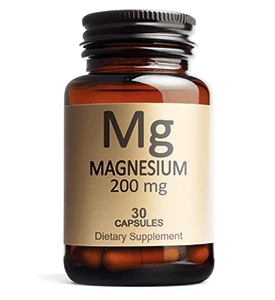
Magnesium and stress
When your body feels under threat it releases certain hormones, and breathing, heart rate, and blood pressure increase. The entire body becomes tense to prepare to run or fight for your life. All of this is temporary, and the body returns to normal once the threat is gone. With stress, the curse of modern life, the body stays permanently in ‘alert mode’ which is extremely bad for your health.
The really bad news is that stress depletes levels of magnesium in the body, and it is needed for over 300 different enzyme processes including normal, healthy muscle and nerve function. Magnesium also plays a role in distributing calcium in the body. It makes sure that calcium reaches hard tissues like bones and teeth, where it is needed, but stays out of soft tissues like nerves and muscles.
According to an article published in the science journal, Nutrients, in November 2020, symptoms of magnesium deficiency and stress are quite similar, including fatigue, irritability, muscle tension and lack of energy.
The combination of stress, magnesium-depleted diets, and stimulant abuse like drinking lots of coffee and alcohol can mean that you should consider taking a magnesium supplement. If you decide to take a supplement you should make sure to choose a product that has proper bioavailability.
Dietwise you can increase your magnesium intake by eating more dark, leafy greens and nuts.

Selenium and your age
Many Europeans have a comparatively low intake of selenium, and yet scientists have discovered that this micronutrient may help slow down your biological clock with anti-inflammatory properties that protects cells against oxidative stress.
Besides our actual age, we have what is known as our biological age which is determined by our physical and mental state. Biological ageing does not necessarily go hand in hand with chronological ageing. It is influenced by factors such as lifestyle, diet, genes and the environment in which we live.
Selenium, found in Brazil nuts, wholegrains, meat, offal, fish and shellfish, is primarily known for its beneficial effect on the immune system, male fertility, and the thyroid function. Now, a Scandinavian science project headed by Professor Urban Alehagen, a cardiologist at the University Hospital in Linköping, has demonstrated that the nutrient may also pull the brake on the speed at which we humans age.
It turns out that higher dietary selenium intake is linked to increased length of telomere, a kind of cell; and telomeres are a surprisingly accurate gauge of the body’s biological age.
In the study, Alehagen and his team of scientists looked at how supplementation with selenium given in combination with coenzyme Q10 affected telomere length in a group of healthy male and female volunteers aged 70-80 years. At the end of the trial those who received the active supplements had significantly longer telomeres than those in the placebo group.

What’s in season in September & October?
A wealth of vegetables including: aubergine, broad beans, broccoli, lettuce, cabbage, carrots, cauliflower, celery, kale, marrows, mushrooms, peppers, potatoes, radish, scallions, spinach, swedes, turnips, mint, parsley, sage, thyme, cooking apples.
At the end of season: cucumbers, mange tout, tomatoes.
Coming into season: Brussels sprouts, lollo rosso, parsnips and eating apples.

Top 5 lunchbox tips
As children prepare to head back to school, safefood offers advice on how to help create both nutritious and enjoyable lunchboxes. Joana da Silva, Chief Specialist in Nutrition at safefood, has top five tips for preparing healthy and exciting lunchboxes this school year:
1 Include all the food groups
Aim to incorporate a wide variety of foods from each food group. Ensure your child’s lunch consists of fruits and vegetables, foods like bread, pasta, and rice, proteins such as meat, beans, pulses, fish and eggs, and dairy products like milk, yogurt and cheese.
2 Vary the kinds of bread
Try experimenting with different types of bread. Instead of using plain sliced bread every day, introduce brown bread, pittas, bagels or wraps for added variety.
3 Stay hydrated
Your child should aim to drink at least eight cups of fluid daily. Milk and plain water are the best drink options. Infuse water with slices of fruits like lemon, cucumber, or berries for a burst of flavour. Another idea is to consider using brightly coloured bottles or fun containers to make plain water more appealing and interesting.
4 Get them involved
Involve your child in selecting and preparing their own lunches. This is an excellent opportunity for them to learn about healthy eating and develop good habits.
5 Try out new ideas
Introducing new foods to children can be tricky. It often takes several attempts for them to accept unfamiliar items as part of their regular diet. To ease this, try to experiment with new meal ideas during dinner time or weekends before including them in the lunchbox.

Omega-3s and brain health
As much as 60% of our brain weight consists of phospholipids, which are rich in fatty acid omega-3s, and choline, and they play a vital role in our cellular function, nerve signalling and cognitive function.
“Due to the increased prevalence of processed and ultra processed foods, modern diets contain only about one third of phospholipids than they contained a century ago,” said Nils Hoem, Chief Scientist at Aker BioMarine in Norway on a recent visit to Dublin. “People with higher levels of omega-3 DHA in their blood are 49% less likely to develop dementia than those with lower levels.”
Sources of omega-3 include oily fish such as mackerel, salmon, herring and sardines; plant sources such as flax seed, chia seeds, walnuts and soybeans; and krill oil.
“Krill oil has been proven to contribute to brain function as well as supporting our other organs too;” said Nils Hoem. “Derived from tiny crustaceans called Antarctic krill, this oil is naturally rich in brain-boosting nutrients like phospholipids (PC, LPC), omega-3 EPA and DHA and choline. Nourishing the brain with key nutrients in the exact same form naturally found in the brain, is a great way to support cognitive abilities and brainpower.”

Natural solutions to hay fever
As summer arrives, so does the bane of many hay fever sufferer’s existence—congestion. The itchy eyes, runny nose, and constant sneezing can put a damper on enjoying the great outdoors. While over-the-counter medications can provide relief, many seek alternative solutions. Natural remedies offer a promising path for those who prefer a gentler approach. These remedies can help reduce congestion and provide much-needed respite during the summer months.
The first natural ally in the fight against congestion is saline nasal irrigation. This centuries-old technique involves rinsing the nasal passages with a saline solution. It helps remove allergens, reduce inflammation, and alleviate congestion. Using a nasal wash or a nasal spray designed for this purpose, individuals can find relief by gently flushing out their nasal passages.
Additionally, herbal remedies can be valuable tools in managing hay fever symptoms. Tea Tree, lemon and mountain pine essential oils can help with reducing nasal congestion and improving airflow.
The true hero ingredient for hay fever is Hypertonic Sea Water. When brought into contact with blocked nasal mucosa, this mineral-rich solution draws excess discharge by osmosis and dilutes accumulated mucus. The reduction of mucus viscosity improves congestion and helps create a hostile environment for viruses, bacteria, pollen as well as airborne particles.
For hay fever sufferers seeking alternatives to conventional medications, natural remedies can offer a breath of fresh air. From herbs to saline nasal irrigation and plant extracts, these solutions provide a gentler approach to reducing congestion and alleviating hay fever symptoms during the summer. By exploring these options and finding what works best for each individual, it is possible to enjoy the warm weather while keeping hay fever at bay.
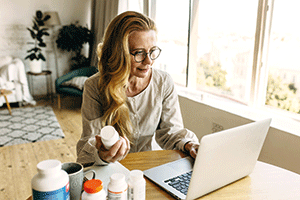
Inflammation is a greater cardio-vascular threat than cholesterol
Scientists from Brigham and Women’s Hospital in Boston, Massachusetts, Mount Sinai Heart in New York, and the Cleveland Clinic Heart and Vascular Institute in Ohio, did a collaborative analysis of 31,245 high-risk cardiovascular patients in statin therapy and the study was published in the Lancet in April this year.
The researchers looked at the impact of high-sensitivity C-reactive protein (CRP), a marker of inflammation, and LDL cholesterol, to determine how these two factors affected the risk of major adverse cardiovascular events (MACE), cardiovascular death, and all-cause mortality.
They found that inflammation was significantly associated with MACE, cardiovascular mortality, and all-cause mortality. By contrast, cholesterol only had a minor impact on these.
A number of studies have been published in recent years that support these observations. Swedish researchers headed by Professor Urban Alehagen, a cardiologist at the University Hospital in Linköping, published research showing that daily supplementation with 200 micrograms of selenium and 200 milligrams of coenzyme Q10 lowered the cardiovascular mortality rate by 54% among healthy, Swedish seniors. Multiple follow-up studies analysing the blood samples that were taken as part of the KiSel-10 study found that levels of CRP and other inflammatory markers were significantly decreased in the group who took active supplements compared with the placebo group.
Selenium is known for its role in supporting different selenoproteins, several of which are powerful antioxidants with an anti-inflammatory effect. Moreover, selenium and coenzyme Q10 support each other in an intricate biochemical interplay.

What’s in season?
A wealth of vegetables including: asparagus, aubergines, beetroot, broad beans, broccoli, cabbage, carrots, cauliflower, French beans, kohl-rabi, mangetout, marrows, mushrooms, onions, pak choi, parsnips, peas, runner beans, spinach and sweetcorn.
Fruits include: rhubarb, apples, blackberries, blueberries, raspberries and strawberries.
Salad vegetables include: celery, courgettes, cucumbers, lettuces, peppers, radish, scallions and tomatoes.

It’s time to be Sunsmart
The Irish Cancer Society’s SunSmart code gives good advice for preventing sun damage even during an Irish summer.
1 Seek some shade
Good shade can give up to 75% protection from UV rays. Good shade needs to protect from direct and indirect UV rays.
2 Slip on some clothes
Choose clothes that cover as much skin as possible. Linen, cotton and hemp let less UV rays through and dark clothes block more UV rays than light coloured clothes. Slap on a hat, but make sure it gives shade to the face, neck, head and ears.
3 Wear sunglasses
Your eyes can be damaged by UV rays too. Eye damage from UV rays can start at an early age. When choosing your sunglasses: Go for wraparound ones. Make sure they give UV protection. Check tags to make sure they give enough protection. Look out for: European Standard EN1836. British Standard BS 27241987.
4 Use sunscreen
When in Ireland wear sunscreen from April to September to reduce your risk of skin cancer. Use a ‘broad-spectrum’ sunscreen that protects against UVA and UVB; – SPF minimum 30. Apply to dry skin 20 minutes before going outside.
5 Know the UV index
When the UV Index is 3 or more you are at greater risk of skin damage that can lead to skin cancer. Get into the habit of checking the UV Index as a reminder of the need to be SunSmart every day from April to September.
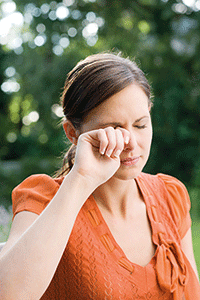
Advice for asthmatics with hay fever
As many as 60-80% of people who have asthma also experience allergic rhinitis and hay fever. While the symptoms for many are just frustrating, unmanaged hay fever can cause asthma symptoms to heighten and escalate into an asthma attack. The Asthma Society of Ireland aim their annual hay fever campaign at providing practical support for alleviating unpleasant hay fever symptoms like itchy eyes, scratchy throat and running nose.
The Asthma Society pollen tracker provides daily updates on pollen levels around Ireland including regional prediction levels for the current and following day. It can help people to recognise the days when they need to take additional precautions to manage their asthma and hay fever. ‘Pollen Season’ runs until September, and people with asthma are advised to ensure their asthma and hay fever are well managed.
For more information on managing your hay fever, visit www.asthma.ie

What’s in season in May and June?
Asparagus, aubergines, butterhead lettuce, Brussels sprouts, cauliflower, courgette, mushrooms, peppers, runner beans and tomatoes. Basil, mint, parsley, sage and thyme.
Berries are coming into season with the first native being strawberries and rhubarb doing well too.
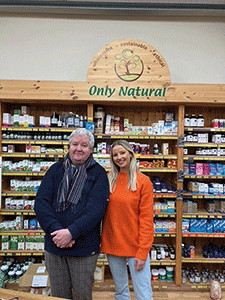
Pat Curran Award results
Many Rude Health readers recently took the opportunity to recommend their Favourite Health Store Staff Member for the Pat Curran Award for Excellence in Customer Service for 2022. The member of staff who is the overall winner will receive a €500 cash prize and their store will also receive €500, which they can give to a charity of their choice.
The winner this year was Emma Murphy who works in health store Only Natural in Wexford.
Rude Health magazine readers who voted were entered into a draw to win a hotel break and Eskimo-3 hampers. Claire Whelan from Co Cork is the overall winner and she receives a €300 hotel break gift card from irelandhotels.com along with a big hamper of Eskimo-3 goodies.
Claire said about Jill Bell in Well and Good in Midleton, Co Cork: “Jill has been the mainstay since day one. I trust her and her staff implicitly. I have very often asked for advice on medical matters and food etc and never been disappointed. During the pandemic Jill was a calming voice just when we needed it.
Roisin Callaghan from Dublin wins an Eskimo-3 Hamper. Roisin said about Emma Murphy in Only Natural in Wexford: “Emma knows the products in the shop really well. She listens to what you have to say and then finds the best product for you. She is always happy to help and let you explore the shop and then provide assistance when you need.”
Martin Evin from Co Galway wins an Eskimo-3 Hamper. Martina said about Sian Eustace in Healing Harvest in Kinvara, Co Galway: “ Sian has amazing knowledge and incredible patience. Sian and her staff diagnosed an intolerance that multiple practitioners had dismissed. Sian’s advice improved my quality of life considerably.”
Philomena McClave from Monaghan wins an Eskimo-3 Hamper. Philomena said about Janette Lambe in Bee Healthy in Monaghan: “I went in for advice on extreme fatigue and low mood and Janette was so friendly and helpful. She took lots of time to understand my concerns and give me the best advice. I have recommended all my friends and family and continue to shop there myself.”

30-year anniversary for Evolv
March 1st this year saw Evolv Health Store in Enniscorthy celebrate 30 years of providing natural health products and services to their loyal base of customers. Owned and run by Matt and Nuala Ronan, Evolv encompasses a very broad swathe of products – Fair Trade clothing, jewellery, gifts, books, food supplements, organic food, body testing, allergy testing, all with a real sense of style and excitement.
"We have a terrific community of customers whom we really enjoy interacting with,” says Nuala. “That community has grown along with the shop itself, which has increased in size and relocated several times. It is now functioning on three levels and has three purpose-built therapy rooms.”
Celebratory events are scheduled for Friday and Saturday 3rd and 4th of March and as a thank you to all of their customers, Evolv will be giving 30% discount on many top selling items! New products will be launched and there will be reduced prices on allergy testing and also on the range of health checks.

Irish Retailer Awards results 2023
The New Natural Business/Health Stores Ireland Retailer Awards 2023 were announced last month with some worthy winners.
Marketing & Social Media Joint Winners:
Natural Health Store, Wexford and Dr Clare Apothecary, Galway.
Highly Commended Only Natural, Wexford and Remedies, Dungarvan
Environmental Initiatives Winner:
The Hopsack, Dublin.
Highly Commended:
Organico, Bantry and Healing Harvest, Kinvara.
Training & Education Winner:
Evergreen Healthfoods, Galway.
Highly Commended:
Golden Health Store, Longford and Health Store, Galway.
Community Engagement Joint winners:
Open Sesame, Gort and Healthy Haven, Thurles.
Highly commended: Loop de Loop, Castletownbere and Nice & Natural, Cootehill.
Local Food Champion Winner:
Health Connection, Ennis.
Highly commended: Fruit ‘n Nut, Portlaoise and Food For Life, Callan.
Innovation & Business Development Joint winners:
Simple Simon’s, Donegal and Horan’s Healthstores, Tralee
Highly commended:
Natures Hand, Limerick and Evolv, Enniscorthy.
Best Newcomer Winner:
Celestial Times, Kilrush.
Highly commended:
Horan’s, Sligo.
Do meat substitutes lack minerals?
Plant-based substitutes for meat have been around for decades, and are now more popular than ever. If you regularly feature these products in your diet you may want to consider taking a supplement.
In a Swedish study conducted at Chalmers Technical University in Gothenburg and published in the science journal Nutrients, researchers analysed 44 different meat substitutes and found that the minerals they contain such as iron and zinc were not absorbed very well into the human body.
The culprit is phytic acid, a natural element that is found in grains, legumes, and nuts. It binds minerals and makes it difficult for the body to absorb them. The problem is that when meat substitutes are made in factories, it is done with high pressure and heat to give the product the right meat texture. This results in an accumulation of phytic acid and as a result many minerals are subject to binding.
Anyone excluding meat from their diet and concerned they are not getting the vitamins and minerals they need should choose a supplement with selenium, zinc and vitamins A, B6, C and E.

What’s in season in March and April?
Butterhead lettuce, cabbage, cucumbers, leeks, mushrooms, parsnips, rhubarb, cooking apples and mint. Peas and tomatoes are coming into season.

Hay fever alert
For one in 10 people the warmer weather is accompanied by a stuffy or runny nose, sneezing, itchy eyes, a tickly cough, difficulty sleeping, headaches and a loss of smell as the body’s immune system reacts to pollen and spores and releases a chemical called histamine. Experts advise those with hay fever to build up their immune systems before the season begins by taking 1000mg vitamin C every day, and either a fish or plant oil to prevent and reduce symptoms.
Another issue related to hay fever is allergic rhinitis, an inflammation of the inner part of the nose caused by allergens such as pollen, dust, mould or animal hair. Many people are now trying natural remedies to help alleviate nasal allergy symptoms. Nasal washes and nasal irrigation with saline or hypertonic solutions can be effective for clearing mucus and allergens from the nose and helping to reduce congestion and inflammation. Saline formulas are used in a number of complementary treatments and nasal sprays formulated with natural sea water, rich in minerals.
Other tips include:
- Drink nettle tea – reduces inflammation and contains quercetin, a natural anti-histamine.
- Elderberry, bee propolis and reishi mushroom – shown to be effective for boosting immunity and reducing symptoms.
- Wraparound sunglasses – help keep pollen away and reduce itchy eyes
- Avoid mucus-forming foods – such as dairy products, can make a difference.
- Eyebright – a useful herb for itchy eyes and general eye irritation. Available in capsules, homoeopathic remedy and eye drops.
- Quercertin – a natural anti-histamine found in many foods like apples, onions and berries. Quercetin capsules also contain vitamin C.
Tinctures available from health stores that can help hay fever include:
- Chamomile – an anti-inflammatory and boost to the immune system.
- Echinacea – an anti-inflammatory herb that enhances the immune system.
- Elderflower – helps to dry up mucus in your nose.
- Unfiltered raw local honey contains pollen grains which can help mild hay fever symptoms.
Check with your local health store or local farmers market, see www.irishbeekeeping.ie. or buy pollen capsules or pollen granules to sprinkle on food.
Excellence in customer service
Many Rude Health Magazine readers recently took the opportunity to recommend their favourite health store staff member for the Pat Curran Award for Excellence in Customer Service.
Readers told us about how their local health store staff offer great advice, how friendly and helpful they are and how knowledgeable they are.
The winning health store staff member this year was Emma Murphy of Only Natural health store in Wexford. Congratulations Emma!
Everyone who voted was entered into a prize draw to win a €300 hotel break gift card along with a big hamper full of Eskimo-3 goodies. The winners of the prize draw will be announced in our March/April issue, out in early March.
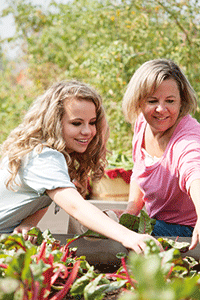
Free growing courses
Grow It Yourself (GIY) Ireland has made all of their online courses available free of charge in a bid to help people during the cost of living crisis and to ensure that actions to tackle climate change remain top of the agenda. The selection of online courses is designed to help beginner and experienced growers alike get from plot to plate successfully.
GIY say that we should all consider these planet-friendly New Year resolutions.
Get growing. Spring will be here before you know it and the best time to plant many plants and flowers.
Begin preparing: while you have downtime in the depths of winter, start off small and pick what you want to grow and where to grow it. Make sure to factor in how much space you have to work with. While growing food can be done anywhere (on a windowsill/balcony/greenhouse/garden) not all plants require the same amount of space.
For free online courses and more growing tips see www.giy.ie. The GIY Ultimate Starter GROWBox is available from GIY.ie for €39.99

What’s in season?
Brussels sprouts, butterhead lettuce, cabbage, carrots, cauliflowers, leeks, mushrooms, onions, parsnips, potatoes, spinach, swedes, turnips, cooking and eating apples.

WIN! An incredible hamper of natural health goodies, worth over €850
At Rude Health magazine we love to hear from you, our readers, about the healthy products that make a difference to your lives. Our seventh Rude Health Awards showcase the best in the following categories: Best Health Product, Best for Mental Health/Wellbeing, Best Immune Product, Best for Pain/Inflammation, Best New Product, Best Women’s Product, Best Kids Product and Best Body/Personal Care.
The closing date is 8 February 2023, so you still have time to place your votes by going here. Get voting. And good luck!

Vitamin D and brain health
A study from the University of South Australia shows a direct link between dementia and lack of vitamin D. The study, published in the American Journal of Clinical Nutrition, mentions that low vitamin D status is associated with lower brain volume and an increased risk of dementia and stroke. The study is based on data from 294,514 participants from the UK Biobank, a comprehensive biomedical database and research resource with in-depth genetic and health information about half a million UK participants. The researchers mention that in some populations, up to 17 per cent of dementia cases could be prevented simply by raising people’s vitamin D in the blood to 50 nmol/L, which is considered to be the normal level.
There is widespread vitamin D deficiency or insufficiency worldwide. More and more people take a daily supplement to be on the safe side. It is always a good idea to choose a vitamin D supplement that is documented in published studies.

Donate to the Hygiene Bank
The Hygiene Bank Ireland is a grassroots organisation, which tackles hygiene poverty by delivering donated hygiene and household cleaning products to community partners who work with vulnerable and marginalised communities.
In a new partnership with Boots, The Hygiene Bank is providing drop-off points in ten stores where people can donate hygiene products to those in need. People are invited to donate unopened and unused products such as dental products, deodorants, body wash, nappies, baby wipes, razors and shaving foam, period products, hairbrushes, shampoo and conditioner.
The stores in the initial phase include five locations in Dublin – Dundrum, Carrickmines, Swords, Liffey Valley and Blanchardstown, Letterkenny Retail Park, Letterkenny, two locations in Cork – Blackpool and Half Moon Street – as well as Shop Street, Galway and Abbey St., Wicklow Town. Find out more about how you can get involved by visiting www.thehygienebank.ie.

Harvest Festival time
Waterford’s annual Harvest Festival will take place across Waterford City on 9-11 September, showcasing Waterford’s rich food heritage, diverse restaurants, eateries and producers. The Giant Harvest Festival Market will traverse Waterford’s wonderful squares and interconnecting streets with an array of unique traders. See the city come to life with special dining events, panel discussions and plenty more. For more info see harvest.giy.ie/
#WaterfordHarvest
#FoodDoneRight

Lavender day
Atlantic Aromatics invited health store owners and staff to join them in June for a unique day exploring aromatherapy and essential oils. As well as a guided lavender field visit and distillation demonstration, there were seminars on Aromatherapy for the Seasons of Life with international tutor and clinical aromatherapist Christine Courtney, and sourcing pure essential oils globally with Atlantic Aromatics’ David Kelly.

Menopause support
If you’re going through the menopause you may be suffering in silence, with symptoms that can be physically and mentally debilitating. Issviv is a new community hub that aims to break barriers, support and empower women to thrive and not just survive during this transitional period in their lives. The platform will enable women to seek education, share advice and the opportunity to connect with like-minded people. www.issviva.com
Vitamin D and dementia
A first-of-its-kind study from the University of South Australia published in the American Journal of Clinical Nutrition shows a direct link between dementia and lack of vitamin D. The current study is based on data from 294,514 participants from the UK Biobank, a comprehensive biomedical database and research resource with in-depth genetic and health information about half a million UK participants.
While there is no official health claim for vitamin D and mental health, the researchers mention that in some populations, up to 17 per cent of dementia cases could be prevented simply by raising people’s vitamin D in the blood to 50 nmol/L, considered the normal level.
There is widespread vitamin D deficiency or insufficiency worldwide. Sun awareness campaigns, indoor living, and other factors contribute to the low vitamin D status in many individuals.

Hormone talk and advice in Tralee with Lorraine Keane
Lorraine Keane, broadcaster and Cleanmarine brand ambassador will be hosting Let’s Talk Hormone Health in the Rose Hotel in Tralee on 6 October.
She will be joined by Dr Mary Ryan and nutritionist Sarah Brereton in association with Horans Healthcare. Tickets are available on eventbrite.ie/hormonehealth40plus.
For helpful tips and expert advice log onto www.cleanmarine.ie to download a free guide The Essential Guide to Female Hormones.
A 90-day study undertaken by the University of Birmingham for Cleanmarine Meno Min found some of the most commonly experienced symptoms by women were greatly improved by taking this natural supplement. Before the study 28% of women reported feeling intense or very intense vaginal dryness and after the 90 days this reduced to just 7%, the total proportion of women reporting either no memory or mild memory difficulties improved by 44%; and 46% of women reported that their mood improved over the course of the 90 days.

Did you know?
Manuka honey acts as an anti-bacterial, anti-microbial aid for sore throats and coughs, and is known worldwide for its unique properties that support respiratory health. Children and adults can benefit from cough syrups such as ForTuss Otosan which includes manuka honey, organic wildflower honey and plant molecular complexes helichrysum, grindelia and plantain extracts that are rich in resins, polysaccharides and flavonoids that coat the throat in a soothing gel. Lemon, orange and myrtle essential oils provide further antibacterial properties.

On-demand breastfeeding course
A new suite of breastfeeding courses covering the early days right through to the end of your breastfeeding journey has been launched by NursingMama.ie.
The first of its kind to be launched in Ireland, this new service allows parents to take NursingMama.ie courses at their own pace and from the comfort of their own home. Everything expectant parents need to know is now broken down into simple, easy to understand videos so they can feel empowered and confident throughout the breastfeeding journey. NursingMama.ie was founded by Katie Mugan, who has over twenty years’ experience as a Registered General and Paediatric Nurse. www.nursingmama.ie

What’s in season in September & October?
A wealth of vegetables including: aubergine, broad beans, broccoli, lettuce, cabbage, carrots, cauliflower, celery, kale, marrows, mushrooms, peppers, potatoes, radish, scallions, spinach, swedes, turnips, mint, parsley, sage, thyme, cooking apples. At the end of season: cucumbers, mange tout, tomatoes.
Coming into season: Brussels sprouts, lollo rosso, parsnips and eating apples.

Fitness and Wellness Summit
The inaugural Fitness and Wellness Summit will take place on 16-17 July in the Aviva Stadium, Dublin.
It is aimed at those working in the fitness and wellness industry including gym operators, personal trainers, injury therapists, nutritionists, mental health and wellness professionals, and it will feature leading Irish and international experts including Kathryn Thomas as MC, fitness expert Karl Henry, physiotherapist Lauren Guilfoyle, sleep expert Sophie Bostock, and yoga therapist and fitness consultant to the stars Pat Henry.
Tickets fitnesswellnesssummit.com.

Whats in season
A wealth of vegetables including: asparagus, aubergines, beetroot, broad beans, broccoli, cabbage, carrots, cauliflower, French beans, kohl-rabi, mangetout, marrows, mushrooms, onions, pak choi, parsnips, peas, runner beans,spinach and sweetcorn. Fruits include: rhubarb, apples, blackberries, blueberries, raspberries and strawberries. Salad vegetables include: celery, courgettes, cucumbers, lettuces, peppers, radish, scallions and tomatoes.

Selenium and your heart
A study named PREVEND and published in the European Journal of Heart Failure features work by researchers into selenium's cardioprotective and anti-inflammatory properties. Scientists from the University of Groningen in the Netherlands carried out the study on nearly 6,000 healthy male and female participants with a mean age of 53 years. The study revealed that those with higher levels of selenium in their blood had a lower risk of contracting and dying of heart failure. Also, they had lower levels of C-reactive protein, a biological marker commonly used to detect inflammation in the body. Foods rich in selenium include Brazil and cashew nuts, brown rice, sunflower seeds, baked beans, oats, lentils, meats including pork, beef, turkey and chicken, and milk and yogurt.

Forest bathe your stress away
The Japanese practice of shinrin-yoku, or ‘forest bathing’, is an outdoor healing practice which encourages people to experience the wonders of nature through their senses. The practice of forest bathing started in Japan in the 1980s when leaders in Japan noticed a spike in stress-related illnesses, attributed to people spending more time working in technology and other industrial work.
"Many people found a new appreciation for the great outdoors when the pandemic began," says Fiona O'Malley, CEO of a national mental health charity Turn2Me. "Turn2Me is encouraging people to explore their nearest forest and to try forest bathing. Try to leave your phone in your pocket, take out your earphones and listen to the birds singing around you, the leaves and twigs crunching underfoot, and breathe in the fresh forest air. Many studies have shown the benefits of forest bathing, for physical and mental health, including improved sleeping, a reduction in anxiety and improved mental health."
Turn2Me offers adult counselling and peer support services to adults and young people aged 12 plus. It also offers group support services for teenagers, young people and adults.

It's time to be Sunsmart
The Irish Cancer Society's SunSmart code gives good advice for preventing sun damage even during an Irish summer.
1 Seek some shade
Good shade can give up to 75% protection from UV rays. Good shade needs to protect from direct and indirect UV rays.
2 Slip on some clothes
Choose clothes that cover as much skin as possible. Linen, cotton and hemp let less UV rays through and dark clothes block more UV rays than light coloured clothes. Slap on a hat, but make sure it gives shade to the face, neck, head and ears.
3 Wear sunglasses
Your eyes can be damaged by UV rays too. Eye damage from UV rays can start at an early age. When choosing your sunglasses: Go for wrap-around ones. Make sure they give UV protection. Check tags to make sure they give enough protection. Look out for: European Standard EN1836. British Standard BS 27241987.
4 Use sunscreen
When in Ireland wear sunscreen from April to September to reduce your risk of skin cancer. Use a 'broad-spectrum' sunscreen that protects against UVA and UVB; – SPF minimum 30. Apply to dry skin 20 minutes before going outside.
5 Know the UV index
When the UV Index is 3 or more you are at greater risk of skin damage that can lead to skin cancer. Get into the habit of checking the UV Index as a reminder of the need to be SunSmart every day from April to September.

Health Stores Ireland launches new store finder and tour guide
Ireland has over 200 independent health foods stores that operate in almost every town centre and shopping mall in the country. Health Stores Ireland represents stores across the depth and breadth of the country, from large national chains in big city locations to owner run stores in small towns and villages.
HSI has produced a traditional touring map with recommendations for what to see and do near health store locations as well as eircodes to help you find stores while staycationing. Pick up your map from your local independent health food store.

Tea Day
RTÉ stars Dáithí Ó Sé and Sinead Kennedy are calling on the nation to host a Tea Day to mark Alzheimer’s Tea Day comeback year on Thursday 5 May. After two long years, The Alzheimer Society of Ireland is inviting everyone to come together again for a cup of tea, a chat and maybe a treat or two to help raise funds for vital dementia supports and services.
Register on teaday.ie and you will receive an Organiser’s Toolkit which includes posters, collection boxes, raffle tickets and everything you need to make your Tea Day a success!

Spring is here!
Madelaine Winzer for College of Naturopathic Medicine (CNM)
During winter, we tend to eat more fats to store energy. According to the Principles of Oriental Medicine, spring is a great time to move stagnant energy in the liver for renewed vitality. Signs and symptoms of stagnant liver qi include frequent sighing, scratchy eyes, headaches, stiff shoulders, PMS, allergies, gout, blood pressure and feelings of frustration and lowered mood.
To cleanse the liver:
For one week avoid all animal fats, sugars, white flour, dairy and alcohol.
Read the full story here...

Help for joint pain
There remains no cure for joint pain, and everyone’s experience is unique. Working out which lifestyle changes will benefit each person is a complex puzzle.
Joint Pain Coach is a portal for people who need help with this issue. Members are given a series of proven changes over a 14-day challenge covering lifestyle, nutrition, movement patterns, mindset and complementary therapies within a private community.
The challenge also includes a 14-day supply of CBD patches which research has shown can help reduce inflammation and help manage pain. Launching this April, the first challenge costs £97, and includes a 330-page programme guide, daily journal, daily motivation videos and a private Facebook group moderated by the Joint Pain Coaches. www.jointpaincoach.com

Did you know?
A new website, Gluten Free Ireland, has been set up to support coeliacs in Ireland with information and advice. While coeliac awareness has improved greatly in Ireland, for newly diagnosed coeliacs eating out and buying suitable gluten-free products can still be a challenge.
Check out www.glutenfreeireland.com, www.facebook.com/glutenfreeireland, and www.twitter.com/GFIreland

What’s in season in May and June?
Asparagus, aubergines, butterhead lettuce, Brussels sprouts, cauliflower, courgette, mushrooms, peppers, runner beans and tomatoes. Basil, mint, parsley, sage and thyme. Berries are coming into season with the first native being strawberries and rhubarb doing well too.
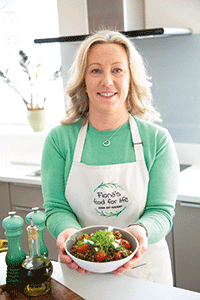
Menopause cooking lessons
Ballymaloe trained chef Fiona Staunton is running a six-week virtual cooking course aimed at alleviating the symptoms of menopause and perimenopause in women and improving their day-to-day lives through educated meal plans and nutritional recipes that the whole family will enjoy.
The 90-minute sessions will run every Wednesday evening from 27 April.
Each week will include an online cooking demonstration with a focus on one nutritional aspect with at least three dishes cooked in real time, plus new recipes and dietary suggestions aimed at alleviating the stresses of menopause.
You will receive a cookery book of over 75 recipes and weekly meal plans, recipes and shopping tips for six weeks. Prices from €279.
Register at www.fionasfoodforlife.ie

Choosing the best vitamin D
In 2021, the Oireachtas Committee on Health called for daily vitamin D supplementation of the entire population of Ireland. Their report stated that 50% of 18-39-year-olds, a third of 50-59-year-olds, and an alarming two-thirds of people over 80 are deficient in vitamin D. This nutrient is essential for maintaining normal immune health, normal teeth and bones, and normal muscle function.
Scientists from the University of Surrey have demonstrated the importance of choosing the right type of vitamin D.
According to a study published in Frontiers in Immunology, vitamin D2 does not have the same measurable effect on the immune system as vitamin D3. Their study clearly showed that vitamin D3 stimulated a signal pathway that is of key importance to the immune defense and its white blood cells, all of which are equipped with vitamin D receptors. The same effect was not observed with vitamin D2.
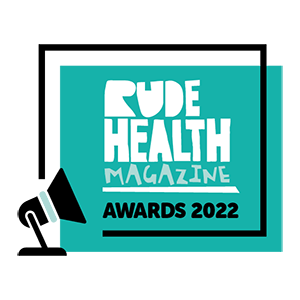
And the winner is...
Thank you so much for choosing your favourite products as featured in the Rude Health Magazine Product Awards 2022. The winner of a fabulous hamper of natural health products worth over €1,000 is Noreen Slevin from Co Westmeath. “I am so delighted to receive my prize,” says Noreen.
Find out which products won the coveted Rude Health Awards 2022 here

Hay fever alert
For one in 10 people the warmer weather is accompanied by a stuffy or runny nose, sneezing, itchy eyes, a tickly cough, difficulty sleeping, headaches and a loss of smell as the body's immune system reacts to pollen and spores and releases a chemical called histamine. Experts advise those with Hay fever to build up their immune systems before the season begins by taking 1000mg vitamin C every day, and either a fish or plant oil to prevent and reduce symptoms.
Another issue related to hay fever is allergic rhinitis, an inflammation of the inner part of the nose caused by allergens such as pollen, dust, mould or animal hair. Many people are now trying natural remedies to help alleviate nasal allergy symptoms. Nasal washes and nasal irrigation with saline or hypertonic solutions can be effective for clearing mucus and allergens from the nose and helping to reduce congestion and inflammation. Saline formulas are used in a number of complementary treatments and nasal sprays formulated with natural sea water, rich in minerals.
Other tips include:
Drink nettle tea – reduces inflammation and contains quercetin, a natural anti-histamine.
Elderberry, bee propolis and reishi mushroom – shown to be effective for boosting immunity and reducing symptoms.
Wraparound sunglasses – help keep pollen away and reduce itchy eyes
Avoid mucus-forming foods – such as dairy products, can make a difference.
Eyebright – a useful herb for itchy eyes and general eye irritation. Available in capsules, homoeopathic remedy and eye drops.
Quercertin – a natural anti-histamine found in many foods like apples, onions and berries. Quercetin capsules also contain vitamin C.
Tinctures available from health stores that can help Hay fever include:
Chamomile – an anti-inflammatory and boost to the immune system.
Echinacea – an anti-inflammatory herb that enhances the immune system.
Elderflower – helps to dry up mucus in your nose.
Unfiltered raw local honey contains pollen grains which can help mild Hay fever symptoms. Check with your local health store or local farmers market, see www.irishbeekeeping.ie or buy pollen capsules or pollen granules to sprinkle on food.

Get growing yourself
Grow It Yourself (GIY) is making growing your own food as easy as possible this year with a brand new monthly seed subscription, full access to their online growing guides, regular interactive Q&A discussions and even a new podcast deep-diving into growing your own food and the food system. For orders and further details see GIY.ie
GIY and innocent also aim to get 50,000 children growing their own food in classrooms across the country this spring with The Big Grow. Primary school teachers nationwide can now sign up for a free food growing kit for their students at www.innocentdrinks.ie/big-grow which comes with three packs of different seeds including mixed salad, peas and radish along with enough compost, growing cups, instructions, and fun lesson plans for the entire class.
How to improve fertility naturally
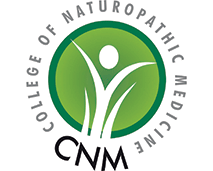
By Michelle Sanchez, naturopath, nutritionist and medical herbalist for the College of Naturopathic Medicine (CNM)
One in six couples in Ireland are affected by infertility, either due to male or female factors. Diet and lifestyle play a big role in fertility so there is a lot you can do to improve your chances of a healthy conception. Small changes can often make a huge difference to your fertility. Discover some natural ways to boost fertility and learn how to optimise your health for conception and pregnancy.
Optimise your diet for preconception and pregnancy by eating an organic, whole food diet that is rich in vegetables, fruit, healthy fats (avocado, nut butters, seeds), quality protein (lentils, beans, peas, nuts), and wholegrains (quinoa, millet, buckwheat, wholegrain rice).
Read the full story here...

What's in season
What’s in season in March and April?
Butterhead lettuce, cabbage, cucumbers, leeks, mushrooms, parsnips, rhubarb, cooking apples and mint. Peas and tomatoes are coming into season.
Can Co-enzyme Q10 help with chronic fatigue?
Chronic fatigue syndrome or myalgic encephalomyelitis (ME) includes a number of symptoms including tiredness, aching muscles, insomnia and failing memory, and some of these issues have been experienced by people who have contracted severe virus infections.
Data from the SARS and MERS epidemics in 2003 and 2015 suggest a link between virus outbreaks and an increased ME rate, and earlier studies of SARS patients also show that they have an increased risk of being diagnosed with ME later in life.
Scientists believe that something is disrupting energy metabolism at a cellular level, and US studies show that this is related to the mitochondria, the cellular powerplants that convert oxygen and nutrients into energy. In a recent study from Slovakia, researchers looked at blood plasma from Covid-19 patients and found signs of mitochondrial dysfunction in their blood. The similarity between ME and mitochondrial dysfunctions is one of the main reasons why a group of scientists at Aarhus University Hospital in Denmark have launched a study of co-enzyme Q10 and patients affected by delayed effects.

Vitamin D and activity levels
During winter when the sun is no longer powerful enough to enable vitamin D synthesis in the skin it can easily affect people’s activity level. A group of scientists wanted to see if they could somehow get some sunshine ‘into the cells’ by giving vitamin D supplements to a group of male volunteers at Sand Ridge Secure Treatment Center in Wisconsin, USA.
The study was published in the science journal Nutrients. A total of 67 men aged 31-81 volunteered. They were randomly assigned to either a daily vitamin D supplement (D-Pearls from Pharma Nord) or identical-looking capsules with inert olive oil. Blood samples taken before and after the study clearly showed that the vitamin D was absorbed very easily in the body. The vitamin D-treated men were much more physically active than the men in the other group, and those with the highest levels of vitamin D in their blood were also the most active.
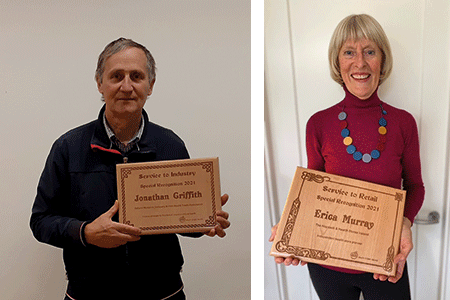
Health Stores Ireland Awards
Health Stores Ireland surprised two of Ireland’s best known sector advocates with Special Recognition Awards at their end of year virtual AGM in November. Erica Murray from The Hopsack, Dublin was given the Retailer Award, and Jonathan Griffith from Natural Medicine Company received the Industry Award.

How to naturally boost your immune system this winter
Written by Michelle Sanchez, Naturopath, Nutritionist and Medical Herbalist.
Keeping yourself well is essential during the colder months. The best way to boost your immune system is by adopting a healthy diet and lifestyle. Reducing your toxic load, eating immune-boosting foods and detoxing your body can help achieve optimal gut health to keep your immune system functioning as well as possible.
Read the full story here...

What’s in season
Brussels sprouts, butterhead lettuce, cabbage, carrots, cauliflowers, leeks, mushrooms, onions, parsnips, potatoes, spinach, swedes, turnips, cooking and eating apples.

The Pat Curran Award for Excellence in Customer Service
Many Rude Health readers recently took the opportunity to recommend their Favourite Health Store Staff Member for the Pat Curran Award for Excellence in Customer Service for 2021. This year there are two overall winners Jill Bell from Well & Good in Midleton, Co Cork and Hannah Dare from Organico in Bantry, Co Cork. Each has won a €500 cash prize and the store received €500 to give to a charity of their choice.
Voter Claire wrote about Well & Good: "Through the pandemic it's been a go-to for so many items that sustained us for the last year and a half."
Voter Saoirse said of Organico: "an absolute gem in Bantry, a wealth of information, served with a friendly smile. They've been supporting the locals throughout the pandemic and working hard – they're my favourite place to shop in town."
Congratulations to our overall consumer winner Rosemary Walshe from Enniscorthy, Co Wexford who wins a €300 Hotel Break and Eskimo-3 hamper, and runners up Brigitte Le Juez, from Castleblayney, Co. Monaghan; Sandra Bealin from Blessington, Co Wicklow and Marian Collins from Strokestown, Co Roscommon who win Eskimo-3 hampers.
Rosemary Walshe nominated Evolv. Brigitte Le Juez nominated Bee Healthy, Glasslough St. Sandra Bealin nominated Harvest Fare. Marian Collins nominated Healthy Beings.

New Horan's store for Dun Laoghaire
A brand new Horan's health store has opened in Dun Laoghaire. Established in 1988, Horan's is a 100% Irish-owned business with 15 stores across Munster including shops in Tralee, Killarney, Limerick City, Cork, Tipperary along with the new Dublin store in Dun Laoghaire. Their online health store offers expertise, knowledge and health products to customers across Ireland.

Q. I'm struggling with a hormone imbalance, are there any natural remedies that can help?
Written by Michelle Sanchez, Naturopath, Nutritionist and Medical Herbalist for CNM College of Naturopathic Medicine
A. The cause of hormone imbalance is often multifactorial. Diet, exercise and lifestyle play a huge role in hormone health. Lifestyle factors including stress, not exercising or over exercising, and following a poor diet could cause an imbalance. Other causes include injury, trauma, eating disorders, certain medications and health conditions such as diabetes, thyroid dysfunction and adrenal gland disorders.
Read the full story here...

Did you know?
Allicin is the key active ingredient that is produced when garlic is crushed and is part of the plant's natural defence system. It has been the subject of much research and can be found in fresh garlic and supplements. It quickly changes into other compounds, so using a stabilised form is important in a supplement. Recently, Allicin International conducted a small trial with participants who were experiencing the effects of Long Covid. Volunteers in the UK, USA and Hungary took five capsules per day then completed questionnaires.
Results showed 71% of participants recorded an increase in their wellness score and 94% recorded a decrease in symptoms.

Sing and dance key to healthy ageing
A new report published by the Institute of Public Health (IPH) has found that arts and creativity can help improve physical, psychological, and social health and wellbeing in older adults. Arts and Creativity in Later Life: Implications for Public Health and Older People reviewed more than 70 international studies investigating the potential health and wellbeing benefits of dancing, music and singing, visual and creative arts, and drama and theatre. The research found that dance is particularly beneficial for improving balance, mobility, strength, flexibility, physical activity, as well as improving cognitive function. Music and singing can provide improvements in cognitive function and improved emotions as well as social connections and a sense of wellbeing. This review assessed 73 studies from 18 separate countries, half of which related to dance.
For more information visit www.publichealth.ie

MS READaTHON this November
The 2021 MS Readathon begins on November 1st and lasts the full month of November. This year MS Ireland will be launching an updated interactive website www.msreadathon.ie and thousands of readers young and old will take part in raising awareness and vital funds to support the 9,000 people living with MS, the most common debilitating neurological condition affecting young adults in Ireland.
Traditionally, the campaign has been popular amongst schoolchildren in Ireland, but this year MS Ireland is encouraging "˜grown up' readers to take part and get their offices, clubs and families to rediscover their love of reading. MS Ireland is hoping to replicate last year's successful virtual campaign where almost 10,000 readers and over 300 schools took part. For more info www.msreadathon.ie

CNM Pioneers Online Natural Health Diploma Courses
Responding to the current worldwide health challenges, the College of Naturopathic Medicine is now offering online its internationally recognised diploma and short courses to overwhelming positive response from the public. CNM graduates and students know:
- that a healthy and robust body can resist infections better and return to health faster
- that a strong immune system is important
- how to boost the immune system naturally
At CNM we believe that good health comes from education and practice. The CNM Diploma courses, based on time-proven natural medicine principles and cutting-edge scientific evidence, include, in addition to the informative lectures, many clinical practice sessions. Students apply their knowledge in real-world clinic scenarios throughout their studies. Combined with thorough business marketing training, this offers CNM graduates all of the skills, knowledge and tools required to start a thriving business upon graduation.
Read the full story here...

Omega-3 linked to longer lives
A study published in The American Journal of Clinical Nutrition involving the Hospital del Mar Medical Research Institute (IMIM), in collaboration with The Fatty Acid Research Institute in the United States and several universities in the United States and Canada has found that subjects who had high levels of omega-3 levels in their blood erythrocytes (red blood cells) as a result of regularly including oily fish in their diet, had an increased life expectancy of almost five years.
Scientists analysed data on blood fatty acid levels in 2,240 people over the age of 65, who were monitored for more than 10 years.

Why is vitamin D important?
by Michelle Sanchez - Naturopath, Nutritionist and Medical Herbalist for CNM College of Naturopathic Medicine.
Vitamin D is known as the ‘sunshine vitamin’, although, it’s not strictly a vitamin (it’s a hormone) as it can be synthesised on the skin when the body is exposed to sunlight. Vitamin D is an essential nutrient for bone and muscle health, the immune system, gut health and blood sugar metabolism.
The body creates vitamin D on the skin when exposed to direct sunlight; the ultraviolet B (UVB) rays from the sun stimulate vitamin-D receptor cells in the skin that trigger a chemical reaction in the body, enabling it to produce vitamin D3.
Read the full story here...

Wholegrains good for your heart health
A study published in the Journal of Nutrition has examined how whole- and refined-grain intake over time affects waist size, blood pressure, blood sugar, triglyceride, and HDL (‘good’) cholesterol, which are risk factors for heart disease.
Researchers from the Jean Mayer USDA Human Nutrition Research Center on Aging at Tufts University collected data on 3,000 participants who were in their mid-50s. The study found that in every four-year period, waist size increased by an average of over 1 inch in people who had a low intake of wholegrain foods compared to about ½ inch in people who had a high intake. Study participants who ate less wholegrains also had greater increases in blood sugar levels and blood pressure.
Wholegrains contain more dietary fibre which helps you to feel full for longer, as well as magnesium, potassium and antioxidants. When wholegrains are milled many of the nutrients are removed, leaving only the refined grain behind.

Shop local, buy Irish
Irish health food stores used the spring months to highlight the need for ‘shopping local and supporting Irish’. With the support of well-known Irish brands like HealthReach, Celtic Wind Crops and new Irish nutritional company Aspire2, retailers up and down the country utilised their shop windows to spread the message.
From small producers up to large manufacturers, Irish health retailers support over 300 companies. Some established companies like Atlantic Aromatics have been a core brand within the sector for decades. Recently new brands like Macánta and Aspire2 have formed partnerships with Health Stores Ireland to offer a wider range of highly specified food supplements that meet with specific criteria in relation to sustainability and quality.
Health food stores have long been supporters of their own local artisans and small producers. You will find a wide offering of local fare, from honey to speciality bakery and handmade crafts and natural soaps in your local store. Spring became a celebration of the importance that stores have in their communities as both buyers and suppliers. It was also a time to showcase indigenous Irish growers and manufacturers like Celtic Wind Crops who grow their own hemp in County Louth and manufacture a wide range of hemp products for sale via independent health food stores.
How to relieve hay fever naturally?
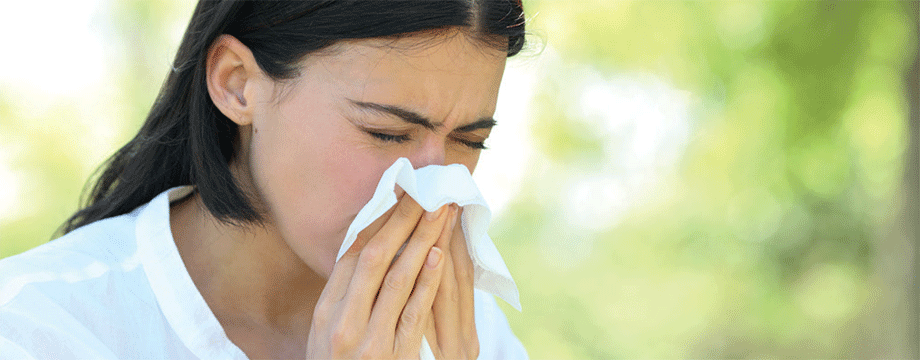
by Michelle Sanchez - Naturopath, Nutritionist and Medical Herbalist for CNM College of Naturopathic Medicine.
Hay fever is a common condition that occurs in spring and early summer due to the pollen from trees and certain grasses; and also in late summer and early autumn due to ragweed.
It is caused by an immune system reaction that is triggered when a person comes into contact with airborne particles such as pollen or dust mites. The immune system produces antibodies, which signal the release of histamine, a natural chemical produced by the body. Histamine causes sneezing, itchy eyes, nose and throat, watery eyes, congestion, sinus pressure and discharge from the nose.
Read the full story here...
What is the best exercise for perimenopause?
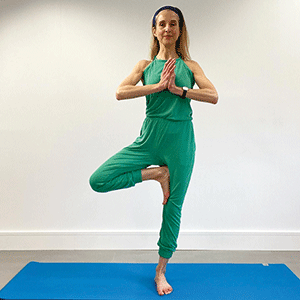
By Grainne O’Driscoll, Rude Health fitness expert
Well that depends on the woman. Perimenopause can last anything from two to 14 years, most commonly around four years, and while some women have hardly any symptoms of menopause, others may endure sleeplessness, joint pain, anxiety, pelvic floor pain, incontinence, weight gain and the list goes on, so much so that getting through a regular day requires monumental effort without adding exercise into the mix. However, along with the many physical benefits, exercise is known to help with our sleep as well as our mental health, so it is worth finding something that suits.
A brisk 30-minute walk five days a week, if possible early in the morning, provides us with daylight, which can help sleep as well as vitamin D production for our bone health. Walking can benefit our cardiovascular and mental health.
Weight bearing exercises and resistance or weight training help maintain muscle strength and bone density and protect us from osteoporosis. Studies have shown that developing lean muscle can help reduce hot flushes and night sweats.
Pilates can help us maintain and build muscle, improve posture and core strength as well as being beneficial for our pelvic floor muscles. Don’t be shy about asking your teacher about this. Yoga along with the physical benefits, can help women reduce stress and is therefore good for our bone health and sleep. Watch out for ‘yoga for menopause’ classes.
Sea swimming – the cold water can help boost our mood and immune system as well as reduce inflammation and you can enjoy the camaraderie with fellow dippers. If you can’t face the sea – a blast of the cold shower is good too.
Gráinne O’Driscoll runs Grá For Fitness offering public, private and corporate Pilates, yoga and fitness classes
Know the UV index
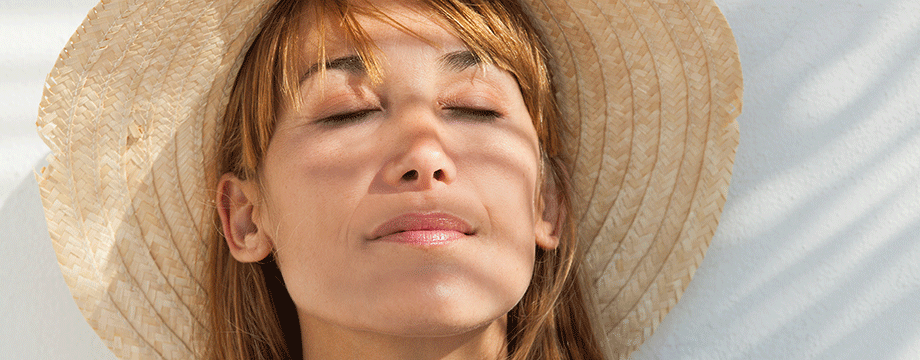
Even though Ireland does not have a reputation for lots of sunshine, when the UV Index is 3 or more you are at greater risk of skin damage that can lead to skin cancer. Get into the habit of checking the UV Index as a reminder of the need to be SunSmart every day from April to September.
Check out www.met.ie/uv-index

And the winner is...
Thank you so much for letting us know what you think about Rude Health magazine in our recent Reader’s Survey. One lucky reader has won a fabulous Bliss Basics Mind Coaching package with mind coach Nadija Bajrami worth €200. The winner of this fabulous prize is Chloe Landes who says, “That’s fantastic, thank you so much, I’m delighted to have won this prize.”
Some of the comments you made about Rude Health magazine:
“I love the various articles and recommendations for various complaints/issues. I look forward to reading this magazine on publication, and pass it on to family and friends to read. Keep up the good work.”
Mary O’Neill
“I like that you have really great advice, but also that you have various experts from health store nationwide, contributing to the features.”
Kenneth O’Brien
“I love Rude Health magazine and what it stands for. I love the articles and the interesting people that are interviewed. I also love the products that are reviewed. You also advertise the college I attend, CNM. And of course the lovely healthy recipes are great!”
Carly Aherne
“I like the clear, up to date information, advice and reviews. Great Irish representation as well. This is a big bonus for many reasons, including cutting down on our carbon footprints wherever possible.”
Laura Molsin
“I just love the great variety of topics and up to date information on new products. It’s a magazine for every age group and I pass it on to my friends who in turn pass it on to their friends. My daughter and her friends also read it.”
Margaret Cavanagh
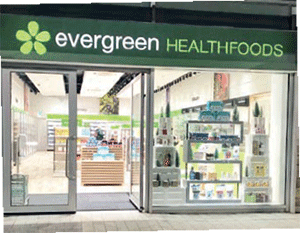
New Evergreen health store opens
Evergreen health stores opened an eighth Galway store just before Christmas in the Gateway Shopping Park, Knocknacarra. They have gone for a more contemporary, clean look which makes it a bright and welcoming place to visit. As soon as it is safe to do so, they plan to hold a series of demonstrations and events.
Irish products have become more and more important to this group of health stores in Co Galway. The ingredients in all products are thoroughly checked for purity and quality before they are stocked, and organic and vegan-friendly products are becoming more important.
“As we approach our 30th year, we are still investing in our business and taking steps to future proof it,” says Gemma Hurley. “Our vision is to bring our values of honesty, integrity and ethical business to a wider number of people and build trust in what we sell to our customers. Our next expansion is online, with a new website and a host of services planned for later in 2021.”
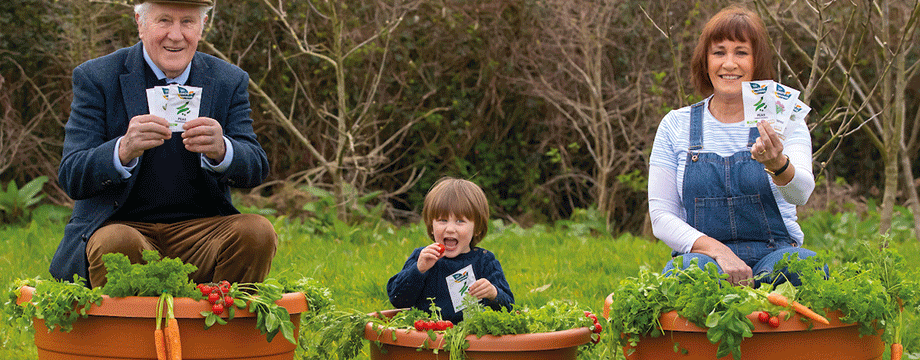
‘Grow it Forward’ with GIY
Grow It Yourself have 50,000 free food growing kits to give away, with participants asked to share the growing experience with ten people in their ‘Grow it Forward’ campaign.
Budding GIY’ers are invited to claim a Grow it Forward pack online or by contacting their local library, as all 330 branches nationwide are helping to drive the effort. As part of the Government’s Keep Well programme, this campaign is designed to help the nation eat well by inspiring and supporting people to grow some of their own food at home.
Each food growing pack includes seeds for beetroot, carrots, salad leaves, peas and tomatoes; a guide to help grow them and a postcard and gift tags to help share them. Those who sign up will also receive regular e-mails with growing support, video clips and ideas for how to ‘grow it forward’ by passing on seeds, seedlings or produce in accordance with social distancing guidelines.
Register for a Grow it Forward pack while supplies last at www.giy.ie/growitforward or contact your local library.
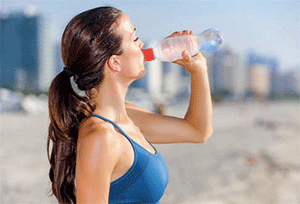
Are there any natural strategies for safer sun exposure?
Elle Fox, Naturopath, CNM Graduate answers
What we eat and drink can influence how we deal with sun exposure. Some of the following may support a healthier relationship with sunlight, especially in the summer months.
Eat sunny - certain foods support resilience from within, helping our body deal with the sun (and benefit from healthy eating in the process). Foods rich in vitamin D (organic raw dairy, fish and plant oils and fats), leafy greens and colourful berries and fruit are just some ideas.
Read the full story here...
Advice for asthmatics with hay fever
304,000 people in Ireland have both asthma and hay fever. While the symptoms for many are just frustrating, unmanaged hay fever can cause asthma symptoms to heighten and escalate into an asthma attack. The Asthma Society of Ireland's annual hay fever campaign is aimed at providing practical support for alleviating unpleasant hay fever symptoms like itchy eyes, scratchy throat and running nose.
The Asthma Society pollen tracker provides daily updates on pollen levels around Ireland including regional prediction levels for the current and following day. It can help people to recognise the days when they need to take additional precautions to manage their asthma and hay fever. ‘Pollen Season’ runs from now until September, and people with asthma are advised to ensure their asthma and hay fever are well managed.
Speak to an experienced respiratory nurse from the Asthma Adviceline service on 1800 44 54 64 and put a hay fever management plan in place.
WhatsApp message the Asthma and COPD patient support service on 086 059 0132 for any questions/queries on asthma, hay fever and Covid-19 symptoms.
For more information on managing your hay fever, visit www.asthma.ie
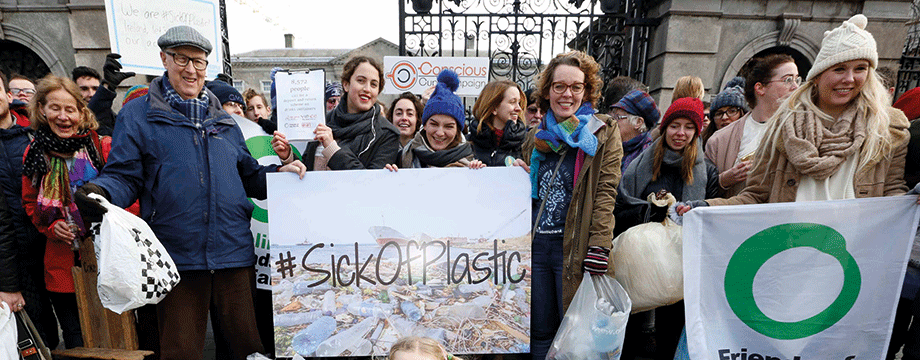
Sick of plastic
Dr. Bronner’s who make Fair Trade soap and body care products is involved in a new All-One Ireland Initiative and their first step was a donation to environmental conservation organisation Voice of Irish Concern for the Environment (VOICE Ireland). At least 1% of Dr. Bronner’s sales to Ireland each year will be donated to local advocacy efforts in support of social justice, animal advocacy, and environmental sustainability.
Dr. Bronner’s is also supporting VOICE Ireland’s ‘Sick of Plastic Campaign’ to promote reusable packaging alternatives instead of single use plastic. The campaign’s #WeChooseReuse initiative will actively encourage supermarkets and other retail outlets nationwide to embrace and promote these alternatives with the goal of making it easier for consumers to change the way they shop and to adopt a more sustainable approach. VOICE Ireland will help encourage shoppers and retailers to supply and use reusable containers to refill cleaning products or to buy dry goods such as pasta, rice, and other grains.
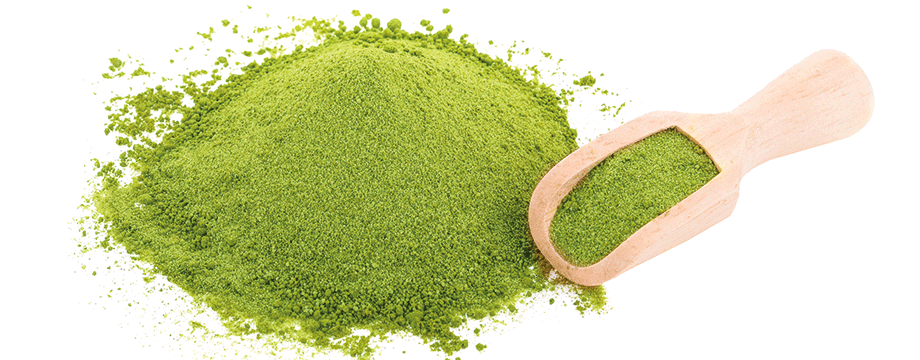
Did you know?
Chlorella is a single-celled species of green algae that grows in fresh-water. It is one of the earliest forms of life, with scientists believing it to be approximately two billion years old.
The name comes from the Greek word ‘chloros’ meaning ‘green’, and the Latin word ‘ella’, which means small. The Japanese were some of the first to start consuming chlorella as a supplement and millions of people there use it today. Chlorella’s use has now spread to Europe and America where its popularity is growing rapidly.
Chlorella in tablet and powder form has been extensively researched and it is thought to have many benefits, including:
Body fat - a study in Japan found extracts from the algae appeared able to reduce the increase in the size of animal fat cells normally seen when consuming a diet high in fat.
Gut microbiome - some types of algae are thought to be able to support our gut microbiomes, the micro-organisms that inhabit our digestive system.
Exercise - studies have shown the fresh water algae could help with improving the efficiency of the body’s energy production and reducing the impact of intense exercise on the immune system.
Holistic Healing: Stressed and exhausted
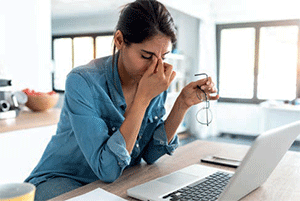
I feel stressed and exhausted. What can you recommend for mental and physical fatigue due to stress?
Michelle Sanchez, Naturopath, Nutritionist and Medical Herbalist answers:
When you get stressed, your nervous system responds by releasing the hormones cortisol and adrenaline into the bloodstream. This is known as the fight or flight response and it results in certain changes within the body to enable you to deal with stress accordingly. Long-term stress is unhealthy and can compromise your health, often leading to adrenal fatigue where you feel physically and mentally exhausted.
Here are some ways you can relieve stress naturally:
Clean up your diet by cutting out junk food, sugar and refined carbohydrates (bread, pasta, pastries, cakes, biscuits), trans fats (refined oils, fried foods) and highly processed foods. Instead, adopt a nutritious, plant-based diet. Eat plenty of organic vegetables and fruit as they are rich in vitamin C, an important nutrient that helps reduce stress hormones in the body.
Read the full story here...
And the winner is...

Thank you so much for choosing your favourite products as featured in the Rude Health Magazine Product Awards 2021. The winner of this fabulous hamper of natural health products worth over €1,000 is Sarah Monahan from Newcastle, Co. Galway.
“I am absolutely delighted to have won a prize and can’t wait to try out the products!” – Sarah.
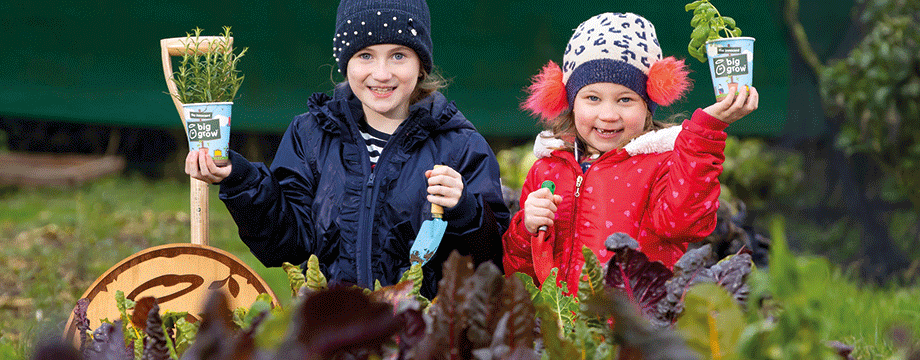
Grow your own kids
Schools may have been closed, but Innocent juices and Grow It Yourself Ireland are calling on teachers to sign up for free food growing classroom kits as a welcome for when doors open again. Each school taking part in The Big Grow will be encouraged to share their growing experiences online in order to be in with a chance of being crowned The Big Grow Champs 2021 and be awarded a school garden revamp.
The winners of the 2020 Big Grow were St. Patrick’s Boys and Girls Primary School in Lombard Street in Galway City. The school owns a small concrete yard and used the space to create an incredible ‘Vertical Garden’ using every inch of space and even placing pallets on walls to grow peas, lettuce, spinach, potatoes and lots more.
Teachers can sign up for a free food growing kit at www.innocentbiggrow.com
Post-Christmas cleanse
Elle Fox, Naturopath, CNM Graduate (College of Naturopathic Medicine)
Once the festivities are over, a gentle cleanse gives us something to aim for and can brighten up the still grey, chilly season.
What’s the fuss about cleansing? Isn’t the body perfectly capable doing its own detox? This could be true if all our elimination pathways worked properly, removing all metabolic wastes from eating, drinking, breathing, exercising – and if we lived a ‘cleaner’ life. But most of us lead lives far from perfect, so, like regularly doing dusting and laundry, it makes sense to give our bodies a helping hand.
Read the full story here...
Interactive Autumn competition winners announced
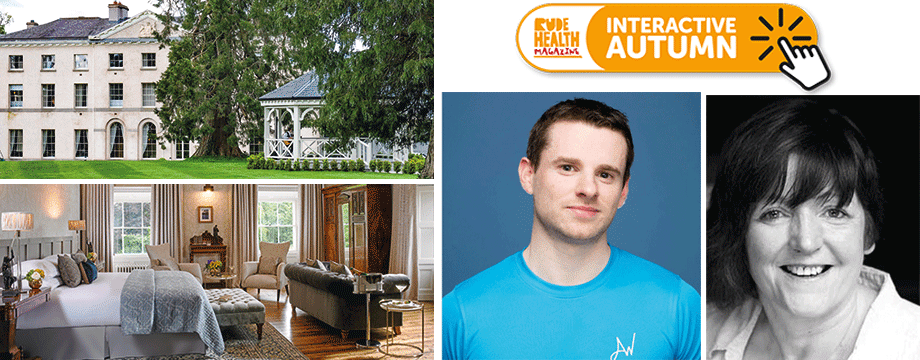
In the September-October 2020 issue of Rude Health Magazine we ran a fantastic promotion. By voting for featured products Rude Health readers could enter a draw to win:
- A fabulous stay for two in Farnham Estate in Cavan
- A six week online weight-loss course with Rude Health fitness expert Alan Williams
- A hypnotherapy and mind coaching course from Awakenings coach Deirdre O'Rourke
Read the full story here...
The Pat Curran Award for Excellence in Customer Service
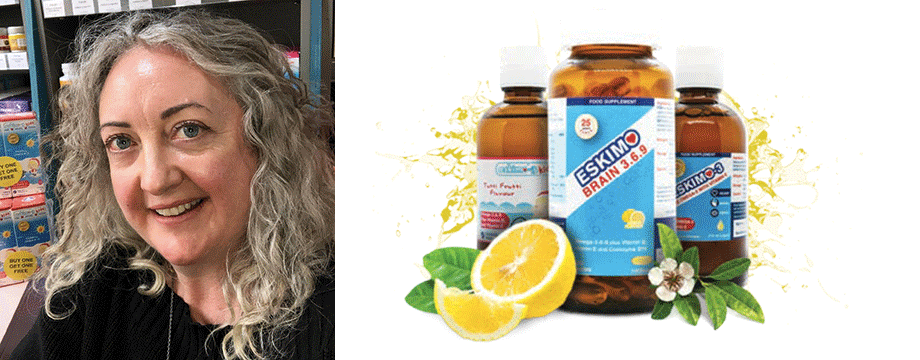
Many Rude Health readers recently took the opportunity to recommend their Favourite Health Store Staff Member for the Pat Curran Award for Excellence in Customer Service for 2020. The overall winner Marion Moffatt who works at health store Nuts & Grains in Mullingar, Co Westmeath won a €500 cash prize and the store received €500 to give to a charity of their choice.
“I am beyond chuffed,” says Marion, “I’m glad we’ve managed to keep our customers happy and keep up good levels of customer service during a challenging year. I’m delighted they are happy with what we are doing here.”
Read the full story here...
Health Stores Ireland Product Awards Winners 2020
Despite not being able to meet as a sector at the annual Vitality show this year, Health Stores Ireland has awarded Best in Category and Highly Commended awards to a range of favourite natural health products. Nominees were short-listed from Tried and Tested articles in Rude Health magazine over the last 12 months and winners were voted for by secret ballot by Health Stores Ireland members.
Health Stores Ireland Chairperson, Martha Brennan, commented that it was heartening to see so many Irish-based brands feature strongly in the awards. She hopes the announcements will bring some cheer and encouragement to the hardworking people behind the brands.
Read the full story here...
Holistic healing: sleep issues

I get off to sleep quickly but often wake in the small hours and struggle to get back off to sleep until it’s nearly time to get up! What can I do about this?
Rosie Weston, Nutritional Therapist, CNM graduate answers for CNM (College of Naturopathic Medicine)
Your sleep can be affected by much more than the food you eat. What you do in the few hours before bedtime can negatively or positively affect your sleep cycle. Alcohol, caffeine, temperature, electronics, pollution and noise are all known sleep disruptors. Best to drink caffeine in the morning and not after 2pm and save alcohol for the weekends. Electronic devices emit blue light which affects melatonin production (our sleep-regulating hormone).
Try not to use these the few hours before bed or wear blue light-blocking glasses. Make sure your bedroom is cool and dark as this creates the best environment for deep sleep.
Read the full story here...
Control your allergies

It may be winter, but many people still experience hay fever-like symptoms.
Check out these tips for keeping yours under control.
- Make sure your house is well ventilated, avoid drying clothes on radiators and/or use a dehumidifier.
- Vacuum the house regularly using a HEPA (High Efficiency Particle Arresting) filter.
- Damp dust surfaces regularly, to reduce allergens on surfaces.
- Wash bedding very regularly to remove allergens.
- Apply an organic drug-free allergen barrier balm around your nostrils and the bones of the eyes throughout the day to trap dust, pet and mould allergens.
- Shower at night before going to bed.
- Ensure your pet is well groomed and shampooed and try to keep them out of bedrooms.
- Use allergy-friendly mattress covers and bedding.
- Keep cuddly toys and blankets in a cupboard to prevent the build-up of allergens on them.
- Hose down your Christmas tree before taking it into the house to remove some of the dust and mould spores.
How to enjoy Christmas
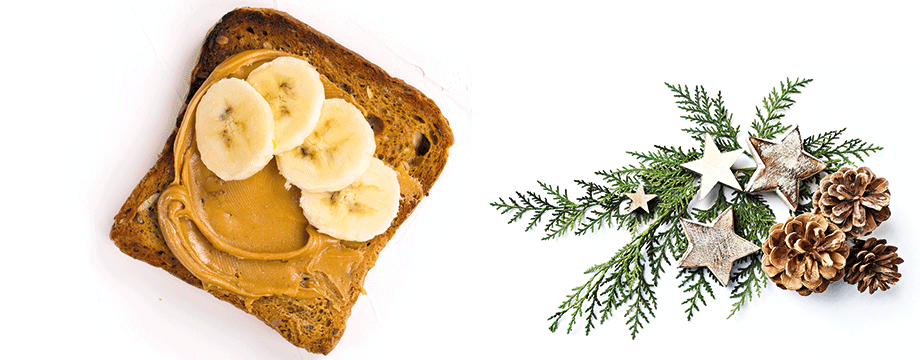
Christmas may be a most wonderful time of the year, but for many people it can cause stress and anxiety. Here are some Rude health tips for making the festive season just that bit easier to cope with.
Put sleep first
without enough sleep you will struggle to hold it all together in these dark days of winter. Make your bedroom a relaxing space – turn off devices, burn lavender essential oil, create a routine to going to sleep that may involve a warm bath or reading a book. If this fails try taking a magnesium supplement.
Change your breakfast
to get your feelgood serotonin into your body you need to up your intake of tryptophan from eggs, fish, bananas, dried dates, soya, almonds and peanuts and combine these with carbohydrates such as oats, brown rice or wholemeal bread. Peanut butter and banana on toast, or boiled egg and toast should do it.
Make festive fun
tune into comedy shows that make you laugh. Laughter really is the best medicine – it can flood your body with feelgood chemicals and decrease stress levels. Go on, have a laugh! Another good way to do this is to play family board games.
MS READaTHON goes online

The MS READaTHON for Multiple Sclerosis Ireland, originally launched by Roald Dahl in 1988, runs until the end of November.
This year it has gone virtual and thousands of readers young and old will take part in raising awareness and vital funds. READaTHON is now encouraging ‘grown up’ readers to take part and get their offices, clubs and families to rediscover their love of reading. Readers can earn virtual Reward Badges and Stars for the goals they achieve, they can build their avatars, share their campaign on social media and rate and review the books they read.
Check out this new, interactive website packed full of amazing features at www.msreadathon.ie
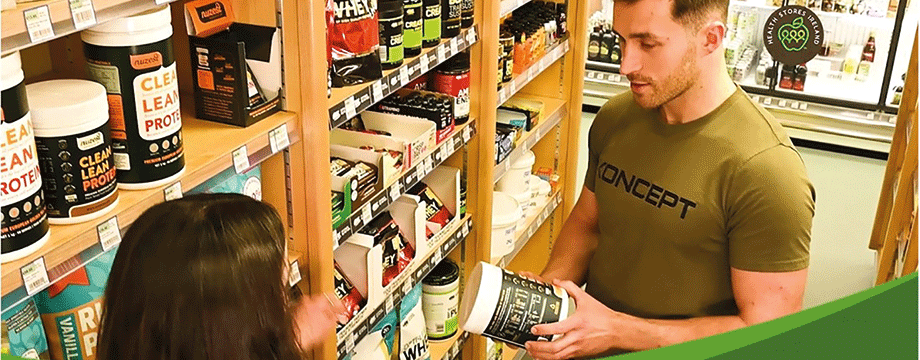
Irish independent health stores – on your TV
Look out for Health Stores Ireland TV adverts running during September on TG4. The core message of the campaign is “health food stores are at the heart of your community”.
The advert was filmed over several days in three shops in the west of Ireland with the aim of capturing the essence of independent food stores.
Health Stores Ireland Chairperson, Martha Brennan thanked all the store owners and suppliers who are supporting the project and said: “with the current focus on natural health and wellbeing it is vital that consumers are reminded of the unique offering and value that independent health foods stores bring to their respective communities.” She added that, “it’s probably the first time that a group of truly independent retailers have been able to band together to run a TV advertising campaign.” She is looking forward to a positive response from consumers.
Check out www.irishhealthstores.com from mid September to find links to Health Stores Ireland social media channels.
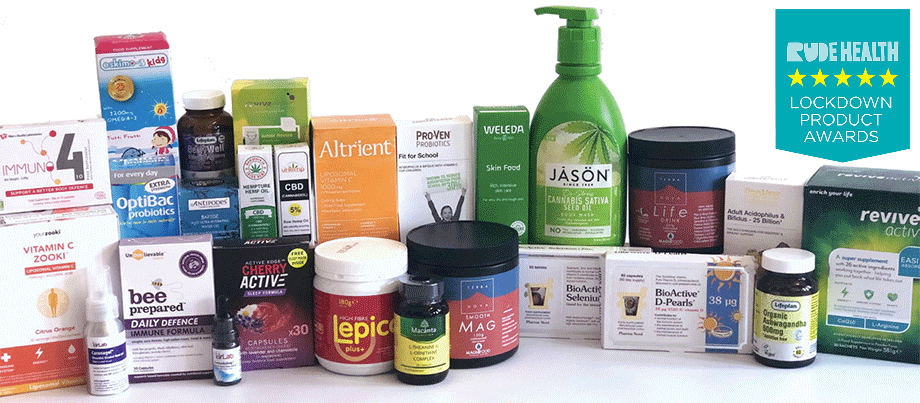
Lockdown heroes
In the last issue of Rude Health magazine we decided to celebrate natural health products that had helped our readers through the challenging period of lockdown, and also acknowledge the great work done by staff in health stores during this difficult time. Find out which fantastic products won each category in the Rude Health magazine Lockdown Awards here.
Thank you so much for letting us know which products you felt helped you through lockdown. One lucky reader has won a fabulous hamper of natural health goodies worth €640 - the winner of this fabulous prize is Sarah Snell from Co Wicklow.

When should I add good fats to my child's diet?
A friend suggested that I include more good fats in my son’s diet - he’s a year old and still breast-feeding infrequently. Can you tell me how best to include these in his diet?
Naturopath Gemma Hurditch answers for CNM (College of Naturopathic Medicine)
I used to spread tahini, (a nutrient-rich sesame paste), onto oat crackers with some raw honey and the kids would go wild for them. Tahini is very rich in calcium, which is great for growing bones. You can use the same trick with nut butters - whole nuts are a choking hazard for young kids, but almond butter, cashew paste and various other nut pastes are very nutritious. At his age a lot of children may have developed a taste for sweeter foods, so mixing with a little raw honey (which is advised from one year onwards) can ease him into the new flavours.
Read the full story here...

New research carried out by safefood since the beginning of Covid-19 has revealed that 43% of children in Ireland are going to bed later, 44% are waking later each morning and as a result of children experiencing changes in their sleep routine 49% are eating more unhealthy snacks or treats, 54% are less active and 67% are engaging in more screen time.
Sleep is the cornerstone to health and wellbeing and its impact on a healthy lifestyle cannot be underestimated. We know that poor sleep routines are associated with sedentary behaviour and research has shown that a lack of sleep is associated with increased overweight and obesity, especially in younger age groups.
safefood, the HSE and Healthy Ireland are encouraging parents to get bedtime back on track as the key to starting their children on the way to a healthier life as they return to school.
Tips to help get bedtime back on track:
- Consistent bedtimes are at the heart of the routine to provide regularity and predictability that over time will help a child to self-regulate.
- Reduce screen time and sugary foods and drinks in the hours leading up to bedtime.
- Encourage physical activity and fruit and vegetables during the day.
- Encourage relaxation skills and wind down activities.
- Value sleep time within the family culture.
To find out more about the START campaign and ways to make a healthy, positive start visit www.makeastart.ie
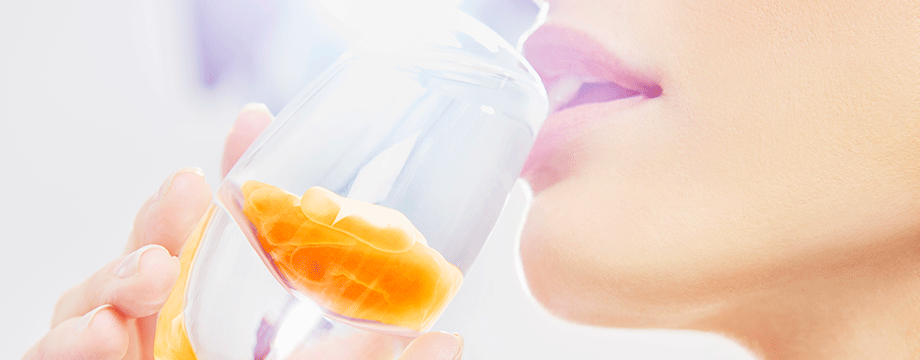
Vitamin C for post-lockdown immune defence
The global pandemic has meant that more people have turned to nutritional supplements to help support their health and wellbeing during these extraordinary times. This year the Rude Health Lockdown Product Awards focus on products that have become household essentials during lockdown.
Be prepared
Finding natural ways to support the immune system is a priority as we head towards autumn and concerns for winter infections start to escalate. Social distancing, wearing face masks and frequent hand sanitising help provide protection from the outside. But a healthy balanced diet and lifestyle along with supplementing with vitamin C helps support the immune system from the inside.
Read the full story here...
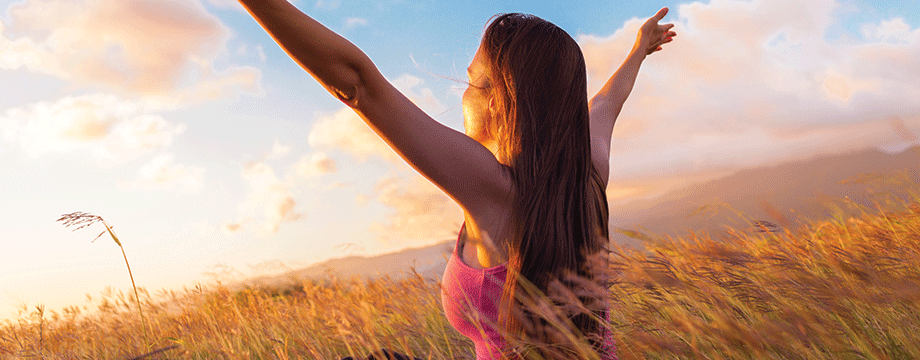
Boost your immunity post lockdown
As we move away from isolating at home and restrictions ease, many of us will be concerned about our chance of contracting Covid 19, but what can we do about this? Apart from following the all-important advice of the government, we can also take some steps to improve our immunity.
- Vitamins and minerals – consider boosting your immunity with vitamin D exposure from the sun, vitamin B6 (found in dairy, chicken, fish, spinach and carrots), and vitamin E (in seeds, nuts such as almonds and spinach, as well as the mineral zinc which is available in the Mediterranean diet. If you are not getting enough of these consider taking a supplement.
- Keep a healthy weight and manage your sugar levels – being overweight, and suffering from pre-diabetes or diabetes, can weaken the immune system and make it more difficult to combat infections.
- Get active – it’s good for blood circulation. This means that your immune cells can travel around your body more efficiently so that they can do their job.
- Control your stress levels – when you are stressed the level of the hormone cortisol in your body rises and this makes it more difficult for your body to fight infections.
- Sleep it off – a body that doesn’t get enough sleep will find it hard to fight off infection as the body’s ability to defend itself is depleted without deep sleep.
- Cut it out – consider stopping smoking as this can weaken lungs and the body’s ability fight off respiratory infections.

Free videos to nurture mum and baby
Nurture Mum is a new Irish forum founded by Kathy Whyte, a health professional, former nurse and midwife with a masters in nutritional medicine. Kathy and other experts offer recommendations and advice on the vital role of nutrition and lifestyle during the first 1000+ days (from preconception, through pregnancy to toddlerhood), shaping health futures for mum, baby and families.
A number of presentations will be launched during July to cover the first 1,000 days of a baby's life. These include: pregnancy nutrition, exercise during pregnancy, breathing and relaxation, Covid and you and your baby, breastfeeding, the role of the public health nurse, managing minor newborn ailments, baby massage and weaning. The presentations take the form of 30-minute videos, direct to camera.
Kathy’s aim is to increase awareness of the importance of nutrition and lifestyle throughout the first 1000+ days of a baby’s life. This is a unique window of opportunity to promote maternal and child health, to reduce risk of complicated pregnancy and labour, childhood obesity, asthma and allergy. nurturemum.ie
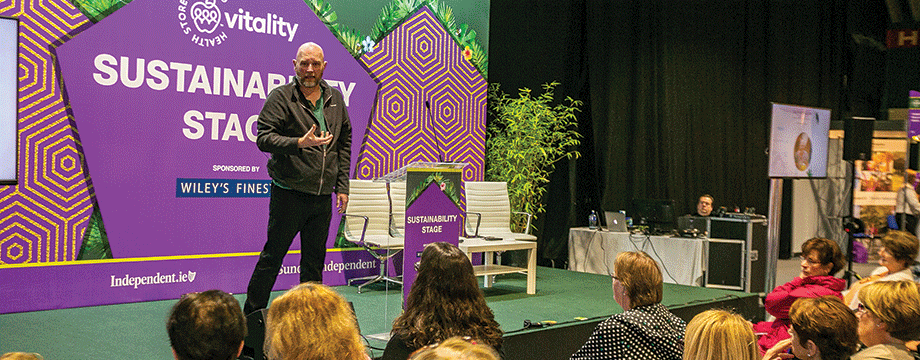
Vitality returns for 2020
Your inside scoop on Ireland’s leading natural health and wellbeing show
Whether you’re looking to learn about the latest fitness trends, upgrade your nutrition, build a stronger mindset or learn about living a more sustainable life, join Vitality on Saturday 26th and Sunday 27th September at the RDS, Dublin, for two days of classes, panel talks, demonstrations and experiential workshops.
Bringing together all the very best in nutrition, lifestyle, fitness and sustainable living in an exciting and feel-good environment for all the family, plans are well underway to ensure a great show, despite the current worries around Covid-19.
With four distinct zones: Food & Cookery, Fitness, Wellbeing and Sustainability, the line-up of engaging expert speakers covers all aspects of celebrating healthy and positive living, and with more than 130 top class exhibitors, there really is something for everyone at the show.
Read the full story here...
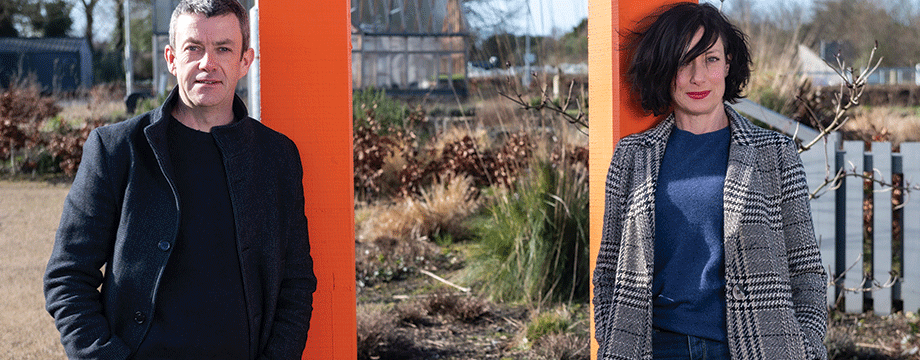
Have you been watching Grow Cook Eat?
For the last few weeks on RTÉ1 and available on the RTÉ player Grow Cook Eat hosted by Michael Kelly of GIY Ireland and Karen O’Donohoe has travelled to meet and visit expert food producers, chefs and innovative community food projects all across the country, plus giving delicious menu ideas from chef Katie Sanderson. From plot to plate to waste, Grow Cook Eat shows that simple, everyday food actions can make a powerful lifestyle change.
Grow It Yourself’s core message is that the best way to create a more sustainable relationship with food is to grow a small amount of your own. Each episode shares with viewers all of the knowledge required to grow a different vegetable and how to turn this into a delicious dish for all of the family. This series they include broad beans, oriental greens, cucumber, broccoli, chard, celeriac and strawberries.
Visit www.growcookeat.ie
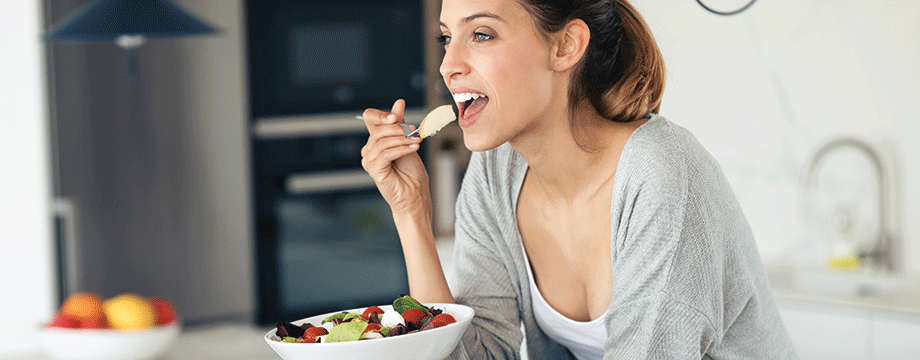
I’ve recently gone vegan, can you help me with plant-based iron sources?
Naturopath Gemma Hurditch answers for CNM (College of Naturopathic Medicine)
Having low iron can affect energy levels, making us fatigued, reducing our immunity, fertility and concentration. Symptoms of low iron include tiredness, recurrent infections and ‘pica’ (a craving to eat strange things such as soil and ice). If you are having symptoms of low iron, or if you are thinking about supplementing, it is a good idea to have a blood test that checks your ferritin (stored iron) levels. This is considered the most sensitive test to detect iron deficiency. Levels on the low end of ‘normal’ are worth boosting as the ‘acceptable’ ferritin levels fall within a wide range.
Read the full story here...
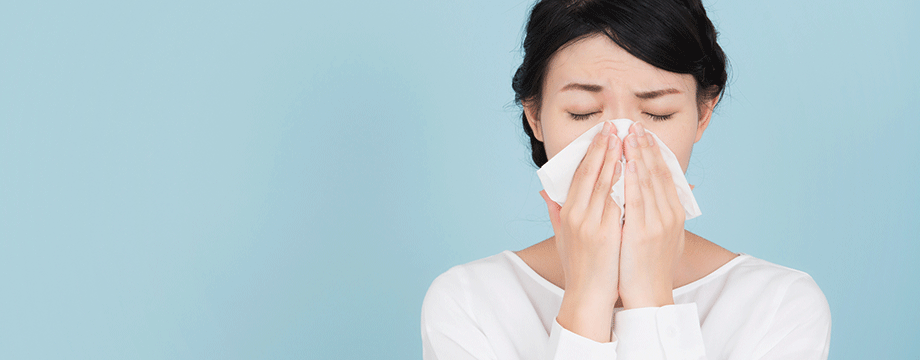
Hay fever or COVID-19?
In summer 2020 when COVID 19 is still a presence in all our lives, many of us who suffer from hay fever and know others who do, may be concerned about how to spot the different symptoms. The most common symptoms of Coronavirus are a high temperature and / or a new continuous cough. Our knowledge of Coronavirus is still evolving, but it seems that sneezing is not a symptom and it's rare to have a runny or stuffy nose, both of which are common in hay fever. Other hay fever symptoms include sneezing, a runny or blocked nose, itchy red watery eyes or an itchy throat, mouth, nose and ears.
- Apply a natural oily cream to your nostrils to stop pollen entering the body – versions can be made from soy oil, beeswax, rosemary oil and include vitamins too.
- Wear wraparound sunglasses when outdoors to help prevent pollen from getting in and irritating your eyes.
- Dry your washing indoors to avoid pollen sticking to it.
- If you have been outside for any time wash your hair and put your clothes in the wash.
- Keep an eye on Met Éireann’s website which includes a daily pollen forecast.
- Foods that can help hay fever symptoms include onions which contain a natural antihistamine and are anti-inflammatory, apples, broccoli, garlic and tomatoes.
- Turmeric has anti-inflammatory qualities too and some experts believe that it can prevent the release of histamine in the body which can cause hay fever.
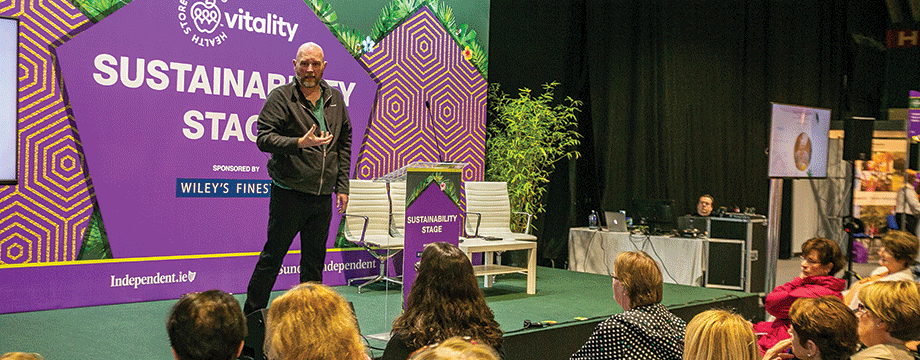
VITALITY 2020
Over the weekend of September 26-27 Ireland’s largest natural health and wellbeing show, Vitality, will take place in Dublin’s RDS, Dublin. Vitality will once again bring together all the very best in nutrition, lifestyle, fitness and sustainable living in an exciting and feel-good environment for all the family.
The show, which attracted more than 4,500 visitors during the two-day event in 2019, has plans underway to ensure a great show in 2020, despite the current worries around COVID-19.
Read the full story here...
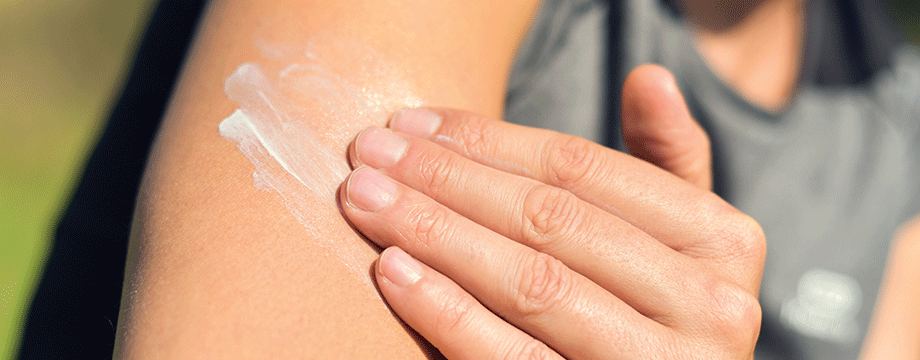
It’s time to be SunSmart
We may be stuck at home for some time, but most of us will be hoping for a good summer so that we can be outside more. The Irish Cancer Society’s SunSmart code gives good advice for preventing sun damage even during an Irish summer.
1 Seek some shade
Good shade can give up to 75% protection from UV rays. Good shade needs to protect us from direct and indirect UV rays.
2 Slip on some clothes
Choose clothes that cover as much skin as possible. Linen, cotton and hemp let less UV rays through and dark clothes block more UV rays than light coloured clothes. Slap on a hat, but make sure it gives shade to the face, neck, head and ears.
3 Wear sunglasses
Your eyes can be damaged by UV rays too. Eye damage from UV rays can start at an early age; when choosing your sunglasses:
- go for wrap-around ones,
- make sure they give UV protection,
- check tags to make sure they give enough protection,
- look out for: European Standard EN1836 or British Standard BS 27241987.
4 Use sunscreen
When in Ireland wear sunscreen from April to September to reduce your risk of skin cancer. Use a ‘broad-spectrum’ sunscreen that protects against UVA and UVB with a minimum SPF30. Apply to dry skin 20 minutes before going outside.
5 Know the UV index
When the UV Index is 3 or more you are at greater risk of skin damage that can lead to skin cancer. Get into the habit of checking the UV Index as a reminder of the need to be SunSmart every day from April to September.
And the winner is...
We'd like to say a huge thank you to all our readers and followers who voted for their favourite products in our Rude Health Product Awards 2020. One lucky reader has won a fabulous hamper of lavera natural and organic beauty goodies worth over €160.
The hamper contains lavera Hydro Effect Cleansing Milk, Hydro Effect Serum,Hydro Effect Mask, Hand Balm SOS, Body Smoothing Scrub, Firming Body Milk, Pampering Shower Gel, Pampering Body Lotion, Deodorant Spray, Basis Sensitiv All-Round Cream, Soft Eyeliner Pencil in Black, and NEW Matt'n Stay Lips in Matt’n Berry.
The winner of this fabulous prize is Marese Mckiernan. Congratulations from everyone at Rude Health and we hope you enjoy using the products!
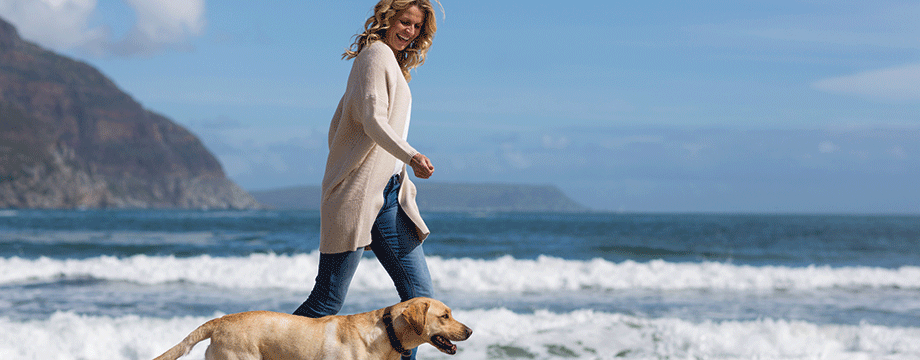
I was recently diagnosed with PCOS whilst trying to conceive my second child. I'm having acupuncture. What else can I do to help improve my chances of conceiving?
Naturopath Gemma Hurditch answers for CNM (College of Naturopathic Medicine)
There have been significant gains for Poly Cystic Ovary Syndrome (PCOS) problems using acupuncture. Other things you can do include lifestyle and diet changes:
Try a low Glycaemic Load (GL) diet to help keep your blood sugar levels on a more even keel and reduce the amount of insulin in your blood stream. Insulin stimulates the ovaries; this can result in excessive male hormone production (androgens), which makes ovulation more difficult (amongst other problems). Spearmint tea can help metabolise androgens, so sip 2-3 cups a day.
Read the full story here...
Spring into Health
27-29 February marks the annual Spring Into Health event at health store Evolv in Enniscorthy, Co Wexford. Customers can enjoy three days filled with full body health scans, heart and cholesterol checks, allergy tests with nutritional consultations - all greatly reduced.
There are also reduced priced treatments such as facials, iridology, massage, ear candling, reflexology and reiki.
Plus tarot and astrology and 30% off gifts. Taste great food and join the fun.
Check out www.evolv.ie for a full programme of events.
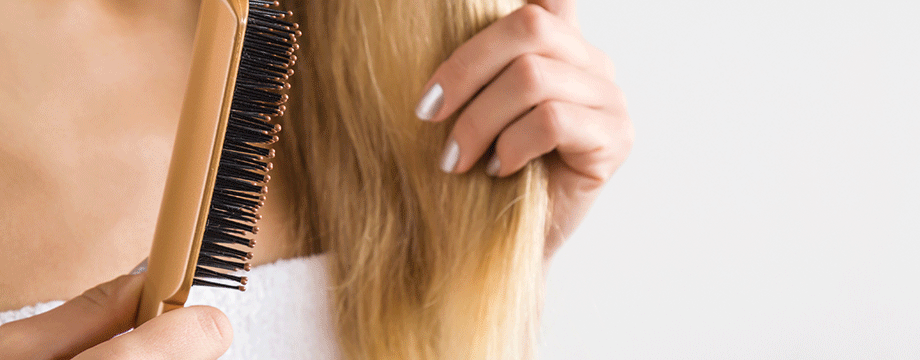
Hope for hair loss
Diffuse hair loss in women is a common and significant health issue that negatively affects body image, self-confidence and perceived quality of life. According to newly published clinical research by Thom E and Wadstein J, published in the HSOA Journal of Clinical Dermatology and Therapy, Proteoglycan Replacement Therapy - drug-free oral supplement Nourkrin® with Marilex® - promotes hair growth and quality, which leads to improved hair satisfaction and self-confidence among women with hair loss.
The new clinical paper is based on an outcome study where women with diffuse hair loss voluntarily started a six-month course of treatment with Nourkrin® Woman (600 mg Marilex® per day). After three months, the participants reported significant results and overall satisfaction with their hair growth recovery and appearance.
After six months, treatment satisfaction with Nourkrin® Woman increased further as 96.49% of participants reported improvement in hair growth, and 97.37% reported improvement in hair appearance and quality.
No significant treatment related side-effects were reported in this study.
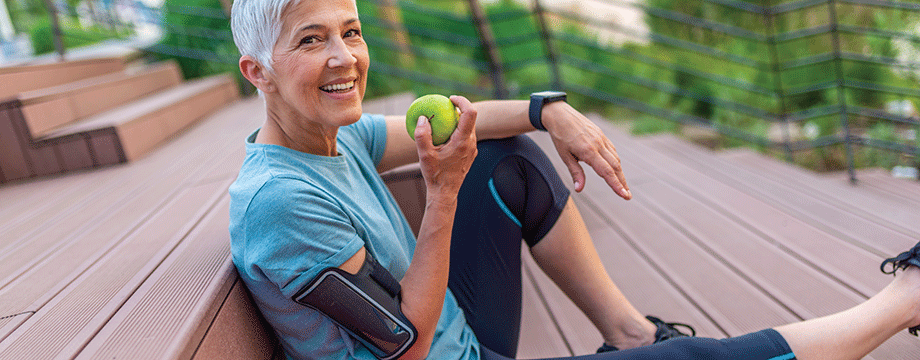
An apple a day...
A study carried out by researchers from the University of Reading, and the Fondazione Edmund Mach in Italy and published in The American Journal of Clinical Nutrition compared apple consumption with apple juice. Forty healthy volunteers with slightly raised cholesterol were split into two groups - half were asked to eat two apples a day for eight weeks and the other group were asked to drink apple juice with the same amount of calories. After eight weeks, the group on two apples a day had better cholesterol readings compared with the group on apple juice.
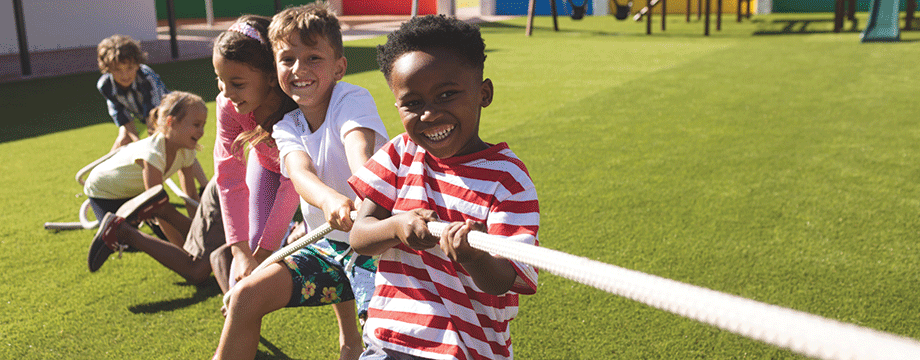
Study reveals children's activity levels drop with age
Researchers from the University of Bristol and the University of Birmingham undertook a study of children's activity levels at age 6, 9 and 11 by asking children to wear accelerometers to measure levels of movement. The study results were published in the International Journal of Obesity.
The researchers recruited children in 57 schools in and around Bristol in England and collected data for 2,132 children in total, 512 of whom were included in all three phases of the study. The study found that all children became less active as they grew older, but the activity levels of girls and children who were overweight dropped most.
Children are encouraged to partake in moderate or vigorous activity for at least an hour a day - this might include playground activities, walking briskly to school, dancing, cycling, playing football, and physical education at school.
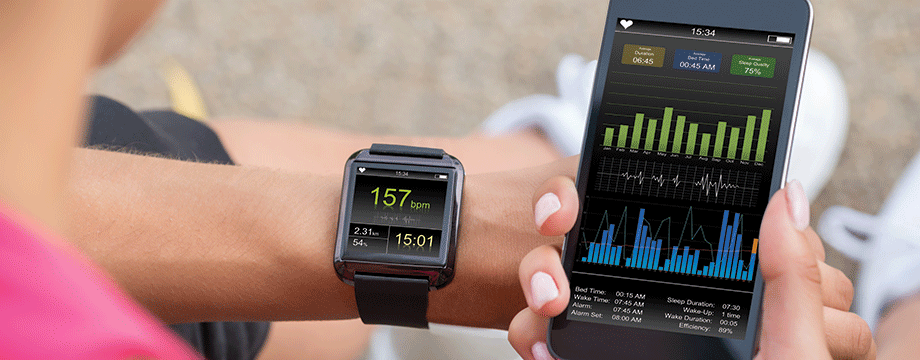
How fitness apps affect our attitude to exercise
A study carried out by Dr Eoin Whelan at the J.E. Cairnes School of Business and Economics at NUI Galway and published in the journal Information Technology & People has examined how fitness apps can affect the wellbeing of the user based on 272 people involved in cardio-intense physical activity. The research focused on identifying how the social features of fitness apps predict the type of passion (harmonious and obsessive) we have for physical exercise, and what the resulting positive and negative implications are for our wellbeing.
To motivate people to exercise, modern physical fitness apps provide a variety of rewards to users based on the tracking and analysis of the number of steps walked per day, calories burned, or average speed of a cycle or run.
The research found that fitness apps can lead to both positive and negative wellbeing outcomes, depending on the person's social motivation for using the app. People who use fitness apps for reciprocation (i.e. giving support and encouragement to other exercisers), are more likely to have a harmonious passion for their exercise, and ultimately lower life stress. In contrast, people who use the app for social recognition (i.e. to receive praise and public endorsements for their exercise activities) are more likely to develop an obsessive passion for physical exercise, and suffer higher life stress in the long run.
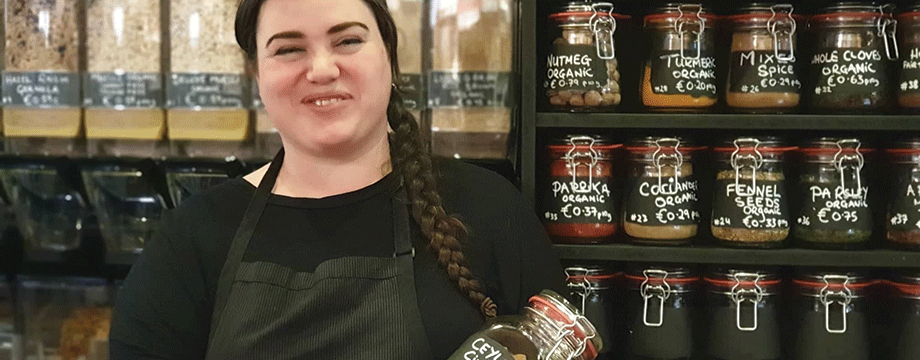
Health stores lead the way
Health store Simple Simon in Donegal town is fully committed to reducing single use waste. For the last couple of years they have been working steadily to provide refill alternatives to many products. They now offer refills on local milk, apple cider vinegar, live natural yoghurt, bodycare products such as shampoo, conditioner, shower gel and also refills on household products like toilet cleaner, laundry liquid and washing up liquid. By bringing your own container and refilling it instead of buying another one you are cutting down massively on single use products, particularly plastic.
Simple Simon have also started a zero-waste refill station for dried foods such as organic oats, hazel malt granola, rice, pasta and sesame sticks. In the herbs and spices section they offer turmeric, nutmeg, cinnamon, mixed herbs and Suki tea that is served in the cafe, and Fairtrade vegan-friendly hot chocolate.
Customers who have forgotten their containers can pick up a paper bag, with a small levy. Using a refill station is a great way to cut down on food waste - you buy exactly what you need.
Let’s hear it for Ireland’s independent health stores - leading the way to a greener country.
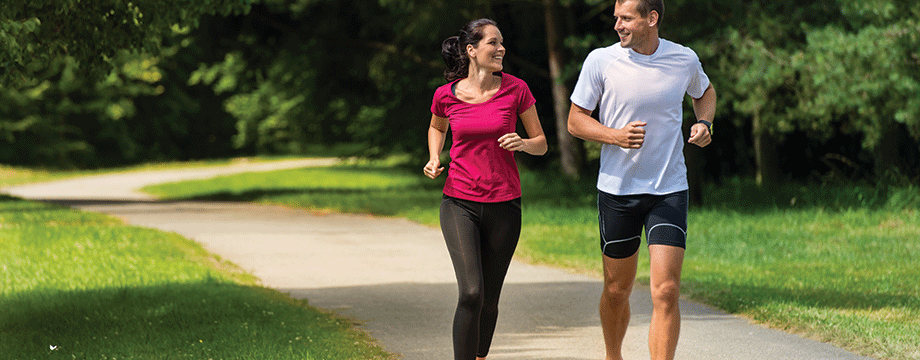
Running reduces risk of death in some
A study published in the British Journal of Sports Medicine conducted by researchers from Victoria University, University of Sydney and University of Southern Queensland in Australia, and other institutions in Thailand, Austria and Finland examined the results from six large studies into the effect of running upon mortality in 230,000 middle-aged adults. Any running was linked with a 27% reduced risk of dying from any cause compared with no running. While people who regularly go for a run or jog may also be generally healthy with a good diet, no smoking and moderate alcohol consumption, the study did not look into this.
The researchers concluded: "Increased rates of participation in running, regardless of its dose, would probably lead to substantial improvements in population health and longevity. Any amount of running, even just once a week, is better than no running, but higher doses of running may not necessarily be associated with greater mortality benefits."

Successful support for your New Year exercise regime
Naturopath Elle Fox answers for CNM(College of Naturopathic Medicine)
Whether you’re a couch potato who has decided you need a change, or a dedicated gym-goer, there’s something refreshingly challenging about a New Year exercise start. This quick reference will help support you:
Cute on carbs: important for sustained energy release, low GL carbs (legumes, wholegrains and fibre-rich fruit/veg) will keep you going without spiking insulin. Allow time for digestion before exercise.
Feast on fats: Omega-3s support regeneration of healthy muscle tissue and regulate inflammation. Fatty fish and fish oils, seeds, nuts and their oils are wonderful sources.
Read the full story here...
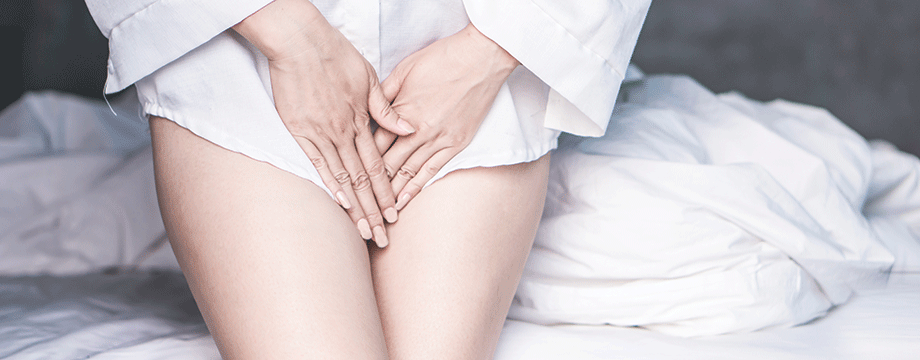
Cotton pad use leads to less irritation
Scientists from the University of Pavia in Italy conducted a study in 2018 with 200 women who suffered from vaginal irritation and compared their outcomes when wearing ordinary non-cotton pads with Organyc 100% certified organic cotton pads during their periods. The results over a period of two months concluded significant improvement in sensitive skin issues including redness, itching, swelling and burning in the women who used the cotton pads and 71% said these pads offered them a significant benefit.
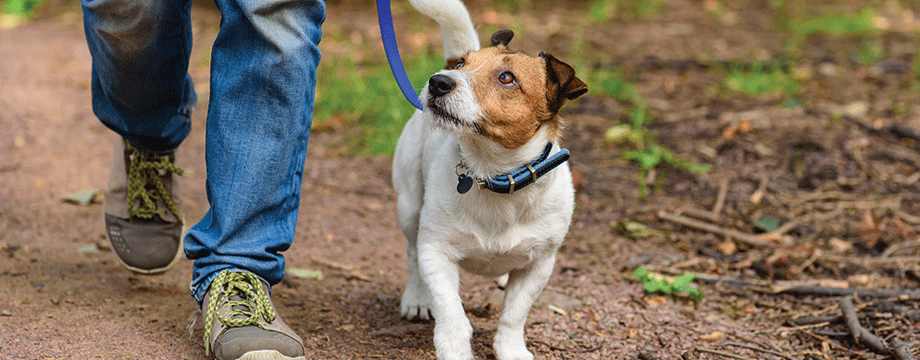
The benefits of owning a dog
Man’s best friend could be a better friend than many of us think with scientific research revealing that dog ownership is linked to longer life. A new cohort study from Sweden, carried out by researchers at Uppsala University and the Swedish University of Agricultural Science, and published in Circulation: Cardiovascular Quality and Outcomes used data from national databases to investigate what happened to people aged 40 to 85 who had a heart attack or stroke within a specific period of time. They examined whether people were alive by the end of the study, and whether they were registered as a dog owner.
Registered dog owners were more likely to be living. Dog owners will already know that owning a dog has the benefits of exercise and companionship.
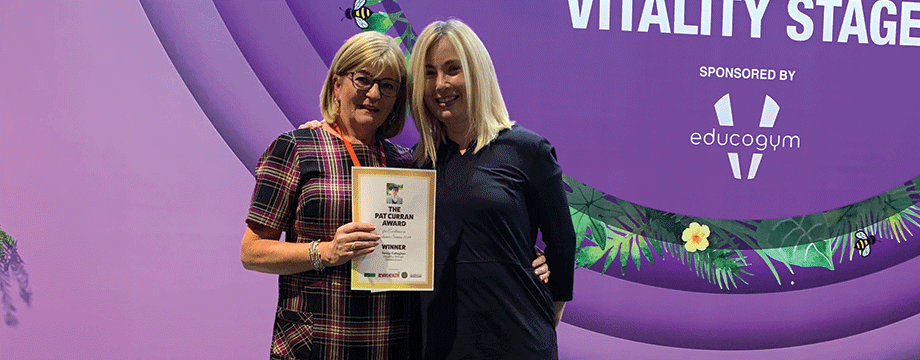
The Pat Curran Award goes to:
Rude Health magazine was proud to be associated with the Pat Curran Award for Excellence in Customer Service this year. We can now announce the winners.
Teresa Callaghan from Healthy Beings in Strokestown, Co Roscommon was voted the overall store assistant winner – she received a €500 cash prize and her store received €500 to donate to a charity of their choice.
Rude Health readers who voted for their favourite store assistant were entered into a draw to win a €300 hotel break gift card from irelandhotels.com and a big hamper full of Eskimo-3 goodies. The winner of this fabulous prize is Anna McInerney whose local store is Aloe Tree, Ennistymon, Co Clare.
Three runners-up received hampers of Eskimo-3 goodies. They are Louise Coyle whose local store is Evergreen, Eyre Square Galway; Ciaran Boyle whose local store is Food for Thought, Buncrana; and Janet O’Brien whose local store is Health Matters, Ashleaf Shopping Centre, Crumlin, Dublin 12.
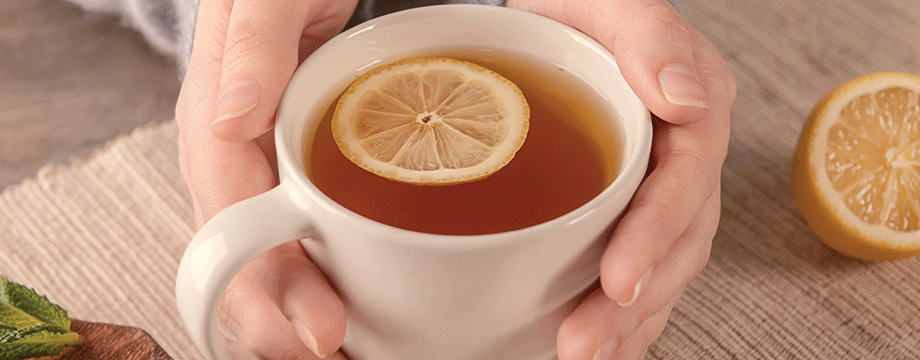
What can I do to support my winter health?
Winter can be a challenging time for most people. Less sunlight, falling temperatures, central heating, coughs and colds - all contribute to us all feeling a little SAD, but there are many foods in our kitchen cupboards and in nature to help keep us in better shape.
Bone or fish broths, rich in fats and oils help top up vitamin D levels – valuable support for low moods. Chuck in carrots, onions and raw garlic and you have a powerhouse of nutrients.
Read the full story here...
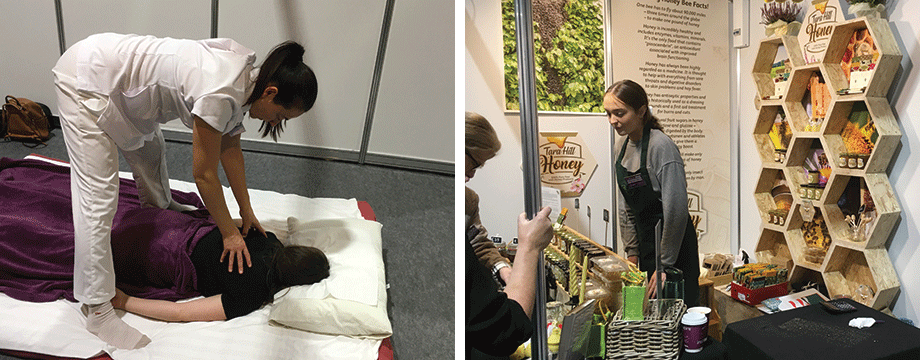
Vitality Expo 2019
The power of meditation, child-friendly fitness and moving to a more sustainable lifestyle were the top topics at Vitality, Ireland’s largest health and wellbeing festival which took place at the RDS Simmonscourt on 28-29 September.
The two-day event featured a range of talks, cooking demonstrations and fitness classes across four stages as well as over 150 exhibitors, showcasing the latest products and innovations from the natural health and wellness sector including supplements, beauty products and make-up, eco cleaning, honey, fermented foods, sheep’s cheese, a massage station and eco toys for the little ones to enjoy.
Read the full story here...

Afternoon naps good for your health?
Researchers from the University Hospital of Lausanne in Switzerland, the Faculty of Biology and Medicine of Lausanne and the Swiss National Science Foundation randomly recruited 3,462 adults from the city of Lausanne aged 35 to 75, to assess the effect daytime napping has on health. Their report was published in the peer-reviewed medical journal Heart. Between April 2009 and September 2012, study participants were asked about their sleep habits, afternoon napping, physical activity and medical history.
In the group, there were 155 heart attacks or strokes over the study period. The majority of people in the study (58%) said they had not had a nap in the past week. However, 19% reported one or two naps, 12% reported three to five naps and 11% reported daily naps. The researchers found that people who had one or two naps a week were less likely to have a heart attack or stroke, compared with those who did not nap. Having more than two naps a week was not linked to any benefit.
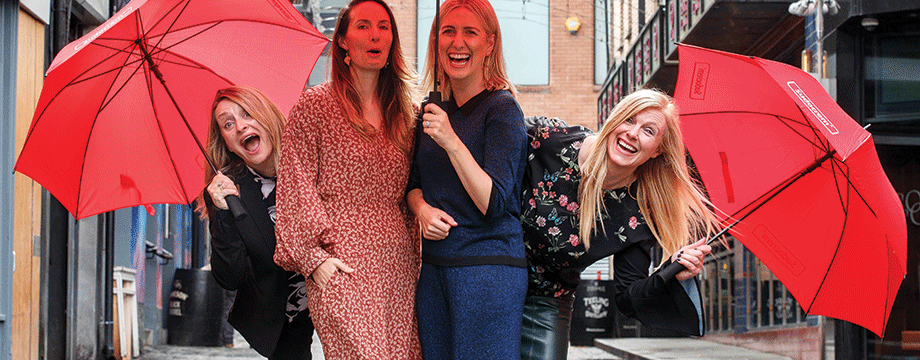
The face of parenting in Ireland
New Sudocrem #RealParenting research into the realities and challenges of being a parent in modern Ireland has found that childcare costs and lack of sleep are the most challenging aspects of being a parent (both 52%), followed closely by tantrums (50%) and coordinating childcare logistics (39%). Just over a third (36%) of parents claim that posts that portray ‘perfect parenting’ on social media generally makes them feel worse.
The research was launched with a panel made up of Ireland AM anchor and new mum, Ciara Doherty, Dirtbirds comedic duo, Sinead Culbert and Sue Collins and women’s wellness coach and yoga therapist Lydia Sasse.
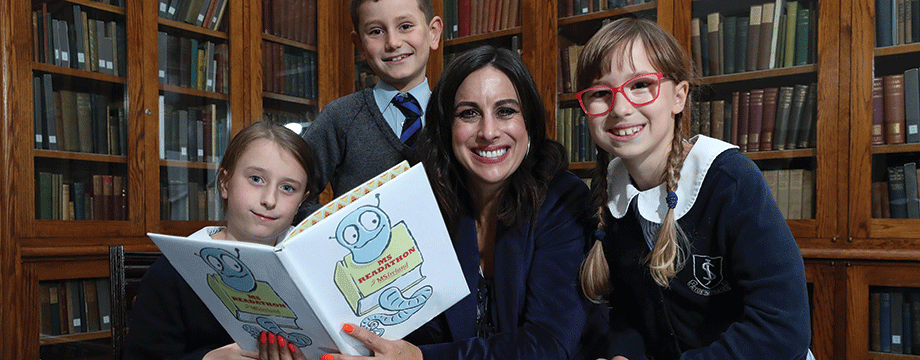
MS Readathon
The MS Readathon 2019 will take place from 11 October to 11 November. Funds raised by young readers around the country directly support vital services such as physiotherapy and exercise classes to help people with MS remain independent. Young readers can get their reading lists ready by checking the 2019 lists on www.msreadathon.ie featuring great books for kids from the new to the classics. For more information on MS and MS Ireland, visit www.ms-society.ie.
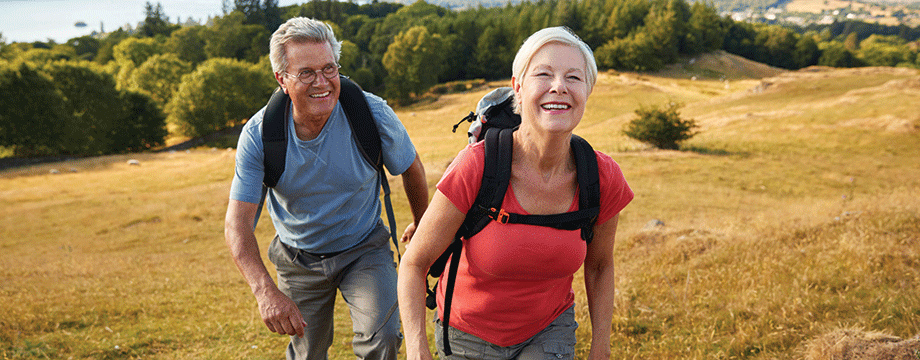
Optimism linked to longer life
Researchers from the National Center for Posttraumatic Stress Disorder of the Veterans Affairs Boston Healthcare System, Boston University School of Medicine, Harvard Medical School and other institutions in Boston, US looked at whether optimism was linked to living longer and published the results of their study in the peer-reviewed journal, PNAS. The study used information collected from male war veterans and female nurses taking part in two long-running studies in the USA. The participants were around 60 to 70 years old when they completed optimism questionnaires. People who had the highest optimism scores were revealed to have a lifespan of about 9% longer than those with the lowest scores. This research highlights the importance that mental health and wellbeing can have on physical health.
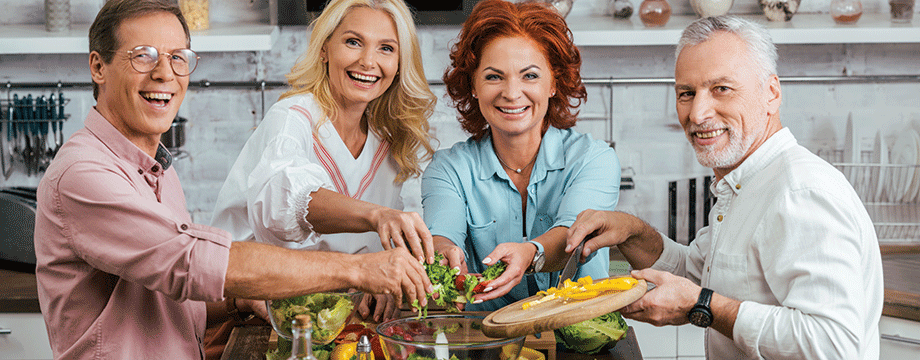
Vegetarian diets and how they affect heart health
Researchers from the University of Oxford funded by the UK Medical Research Council undertook a study into links between a vegetarian or vegan diet and the likelihood of developing heart disease. The results of the study were published in the peer-reviewed British Medical Journal. 48,188 volunteers were recruited from across the UK via GP surgeries and advertisements between 1993 and 2001. Vegetarians were targeted through adverts in health food stores, magazines and newsletters sent out by the Vegetarian Society and Vegan Society.
Volunteers filled in a questionnaire which included questions about their diet, lifestyle, health, education, age, height and weight, and where they lived. They were sent a follow-up questionnaire in 2010. During the 18-year study, it was found that people who said they followed a vegetarian or vegan diet were less likely to develop heart disease. Scientists concluded that the heart disease results may be partly linked to vegetarians having lower body mass index (BMI), lower blood pressure and lower cholesterol levels.
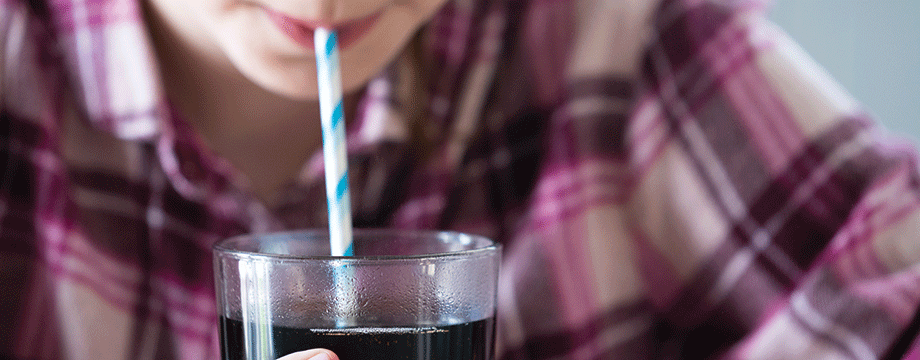
Soft drinks study reveals worrying links
Researchers from a number of institutions across Europe, led by the International Agency for Research on Cancer in France conducted research on the effects of soft drinks on health. The research results were published in the peer-reviewed journal JAMA Internal Medicine. The scientists asked more than 450,000 adults from 10 European countries about their consumption of soft drinks, including sugary and artificially-sweetened fizzy drinks as well as diluted cordial.
The researchers followed up the participants for an average of 16 years and found that people who drank two or more glasses of any type of soft drink a day were 17% more likely to have died during the study, compared to people who drank less than one soft drink a month. Swapping soft drinks with tap water is not only likely to be healthier but could save you money.

CBT can help insomnia sufferers
Researchers from Queen's University in Canada have reviewed the effects of cognitive behavioural therapy for insomnia (CBT-I) when delivered in primary care. They assessed 13 studies, involving more than 1,500 patients and published their paper in the British Journal of General Practice. CBT-I involves four to six sessions with a therapist teaching sleep restriction, managing worries about sleep and relaxation training. The results of the study suggest that this form of CBT can help people with insomnia get to sleep more quickly and spend less time lying awake.
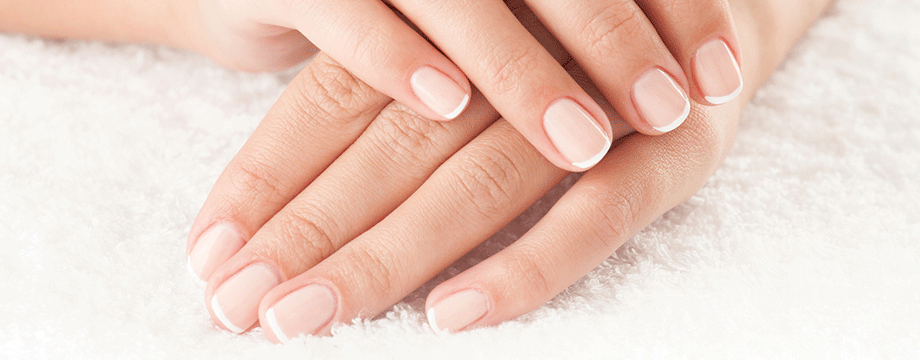
“What do white spots on my nails mean?”
Naturopath Elle Fox answers for CNM (College of Naturopathic Medicine)
The odd white spot on your nails is likely to have been caused by a small bump or knock to the nail or nail bed. However, if you have many of these spots, across the nails of both hands, you may find they resolve by increasing your zinc intake.
Lower zinc levels are associated with other skin complaints like cold sores, acne and warts as well as poor wound healing. If you suffer from any of these, you can boost your intake of zinc-rich foods by including organic, free-range meat and eggs, chickpeas, lentils and beans, oysters and all seeds, especially pumpkin and sesame seeds.
Read the full story here...
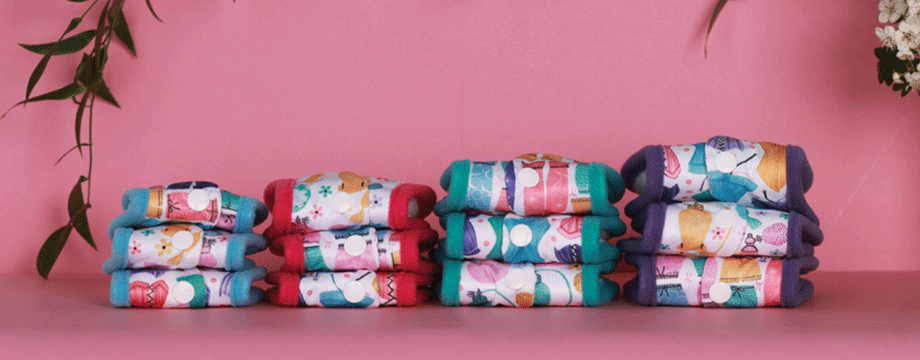
The new period
Did you know that an average woman uses 15,000 single use sanitary pads throughout her periods during her life?
Making the switch to reusable pads can dramatically reduce that number to 48, and you don’t have to buy that many at once. In research carried out for ‘Women’s voices for the Earth’ a number of toxins and chemicals were found in disposable sanitary wear, including styrene, chloromethane, chloroethane, chloroform and acetone. And the period cup is another development in greener periods. It has never been easier to cut down the amount of waste your period creates.
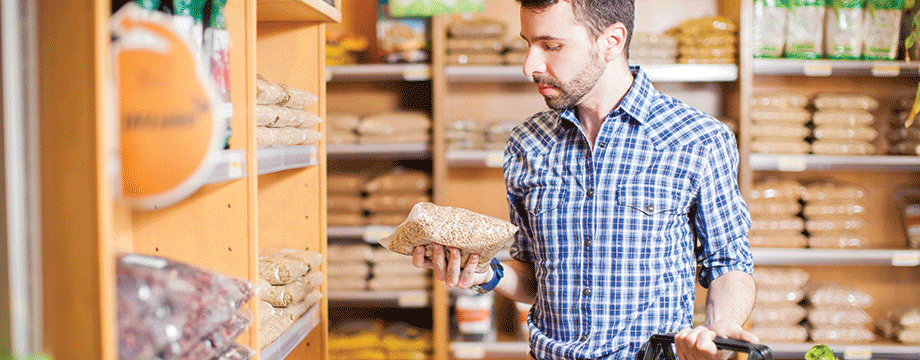
Retailers vote for their favourite products!
Independent health stores nationwide have been busy nominating and judging their favourite products of the year, in the prestigious Health Stores Ireland Product Awards 2019. The winners were announced as part of the Vitality Expo weekend of September 28-29 in Dublin and presented by a panel of retailer representatives.
The Irish Association of Health Stores created the awards in order to recognise products that are core to the health food trade. It’s a natural extension of the Health Stores Ireland Select project which sets important criteria for core health food sector product qualification. The awards use a completely independent nomination system with all the shortlisting and final voting carried out by retailers.
Read the full story here...
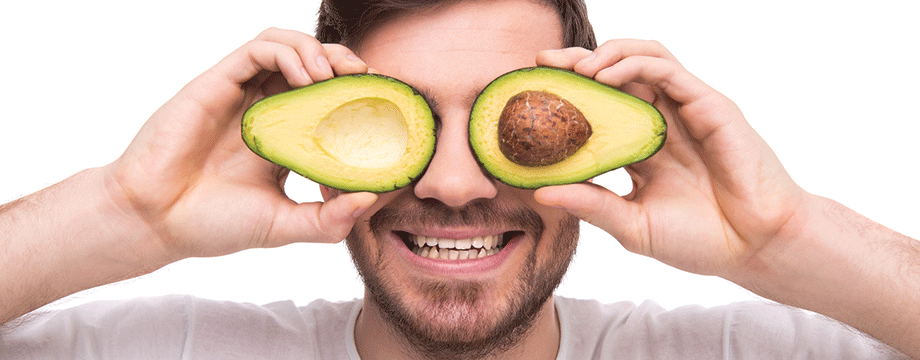
Plant-based diet associated with lower diabetes rates
Researchers from the Harvard T. H. Chan School of Public Health and Harvard Medical School in Boston have looked at the results of nine studies looking at the diets of 300,000 people and their risk of developing type 2 diabetes. The study found that a more plant-based diet was associated with a 23% reduction in the risk of developing type 2 diabetes. The researchers defined plant-based diets as any diet where a person ate more plant-based foods and less animal-based. The study was published in the Journal of the American Medical Association.
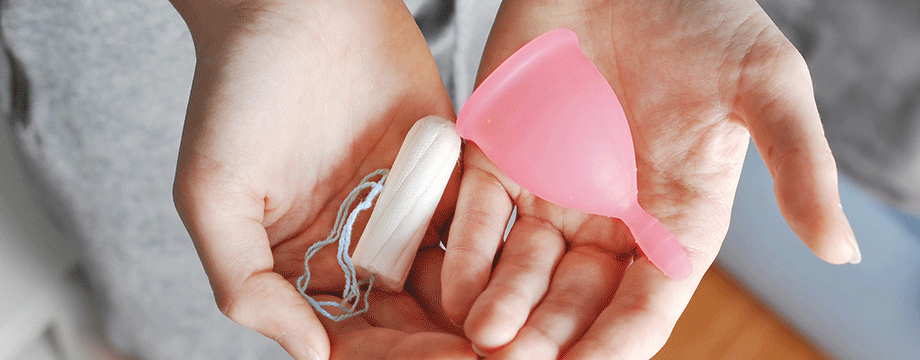
Menstrual cups as effective as pads and tampons
Menstrual cups are a relatively new invention for women’s periods – made from medical-grade silicone in the shape of a bell, they are inserted into the vagina where they collect blood. The cup is emptied, and the cup is washed and re-used. They last for up to 10 years and cost 5% of the amount spent on pads or 7% spent on tampons. Using a cup uses less than 7% of the plastic produced by tampons and pads.
Researchers at the Liverpool School of Tropical Medicine, University College London and the Edinburgh Royal Infirmary in the UK, the Tata Institute of Social Sciences, Bill and Melina Gates Foundation in India and the Kenya Medical Research Institute in Kenya looked at 43 studies into pads, tampons and cups and found that cups work just as well as the alternatives and 73% of women said they wanted to continue using them after the study was over.

Healthier lifestyles linked to lower dementia risk
Researchers from the University of Exeter Medical School, University of Oxford, University College London, The Alan Turing Institute, University of Michigan, University of South Australia and the University of Hamburg have analysed data collected over eight years from almost 200,000 adults aged 60 in a large UK cohort study looking into a link between healthy lifestyle and dementia.
The researchers found that of the participants who had a higher genetic risk of getting dementia, only about 11 in every 1,000 who followed healthier lifestyles with regular exercise, not smoking, drinking sensibly and eating a healthy diet developed dementia, compared with about 18 in every 1,000 who had unhealthy lifestyles. The study was published in the Journal of American Medical Association.
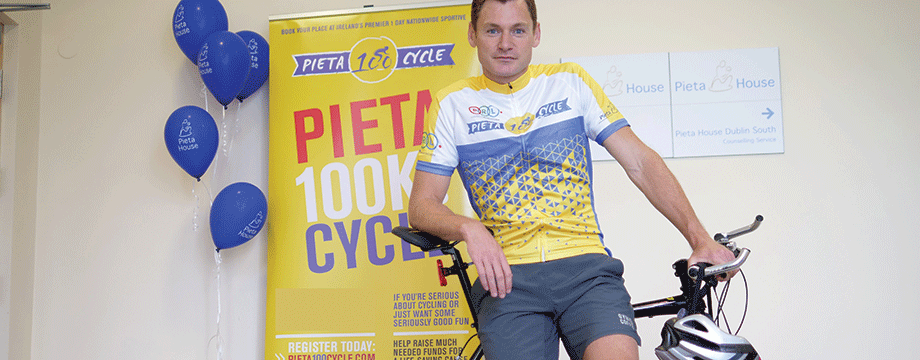
Cycle for Pieta House
David Gillick, Irish international track and field athlete, is supporting the Pieta 100 cycling challenge to raise awareness and vital funds for their suicide and self-harm prevention, intervention and bereavement services. Races of 50 and 100km take place on 29 September – Pieta 100 Cycle Limerick is from Mungret St Pauls GAA Club, and Pieta 100 Cork is from Scoil Mhairtin, Kilworth. For more info on how to register www.pieta100cycle.com
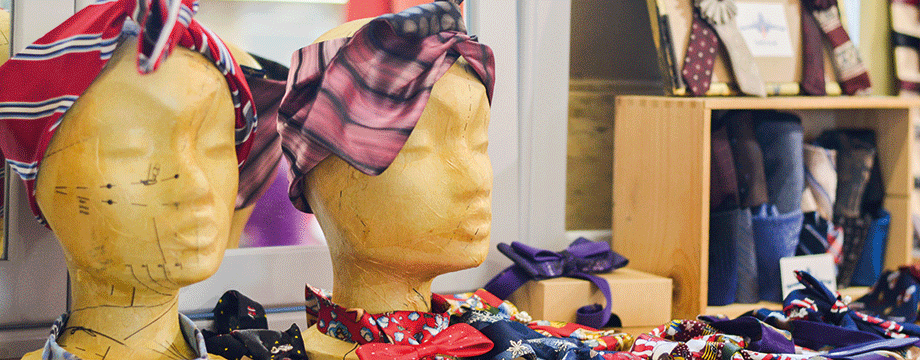
Rediscovery eco store
The Rediscovery Centre is The National Centre for the Circular Economy and is a creative space connecting people, ideas and resources. It was founded in 2004 and based in the repurposed Boiler House in Ballymun.
Work schemes in furniture, fashion, paints and cycling for local Ballymun people are held here as well as courses to teach participants how to creatively reuse and repair products. Products made are sold in the Eco Store open from 9am to 5pm Monday to Saturday, and the profit generated is reinvested to run the programmes.
For more info check out www.rediscoverycentre.ie/events

Natural breast health
By naturopath Elle Fox
Breast Cancer Ireland’s current statistics are that 1:9 women develops breast cancer. So what natural measures support breast health?
Fasting - weight regulation supports overall health. Intermittent fasting may help this.
Read the full story here...
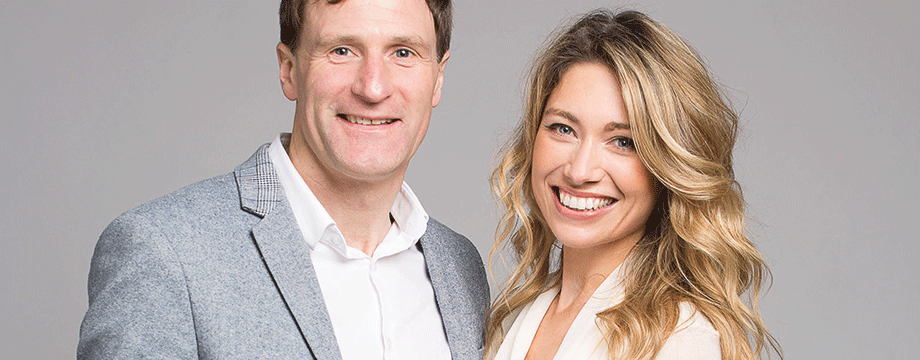
Soul Space The Experience
Soul Space The Experience will be taking place again on 15 September in ClareGalway Castle, with some of the biggest names in wellness, performance and professional sport. This immersive one-day event founded by Gerry and Miriam Hussey (pictured) delivers workshops held by leading minds in mental, physical, spiritual and human performance. These include former Rude Health cover star health and wellness coach Alison Canavan; Brent Pope, Sile Seoige and Dr Terry Lynch.
www.soulspace.ie

Women’s hockey gets a new sponsor
The Irish Women’s Hockey National Team gripped the nation last summer when they became the first Irish team to reach a world cup final and took home the silver medal in the Hockey World Cup in London.
The National Dairy Council (NDC) is now the official partner of Irish Women’s Hockey. The sponsorship will run until 2020 and will include nutritional support and sampling at key events and matches as well as a number of coaching opportunities with young female hockey players in schools throughout Ireland.
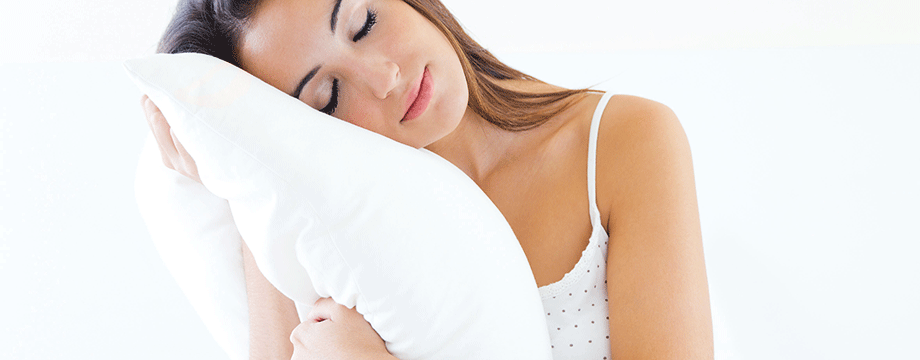
70% miss sleep
Half of employees in corporate Ireland are dissatisfied with their sleep and seven out of 10 report that they feel tired and fatigued at work several times a month according to a Vhi Health Insights report. The report titled ‘Restless Mind: the impact of poor sleep on employees’ showed that only 13% can claim to have a good night’s sleep nightly or almost nightly while 30% of respondents claim to have become sick with colds or flu, or physically ill due to poor sleep, at least several times a year.
The Vhi Health Insights Expert Group gave the following proactive tips to improve sleep.
- Set an alarm for going to bed, a reverse ‘snooze’ button.
- Stick to consistent sleep/wake times all week.
- Ensure the bedroom is dark, cool and devoid of distractions.
- Exclude ‘screens’ for the last few hours before bedtime.
- Try simple relaxation techniques if you wake in the night and avoid looking at your phone or clock.
Eating out unhealthy for children
New research by the University of Roehampton has found that up to 68% of children’s meals in restaurants across the UK and Ireland contain more total fat and saturated fat than recommended by health guidelines.
The study, published in the Journal of Nutrition Education and Behaviour, looked at children's menus from 20 popular chain restaurants and analysed over 39,000 meal combinations.
Meals for younger children (aged 2-5 years) contained on average 609 kcal, and for older children (6-12 years) 653 kcal compared with guidelines of 364 and 550 kcal, for younger and older children respectively. A total of 68% of younger children's and 55% of older children's meals contained more total fat than recommended, and more than four times the amount of saturated fat. Meal deals were more likely to exceed dietary guidelines than main meals alone.
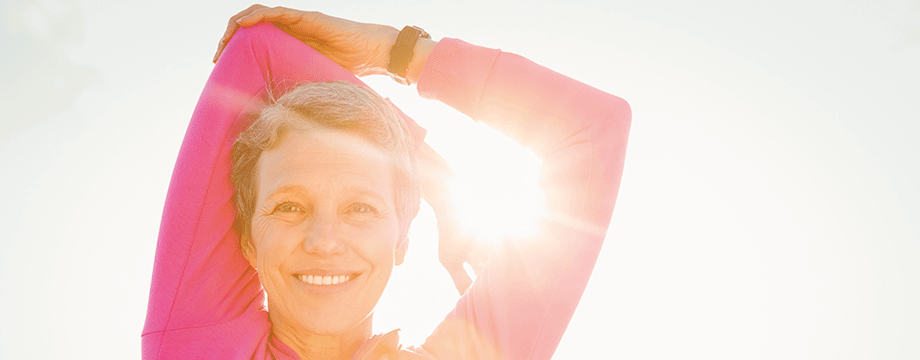
Inflammation – fitness friend or foe?
What’s the difference between useful and harmful inflammation, and can it even be beneficial if we are keeping fit?
Whether an ankle sprain or a muscle strain, our bodies are very good at letting us know we’ve pushed ourselves beyond our normal limits. Tears and bruises cause pain and swelling, signs we definitely need to rest the area. Such injuries are not to be ignored. However, when building fitness, we must push our bodies a little in order to see results and this also causes aches and pains. How do we know when to rest and when to continue?
Aches and pains that develop gradually and which are worst 24-72 hours after exercise are called DOMS (delayed-onset muscle soreness). This is a natural and helpful response to the stress exercise puts on our muscles and joints and, in fact, causes the body to rebuild stronger than before. Cycles of moderate but progressive exercise, followed by a few aches and a day off, is how fitness develops and this process shouldn’t be interrupted.
Read the full story here...

Mums need to look after their health too
Irish mothers are prioritising their children’s health over their own according to a new survey by pregnancy supplement Pregnacare.
The survey showed that 20% of mums say they didn’t realise it was important to increase your intake of vitamin B12 in a bid to help combat tiredness and fatigue. And, with 63% of respondents saying that tiredness was the most challenging aspect of their pregnancy, it is important that women get enough vitamin B12 during pregnancy.
93% said they took supplements when they were pregnant for the benefit of their baby and themselves. Once baby arrived, however, this figure reduced, with 65% saying they continued taking supplements after the birth of their baby, indicating that mum puts baby first as soon as they are born.

It’s time to be SunSmart
While we couldn’t be considered a sunny country, even on dull days UV levels could still be high enough to cause damage, so it’s wise to get into the habit of protecting our skin every day from April to September, whatever the weather. This is advice from the Irish Cancer Society and their SunSmart code.
1 Seek some shade
Good shade can give up to 75% protection from UV rays. Good shade needs to protect from direct and indirect UV rays. If you are someone who sits at a window all day or drives a lot in the course of your day, you need to use clothes and sunscreen to protect your skin.
Read the full story here...
VAT update
Following a campaign spearheaded by Health Stores Ireland, the official body representing health stores around the country and backed up with a 60,000 signature petition and demonstrations outside the Dail, a move to introduce a VAT rate of 23 per cent on food supplements has been delayed until 1 November. During this hiatus public consultation will be considered and a decision is expected later in the year. Rude Health magazine will keep you posted.
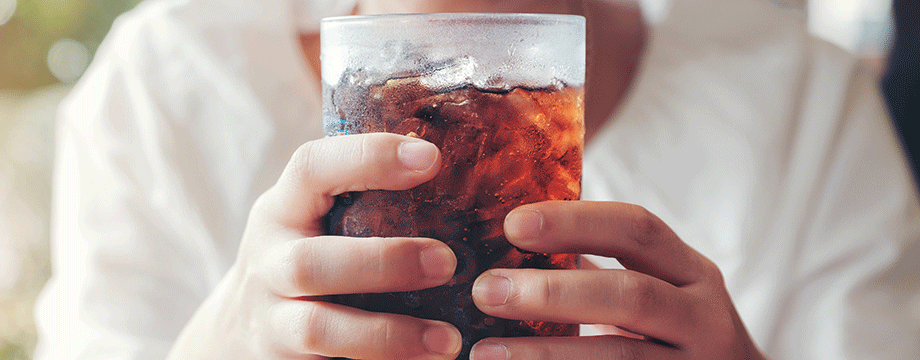
Sweetened drinks link to ill-health
Researchers from Harvard T.H. Chan School of Public Health, Huazhong University of Science and Technology in China and the University of Calgary in Canada has looked at the intake of sugary and sweetened drinks in two groups of health professionals in the US over a period of approximately 30 years.
Published in the peer-reviewed medical journal, Circulation, the study studied the results of ongoing cohort studies where nurses and other health professionals were asked to complete questionnaires every two years looking into their health status and consumption of sweetened drinks. The scientists concluded there was a 31% increased risk of death from cardiovascular diseases such as stroke and heart disease in those who consumed two or more sugary drinks per day after diet and lifestyle factors were taken into account.

What herbal remedies can I use to improve my energy?
Herbalist Leyla Moudden answers for College of Naturopathic Medicine
Herbs that positively affect energy levels are called adaptogens. Adaptogens increase vitality by reducing the energy drain that accompanies intense emotional, mental or physical exertion. Exertion of any form over a sustained period will deplete us by creating hormonal and sugar imbalances often presenting as fatigue, low mood, poor sleep or sugar cravings.
Read the full story here...
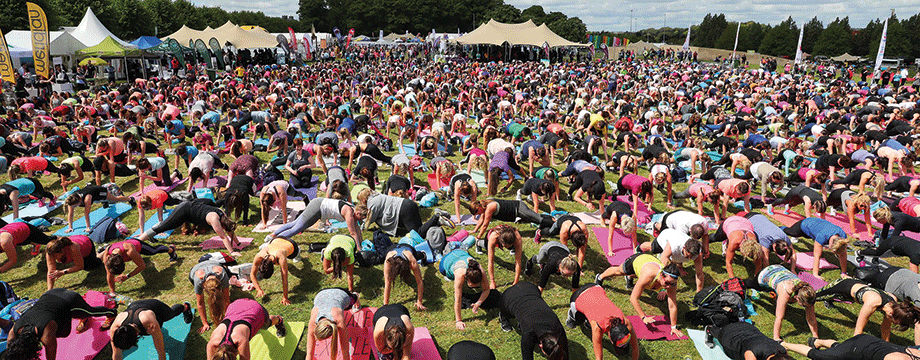
Get down to WellFest
WellFest in Royal Hospital Kilmainham in Dublin on the weekend of 11-12 May promises to be a great health related event again this year.
British broadcaster, best-selling author and founder of Happy Place Fearne Cotton will be a headline presenter with Joe Wicks – fitness expert, best-selling cookbook author and social media sensation who will host a workout on the KBC Main Stage, as well as taking part in a one-to-one chat with Fearne and hosting a book signing in the Dubray tent.
Read the full story here...
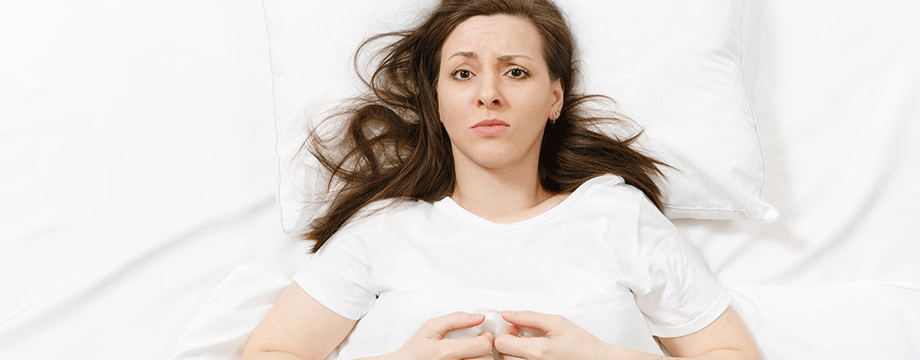
Parents are sleep deprived
Researchers from the German Institute for Economic Research, University of Warwick in the UK and West Virginia University in the US have been looking into how having children affects the amount of sleep you achieve. Annual interviews with 4,500 German parents who had had a child during the previous eight years of the study asked how many hours sleep they achieved. The study published in the peer-reviewed journal Sleep revealed that both men and women reported less hours of sleep and sleep of poorer quality followed the birth of their first child. Three months after the birth women slept an average of 62 minutes less, and men slept an average of 13 minutes less compared to pre-pregnancy levels.
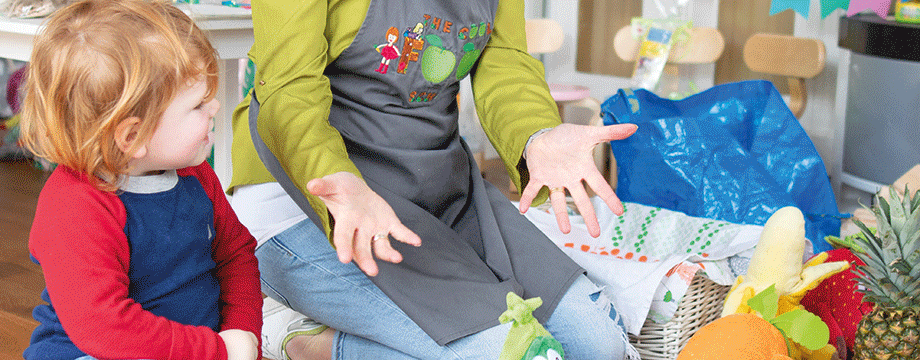
Time for healthier children’s parties
If you’ve ever dreaded the sugar crash following a children’s birthday party then it may be fine to consider a different option. The Cool Food School is a small company run by Deirdre Doyle that has a passion for bringing the joys of healthy eating to children. Deirdre has brought healthy eating workshops to over 2,000 children in 2018 through schools, events, libraries and more and offers individual children’s parties too. Suitable for children from age three and up, Deirdre will come to your house and make healthy smoothies together as well as having great veggie and fruit fun! Kiddies Food Kutters and Safety Food Peelers allow smallies to chop and peel the fruit and veggies by themselves, very safely. For more info check out www.thecoolfoodschool.ie

Perimenopause evenings
Catherine O' Keeffe, known as 'The Wellness Warrior' is a perimenopause coach. She will host a Peri-Menopause Presentation in Celbridge Manor Hotel on 28 March at 7.30pm. Designed for women in their early 40s and 50s, the evening will consist of an introduction to perimenopause and menopause, what to expect, how to ease symptoms and more importantly what you can do to thrive through this chapter in your life.
Catherine is also a blogger with My Second Spring, the number one menopause site globally with two million viewers, and she holds private consultations over Skype, Zoom and at her offices at Kilkenny and Dublin.
“Perimenopause is an inevitable journey for women and the more preparation and self-education you can do will ease this life transition and make it a more positive time in your life,” says Catherine. “I believe in a whole health approach to wellness and my goal is to empower women to experience vitality through good food, healthy lifestyle, exercise and nourishing self-care. I am on a mission to break the taboo that surrounds menopause.”
Catherine will also be hosting evenings Kilkenny on 9 May, Galway on 23 May and Waterford on 13 June. For more info check out www.wellnesswarrior.ie

Update on campaign against 23% VAT on food supplements
The threat to add 23% VAT to supplements has now been put off until November to allow the Government to legislate an acceptable alternative.
The move, which was to have come into force on 1st March, was unexpectedly deferred as a petition signed by 75,000 people was presented to the Irish Parliament and Revenue offices.
But the fight isn't over with campaigners determined to make sure the threat never materialises.
You can still sign the petition here: www.change.org/p/do-not-tax-health-food-supplements
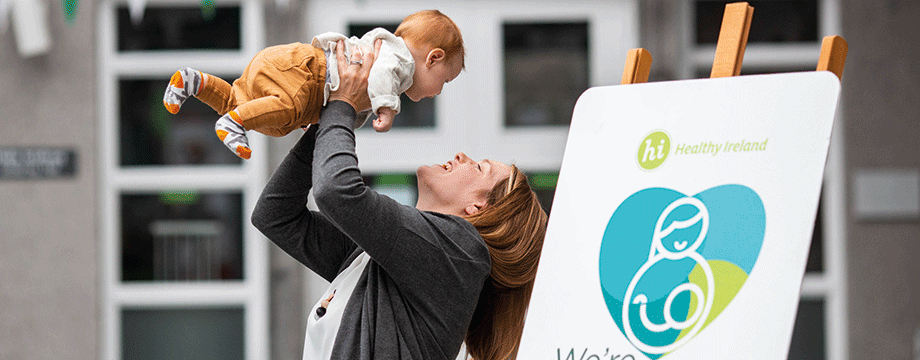
‘We’re Breastfeeding Friendly’ to go countrywide
Limerick has become Ireland’s ‘breastfeeding-friendly’ capital thanks to a hugely successful and ground-breaking campaign, the first of its kind in the country.
In just three months following Limerick City and County Council’s launch of the project with a number of partners including the HSE and Healthy Ireland, 'We’re Breastfeeding Friendly' has encouraged a total of 73 Limerick establishments, including hotels, restaurants, shops, museums, sports clubs, community organisations and churches, to sign up for the campaign.
The drive is aimed at improving the health and wellbeing of breastfeeding mothers, babies and their families by encouraging businesses, organisations and communities to become ‘Breastfeeding Friendly’. Mothers breastfeeding in the premises will never be asked to move to another area or stop breastfeeding. With the display of a ‘We’re Breastfeeding Friendly’ window sticker and/or poster other local authorities around the country will be rolling out ‘We’re Breastfeeding Friendly’ in their counties/cities.
Follow the campaign online with the hashtags #breastfeedingfriendlylimerick and #LKWorkingTogether.
What do you think of Rude Health?
We are delighted to announce the results of our third Rude Health magazine readers survey. Thanks again for responding to our annual survey, we really appreciate your feedback.
Some of the things you said about the magazine:
“It has interesting articles. It keeps me informed about the latest in supplements.”
“Very informative with unbiased opinions on products.”
“The articles are a good mix in which food to find the vitamins etc”
“It’s Irish and relevant.”
“It’s so informative and useful for learning more about health and wellbeing.”
“I like the interviews with celebrities as well as articles about ordinary people.”
“It’s very educational and very current.”
“I love all the helpful tips and advice given about a variety of health issues.”
“It covers everything – healthy eating, exercise, mindfulness, beauty and health problems.”
One lucky reader has won a fabulous hamper of lavera natural and organic beauty goodies worth over €160. The winner of this fabulous prize is Deirdre Ferry.

Spring into health
Get down to Evolv Health and Wellbeing in Enniscorthy, Co Wexford for their annual Spring into Health Week from 25 February to 2 March.
Evolv have up to 50% off offers on supplements, €10 facials with Dr Hauschka, Dead Sea Magik & Holos, €25 treatments which include massage, reiki, sinus treatment, kinesiology and others such as allergy testing, ear candling, nutritional therapy and hypnotherapy.
Make a day of it – have a free health consultation, learn about new products that could benefit your lifestyle and sample healthy delicious foods as well. Every day there will be something different. Don't miss out!

Is there a downside to 'detox'?
Nutritional therapist Emily Blake answers for CNM (College of Naturopathic Medicine).
Detox is about using nutrition and other natural therapies to stimulate our liver and other detoxification organs so they function optimally. It helps us to thrive – to have radiant skin and better energy, mood, hormone balance and memory for example. Supporting detoxification before trying to conceive may also protect future generations from toxin-related illnesses.
Read the full story here...
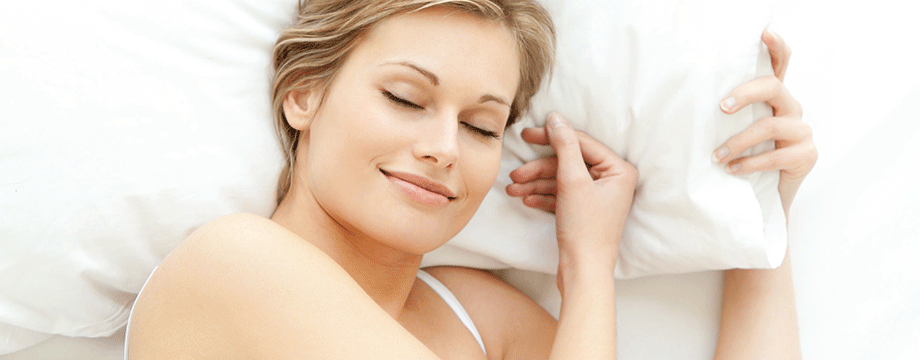
Welcome to a world of sleep
If you have difficulty falling or staying asleep, wake early and often and can’t manage to get seven hours sleep a night you might be suffering from insomnia. This can have some serious health consequences including concentration and memory difficulties as well as fatigue, so it’s important to address it if you can. Here are some tips for getting a better night’s sleep as we approach World Sleep Day on 15 march:
Keep a bedtime routine – go to bed and get up at the same time every day so that your routine will be less disrupted. And allow your body’s sleep rhythms to become established.
Make your bedroom restful – if your room is quiet, dark and not overheated it will be easier for your body and brain to realise it is time to wind down.
Avoid screens – remove TVs, laptops and mobile phones from your bedroom. The light these emit can disrupt your sleep patterns.
Wind down – by taking a cup of herbal tea, a warm bath, listening to a relaxation CD or relaxing music, reading a book.
Avoid alcohol – it may make you feel sleepy, but will ultimately mean you wake up during the night.
Avoid napping – daytime nappers often find it leads to night time awakenings. A good night’s sleep should mean you don’t need a daytime nap.
Avoid caffeine – have a cut-off time after which you don’t drink caffeinated tea or coffee because it can keep you awake.
Take magnesium – it can help the body to relax into sleep.
Write tomorrow’s list – it may help to order your mind and organise your thoughts so that you can relax.
worldsleepday.org
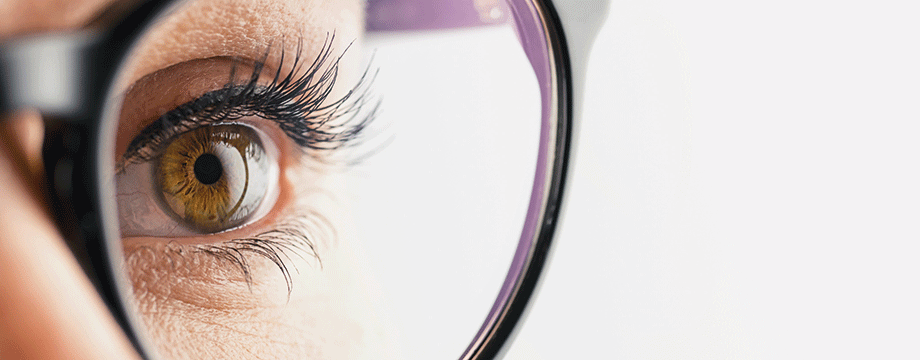
Are you looking after your eyes?
Optician Vision Express recently commissioned a survey of 1,000 people across Ireland to find out if we take care of our eyesight as we age. The survey revealed that 81% noticed a deterioration in their eyesight when they reached an average age of 42. However, 60% of those over 40, and 52% of those over 60, haven’t had an eye test in over a year, and men are less likely than women to have a regular eye test.
Almost 60% of the survey respondents said they struggle when reading, and almost half (49%) said they have difficultly seeing clearly when on the computer or watching TV.
Glaucoma is an eye-related disease that mostly affects those over 60. It is symptomless at first and a regular eye test is the only way to detect it. Over 90% of individuals who are diagnosed early will retain some useful sight, but late diagnosis can result in total blindness.

How screen time affects young children
A study by researchers from the University of Calgary and University of Waterloo in Canada and published in medical journal JAMA Pediatrics has looked at the correlation between the amount of screen time small children have with their rate of development. The researchers used data from an ongoing cohort study of 2000 mothers and children in Canada.
They found that one in four children showed signs of developmental delay and that increased screen time was linked to poorer test scores. They concluded that young children benefit better from a balance in their lives, including reading, interaction with others, playing and physical activity, rather than more screen time.
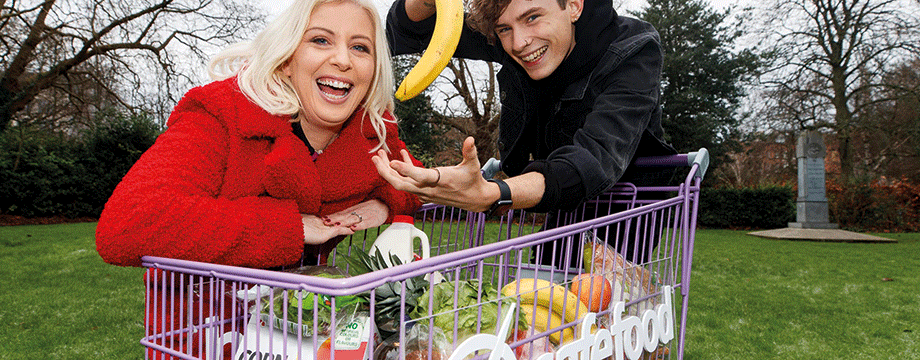
8 ways to transform your trolley from safefood
1 Plan your meals before you go – take five minutes to check what you have in the cupboards, fridge and freezer before you go shopping. Planning what you need for your meals for the next week can save both time and money.
2 Make a shopping list – to help you get what you really need and avoid those impulse buys, especially for unhealthy snacks and treats that can be high in sugar, fat and salt.
3 Be aware of food promotions – while offers for healthy foods like fruit and veg are fantastic, the majority of foods on promotion in supermarkets are unhealthy. You can avoid those by skipping certain aisles, being aware of the end-of-aisle shelfs as ‘watch out’ areas and passing up on promotional offers unless they fit in with your plans.
4 Pester power is an issue – shop alone or with a friend if you can. We’ve all been there, or seen someone else under pressure from children looking for treats while shopping. If you can get some time on your own – take it.
5 Don’t shop when you are hungry – your hunger will be fighting all your good intentions to stick with your healthy choices. If you do have to shop on an empty stomach stick to the list and do your best not to get distracted.
6 Try to avoid shopping when tired or stressed – we all tend to reach for comfort foods to help get us through. Pick a time and a day to shop when you know you’ll be under less pressure.
7 Look at food labels – to help you understand what’s healthy and what’s not. Gradually build up your knowledge of food labelling so you can make sense of it, at a glance.
8 Look for a good balance – make sure you include plenty of fruit and veg, wholegrain and brown carbs over white, and especially watch out for those treats. A quick scan over your trolley before you hit the checkout will help you get a sense of this.
Stop huge VAT increase in vital food supplements
The decision to implement 23% VAT on food supplements was taken by the Minister for Finance Paschal Donohoe in the run up to Budget 2018. Health Stores Ireland has launched a campaign to prevent the introduction of 23% VAT on supplements including vitamins, minerals, probiotics, omega-3 and -6 fatty acids and folic acid. This tax is hugely damaging to the health of many vulnerable people who depend on these supplements to maintain a good level of health and standard of living.
You can sign the petition here www.change.org/p/do-not-tax-health-food-supplements
Even if this is implemented the campaigning will continue past 1 March, so please add your name to the petition to make your voices heard.
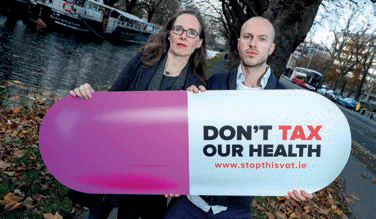
Stop huge VAT increase in vital food supplements
The decision to implement 23% VAT on food supplements was taken by the Minister for Finance Paschal Donohoe in the run up to Budget 2018. This decision was taken without consultations with consumers or the food supplement industry, and against the recommendations of the Revenue Commissioners, who wanted to see a reduced rate introduced. Health Stores Ireland, the official organisation for Ireland’s health stores, launched a campaign to prevent the introduction of 23% VAT on supplements including vitamins, minerals, probiotics, omega-3 and -6 fatty acids and folic acid. This tax is hugely damaging to the health of many vulnerable people who depend on these supplements to maintain a good level of health and standard of living.
Health Stores Ireland Chairperson Martha Brennan said; “Raising the cost of vital food supplements by 23% in one stroke will discourage many people from looking after their health. All of our member stores have been inundated with people coming in and telling staff how they will not be able to afford the vitamins, minerals and probiotics they need to stay healthy.”
Health Stores Ireland are mobilising their customers in a grassroots campaign across the nation.
Sign the petition here: www.change.org/p/do-not-tax-health-food-supplements
Is there a natural way to whiten my teeth?
Naturopath Gemma Hurditch answers for College of Naturopathic Medicine
Whitening your teeth naturally is unlikely to produce the same dramatic results as a bleaching kit from the dentist, but if you want to avoid the toxins there’s a number of natural things you can do to encourage a brighter smile. There are two basic issues – yellowing from plaque build-up; and staining, such as from foods or tobacco.
Drinking green tea can reduce plaque and whiten teeth, so it’s a great beverage between meals. Oil pulling may also improve teeth whiteness; coconut or sesame oil both work well. Take one tablespoon of oil in your mouth and ‘pull’ and ‘push’ it through your teeth and around your mouth, spitting it out after about 10 minutes. Oil pulling is recommended first thing in the morning, before eating or drinking.
Read the full story here...

Rude Health fitness expert’s new book
Unlocking My Mind; 50 keys to self empowerment by fitness expert Alan Williams is now available.
Health and wellness expert, entrepreneur, speaker and coach Alan reveals how our dreams and ambitions have been replaced by monotonous daily habits, self-limiting beliefs and an acceptance of mediocrity.
Unlocking My Mind will get you believing, and achieving again so that you can work towards achieving your goals.
Practical, honest advice. Buy online from alanwilliamscoaching.com
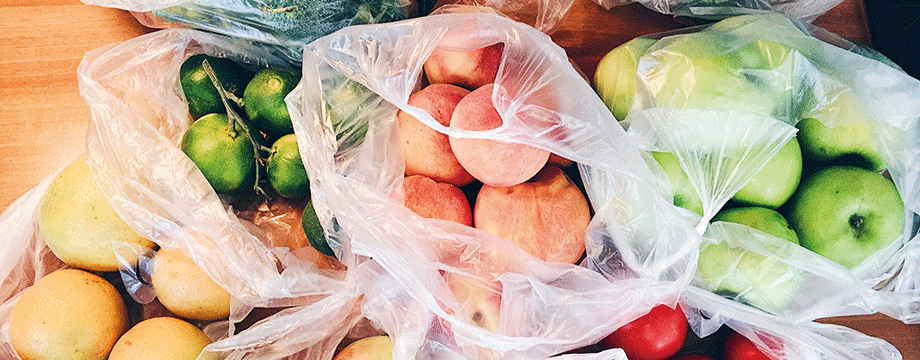
Less packaging please
New research from Nielsen shows that Irish people believe it’s the responsibility of retailers to reduce the amount of packaging used on grocery products. The new survey reveals almost half of Irish shoppers either actively seek products with minimal packaging (48%), actively seek products in recyclable packaging (46%) or actively seek products with no packaging (46%).
This is in light of the European Commission Plastic Strategy proposal for new legislation to ensure all plastic packaging on the European market can be reused and recycled by 2030. The research also found that almost 90% of respondents claim to actively recycle all the plastic packaging they can, with 78% saying they worry about the effect their grocery packaging has on the environment. The vast majority of Irish shoppers also believe that responsibility lies with the retailers. 88% of respondents think there is too much plastic packaging being used unnecessarily, and 91% believe retailers should do more to reduce the amount of packaging used on grocery products.
Promisingly, plastic bag usage among retailers has decreased dramatically in Ireland since the introduction of the ‘plastic bag levy’, which came into effect in 2002. In addition to this, many of Ireland’s retailers have announced plans to significantly reduce plastic packaging within the next five to seven years, with some initiatives to take effect immediately.

Watch your eyes
Healthy Eyes Awareness Week runs the week of 14-20 January and promotes the importance of eye health and the need for regular eye exams. Top tips include:
Have regular eye tests – you should have an eye test every two years to identify any early indications of diseases such as cataract, glaucoma and age-related macular degeneration, some of which are treatable if caught early. An eye test can also identify other problems such as diabetes and high blood pressure.
Don’t smoke – your eyes need oxygen to survive and smoking reduces the amount of oxygen in your bloodstream. This causes oxidative stress and damages the retina and is a risk factor for developing age-related macular degeneration.
Improve your diet – some foods such as fruits and vegetables including mango, squash, broccoli, green beans, and spinach contain nutrients called lutein or zeaxanthin which can help protect against certain eye conditions; like cataracts and age-related macular degeneration.
Wear sunglasses – ultraviolet (UV) light from the sun’s rays can cause damage to your eyes. Wear sunglasses with a UV factor rating and block 100 per cent of UV rays. Wraparound glasses will block more light and offer better protection.
Clean your contact lenses – never use water, or saliva to clean lesses. If you don’t stick to a strict cleansing routine your eyes can become infected and you risk corneal disease. Always use specially prepared lens cleaning liquids.
Safety glasses – protect your eyes against chemicals, garden debris, or nails and splinters by wearing safety goggles.
Take screen breaks – take frequent breaks from your screen to avoid headaches, eyestrain, soreness and double vision. use the 20/20/20 rule - look at something 20 feet away for 20 seconds every 20 minutes to reduce eye strain
www.fightingblindness.ie/events/healthy-eyes-awareness-week
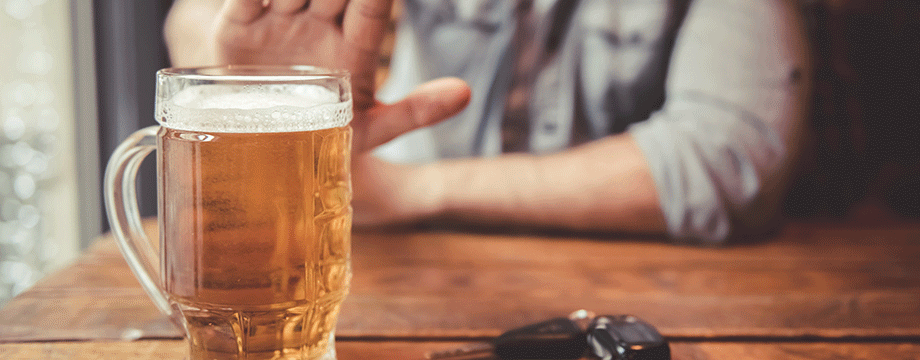
Cutting down on booze this New Year?
Set yourself a goal: this could be stopping altogether or aiming to only have alcohol at the weekend. Decide on a start date and stick to it.
Eat something: food can slow down the rate that alcohol is absorbed into your system. Before going out eat a healthy meal with a high carbohydrate content to help prepare your stomach.
Downsize on supersize glasses: opt for smaller measures. Choose a small (125ml) glass rather than a large (250ml) one for wine. If you're drinking at home, buy smaller glasses for the house.
Stop the top-ups: stopping topping up your glass before it's empty can help you to keep track of how much you've had.
Weave in glasses of water: alcohol dehydrates you so it's important to drink water before you begin drinking and in between alcoholic drinks. Alternating alcoholic drinks with water or soft drinks will also help reduce headaches and hangover symptoms the next day.
Keep a drink diary: helps you to work out how much you're drinking.
Understand your triggers: work out which situations you know will encourage you to drink and then look for alternatives.
Tips from Axa PPP Healthcare
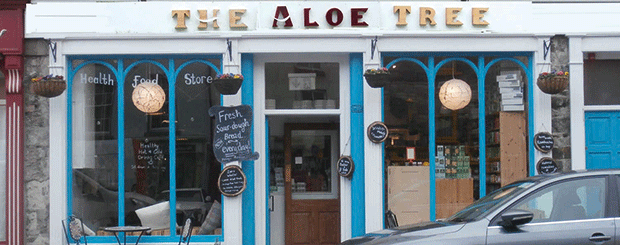
Winter tasting at the Aloe Tree
The Aloe Tree in Ennistymon, Co Clare is holding a winter tasting evening on Thursday November 22 and all are welcome. Every year the store is packed with Irish suppliers and interested customers.
“The evening is always received really well,” says manager Tessa O'Connor “It’s a chance for us to say thank you with a glass of wine to our customers and we usually have a generous raffle and some voting stations for tasting new products for fun! Our town of Ennistymon is just so supportive of small and local businesses that it’s always a lovely opportunity for producers to meet the customers that support them. We are abundant with talented local producers in our area which we really appreciate. The most popular stand is always the chocolate stand, with Daragh from Magic Mayan stealing the show. El Greco olive oil is always my personal favourite. This year he was nominated for best product at Vitality Expo. Any excuse for a party - we always finish up way too late and stay chatting for hours.”
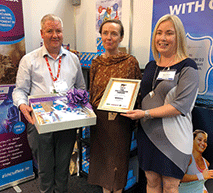
Simply the best
Rude Health magazine was proud to be associated with the Pat Curran Award for Excellence in Customer Service this year. We can now announce the winners.
Angie Myles from Golden Health Store in Longford was voted the overall store assistant winner – she received a €500 cash prize and her store received €500 to donate to a charity of their choice. As one of Angie’s customers said: “She has a formidable knowledge of herbs, supplements and natural products and is always so helpful.”
Read the full story here...
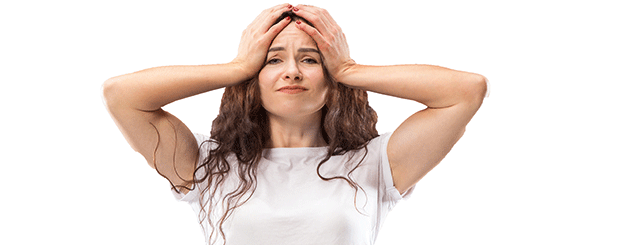
Can diet affect my panic attacks?
Naturopath Gemma Hurditch answers for College of Naturopathic Medicine
Although usually associated with an increased stress load, panic attacks can also occur when energy-related chemicals in the blood are imbalanced (elevated lactic acid to pyruvate ratio). If your stress is ‘normal’ I would suggest you try these natural strategies to help your body cope with stress:
Read the full story here...
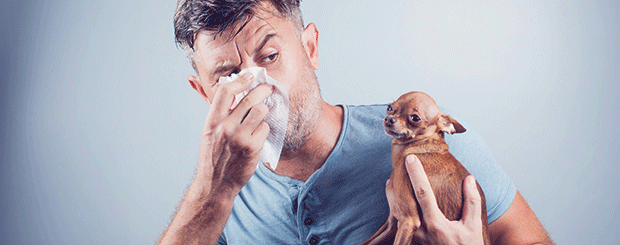
I’m allergic to my pet
It’s officially autumn, so why do you still feel like you have hay fever?
According to airborne allergens expert Max Wiseberg it may be down to more exposure to your pet. “The most common form of pet allergy is an allergy to the tiny particles of dead skin and saliva which are shed by an animal and subsequently become airborne. These microscopic particles are known as ‘dander’. Cats tend to cause more allergic reactions than dogs because the particles they shed are smaller, become airborne more easily and stay airborne for longer. Airborne particles can easily fly up the nose, triggering sore, itchy, watery, red eyes; sneezing and wheezing; and cold like symptoms such as a runny nose and sinus pain.”
Max’s tips for avoiding the allergens and lessen your symptoms include:
- Use an organic, drug-free allergen barrier balm which can be applied to the nostrils and bones of the eyes in the morning and throughout the day, to trap pet allergens before they enter the body.
- Saline nasal rinses, antihistamines, steroid nasal sprays and eye drops, available over the counter, can also be useful.
- Keep pets off sofas and beds, and out of the bedroom altogether if possible.
- Consider using an air filter/purifier with a HEPA (High Efficiency Particle Arresting) filter to capture the pet allergen particles and cool and circulate the air.
- Damp dust surfaces regularly.
- Vacuum regularly. It may also be beneficial to install allergy-friendly flooring, such as wood rather than carpets.
- Use allergy-friendly mattress covers and bedding.
- Keep cuddly toys and blankets in a cupboard to prevent the build up of allergens on them.
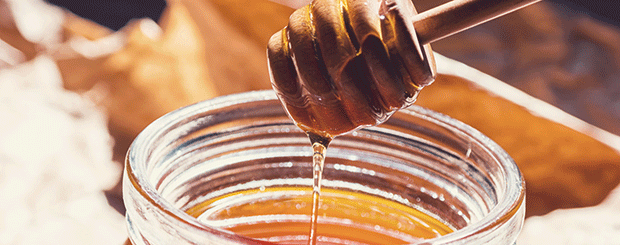
Irish honey as good as Manuka?
A research team led by PhD student Saorla Kavanagh (School of Chemical Sciences and DCU Water Institute) and supervised by senior academics Dr Blánaid White (School of Chemical Sciences, DCU) and Prof Jane Stout (School of Natural Sciences, Trinity College Dublin) has found that Irish heather honey is quite literally buzzing with health benefits. The findings showed that there was a similar overall presence of powerful antioxidants called phenolic compounds in Irish heather honey as in Manuka honey. These antioxidant compounds help to prevent damage occurring in the cells of the body and are important for health and well-being. The study details were published in the journal Food Chemistry.
The study was the first ever comparison of Irish single-origin honeys; heather, ivy and oilseed rape and multi-floral honeys. 131 Irish honey samples were collected directly from beekeepers between 2013-2015 from 78 locations across Ireland. The majority (124) were multi-floral honeys (55 from urban, 69 from rural locations); three were heather honeys; two were ivy honeys and two were oilseed rape honeys.
Research focused on honey produced in Ireland and the majority of samples came from small private producers. Researchers also found that multi-floral honeys produced by urban bees had a greater level of antioxidant phenolic compounds than their rural counterparts – a finding possibly attributed to the flower diversity and abundance surrounding hives.
Dr Blánaid White, Dublin City University said: “Being able to quantify that Irish honeys have a high phenolic content, and the content in Irish heather honey is comparable to Manuka honey, is very exciting for us. Our research shows that Irish honey is a high-quality product. Interest in beekeeping and honey production is growing in Ireland, and we are delighted to be able to support it.”
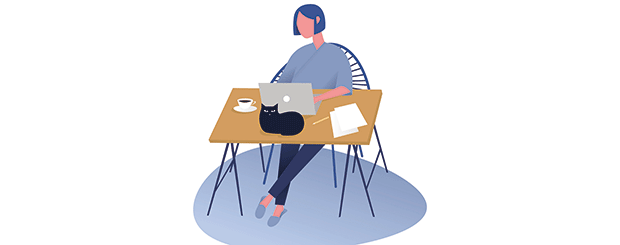
Chairs Can Kill Irish health campaign
People in Ireland spend about half their waking hours sitting down and increase their risk of heart disease and stroke by doing so. The Irish Heart Foundation has published research conducted by Ipsos MRBI showing that Irish people spend on average 7.3 hours every day sitting down. The research is published as the Irish Heart Foundation launches a new campaign called Chairs Can Kill to raise awareness of the risks to people’s heart health. People who sit down for long periods of time are more than twice as likely to develop heart disease and stroke.
As part of the campaign, the Irish Heart Foundation has developed a simple online sitting calculator which is available at www.chairscankill.ie. The calculator allows you to see exactly how long you spend sitting down on an average day and gives individualised feedback and tips on how to reduce the time you spend seated.
Janis Morrissey, Head of Health Promotion, Information and Training with the Irish Heart Foundation, said, “We have developed a suite of resources for workplaces which identify the health risks of sitting down and offer advice to reduce sitting time in the workplace. We are calling on workplaces across Ireland to get involved in the campaign and support their employees to sit less and be healthier.”
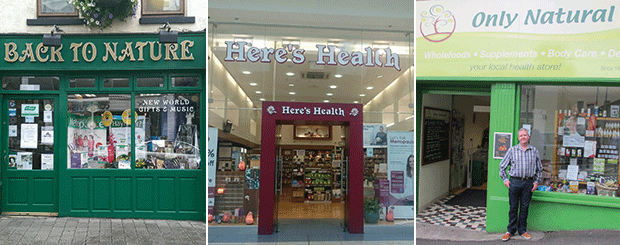
Independent health stores triumph
In the Retail Excellence Awards for the top 100 stores in Ireland – in association with AIB Merchant Services – three stores who are members of Health Stores Ireland triumphed:
- Back to Nature in Cavan
- Only Natural in Wexford
- Here’s Health in Douglas Shopping Centre, Cork
All of these stores were judged by professional mystery shoppers and had to meet strict criteria. With over 500 stores entered into the competition the standard of entry was exceptional. Only stores who achieved a minimum mystery shop score of 90% made it into the top 100. Congratulations to the staff and managers of these three top stores!
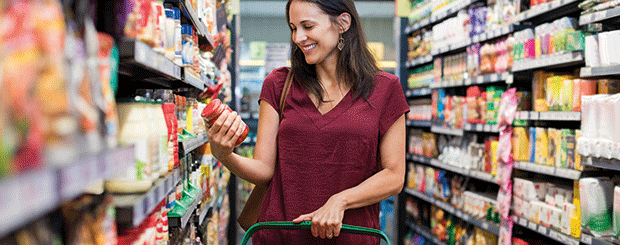
Retailers vote for their favourite products!
Independent health stores nationwide have been busy nominating and judging their favourite products of the year. The winners were announced as part of the Vitality Expo weekend of September 8-9 in Dublin.
The Irish Association of Health Stores created the awards in order to recognise products that are core to the health food trade. It’s a natural extension of the Health Stores Ireland Select project which sets important criteria for core health food sector product qualification. The awards use a completely independent nomination system with all the shortlisting and final voting carried out by retailers.
Read the full story here...

I’m cutting down on sugar in my cooking. What’s the best sugar alternative?
Naturopath Gemma Hurditch answers for College of Naturopathic Medicine
Reducing our sugar intake is good for us for many reasons; it reduces our risk of being overweight or obese, of developing diabetes (and diabetes-related conditions), of developing cancer, tooth decay and even heart disease.
Sugar is addictive. Blood sugar dips and troughs due to high sugar intake can be responsible for mood problems. Whilst not adding sugar to our cooking is preferable, beware many substitutes. Artificial sweeteners are non-natural chemicals and are to be avoided.
Read the full story here...
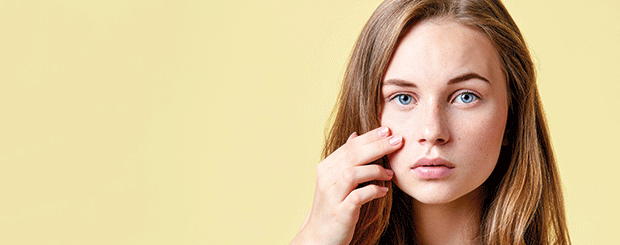
Teen girls lacking in iodine
A recent study of over 900 teenage girls by Safe Food entitled “Iodine Status on the island of Ireland” has found that 43% of Irish teenage girls aged 14-15 have some degree of iodine deficiency.
Iodine is a unique nutrient found naturally in dairy products, seaweed and white fish. Iodine is an important mineral which is needed to make the thyroid hormones. These hormones are needed for many body processes including growth, regulating our metabolism and for the development of a baby’s brain during pregnancy and early life. The recommended dietary allowance for adults in Ireland is 150 micrograms of iodine per day. Iodine is found in a range of foods, the richest sources being dairy products and white fish.
Milk and dairy products have the highest rates of iodine and are the main sources for most people. Most milk alternatives are not fortified with iodine. Women need more iodine in their daily diet during pregnancy and when breastfeeding.
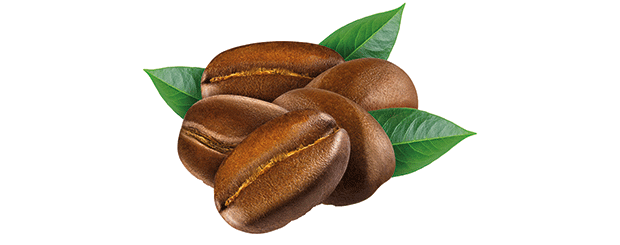
Coffee drinking linked to reduced risk of death?
A study led by a team of researchers from the National Cancer Institute and National Institutes of Health in Maryland, US and published in JAMA Internal Medicine has looked into the link between drinking coffee and a reduced risk of death. Researchers used a database of around 500,000 UK adults, the UK Biobank study, which includes people aged 40-69 who filled out a comprehensive questionnaire, had physical examinations and provided biological samples over a period of 10 years.
Researchers obtained primary cause of death from the NHS Information Centre and from the NHS Central Register, Scotland and categorised these into death caused by cancer, cardiovascular disease or respiratory disease. Researchers found that coffee drinking was associated with a reduced risk of dying, although other dietary, health and lifestyle factors were self-reported so their accuracy could be disputed.

Take control of your stress levels
Sometimes the stress of modern life can get the better of us and it’s hard to keep our cool, sleep and cope with the numerous demands on our time. Try these tips for helping to alleviate stress.
Exercise – helps to produce feelgood hormones and neurotransmitters such as endorphins which are associated with elevated mood.
Herbal remedies – some gentle herbs such as avena sativa and passiflora may help. Both of these have been traditionally used for supporting those prone to worry or mild stress.
Avoid alcohol – it has a depressant effect which will make you feel worse in the long run. If you can’t avoid alcohol completely, try to reduce the amount you drink.
Do things you enjoy – giving yourself a break from work and worries will help to lift your mood. Taking time to slow down and simply ‘breathe’, and getting outside, can go a long way to making you feel better.
Mix with other people – especially positive people, as this will help you keep in touch with reality.
Sort your sleep – even partial sleep deprivation has a significant effect on mood. Try a tincture containing the combination of fresh valerian root and hops.
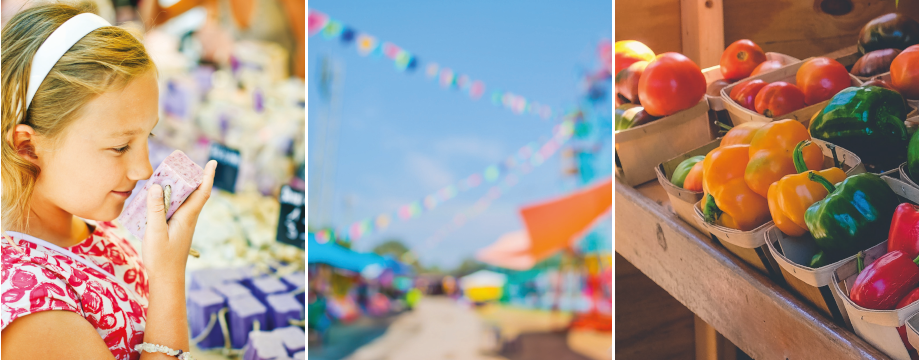
New GO! Organic Festival taking place in London this September
This September will see London's Battersea Park transformed into a one-of-a-kind, vibrant weekend celebration of the very best in organic, sustainable and healthy living. Taking place from 8 to 9 September, GO! Organic is set to feature a raft of big-name and up and coming bands, celebrities, talks, demos in the Organic Kitchen, circus entertainment and much more.
Early bird tickets can be purchased via the website www.goorganicfestival.co.uk. Plus, readers of Rude Health Magazine are entitled to an exclusive 20% discount on tickets to GO! Organic Festival. Simply quote RUDE20 when booking to claim.
Find out more here...
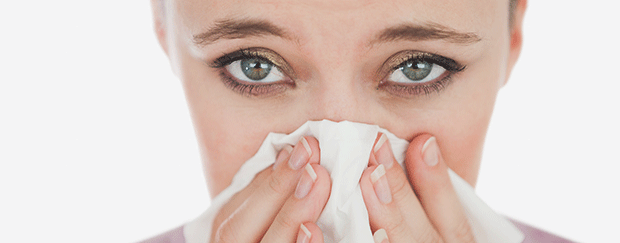
Hay fever survival tips
Summer can be tough for people who suffer from hay fever. Here are some tips for how to stop pollen from from getting into your body:
- When indoors, close windows to stop pollen getting through.
- When going outside, tie your hair up and wear a hat to prevent pollen particles being caught in your hair.
- Wear wraparound sunglasses to prevent pollen particles coming in contact with your eyes.
- Use an organic, drug-free allergen barrier balm on your nostrils to trap pollen particles before they enter the body.
- Dry clothes indoors rather than on a clothes line outside.
- Vacuum the house regularly, especially beds and fabrics to remove pollen particles.
- If you own a pet ensure that it is well groomed and shampooed to remove pet allergens and pollen particles.
- Shower at night before sleeping to remove pollen particles from your hair and body.
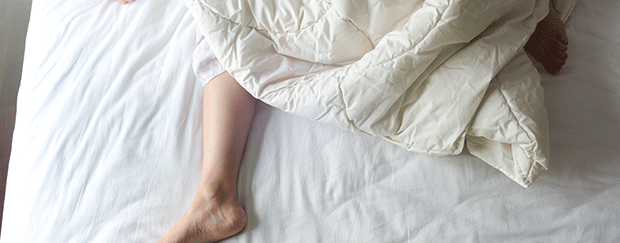
Summer sleeping
Summer is here and we are enjoying the longer warmer days, but the extra light and heat can make it hard for us to get enough sleep. Health psychologist, Professor Mark Cropley from the University of Surrey says “A lack of sleep can actually increase the risk of obesity, heart disease and diabetes, and raises the risk of an early death by 12%.”
Professor Cropley’s tips to a better summer night’s sleep include:
1 Don’t be afraid of the dark. “There’s nothing worse than being rudely awoken by the early morning sun, so try blackout blinds or an eye mask. If you like to read in bed, buy a dimmer light. You can also purchase alarm clocks with handy light settings, which dim slowly to help you drift off, and then brighten to wake you gradually in the morning.”
2 Hit the off switch. “The biggest no-no is mobile phones and computer screens; these LED displays glow with blue light, which suppresses melatonin even more.”
3 Don’t get too hot in the bedroom. “The ideal temperature to sleep is around 17°C so if daytime temperatures are way over this keep the bedroom curtains or blinds drawn closed during the day to minimise the rise in temperature. Always try to keep the bedroom door open too as it allows the air to circulate.”
4 Play it cool! “Wear cotton pyjamas/nighties and thin pure cotton sheets for your bed. Soft, breathable and high quality cotton is the ideal bedding material to sleep between to stay cool.”
5 Get back to nature. “The herb Valerian (Valeriana officinalis L.) is known for its positive effect on sleep structure, helping achieve deeper levels of slow wave sleep.”
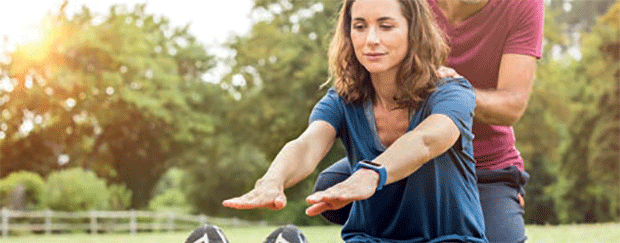
Exercise linked to healthy arteries
A study carried out by researchers from the University of Texas, the John Peter Smith Health Network, and the TCU and UNTHSC School of Medicine and published in the peer-reviewed Journal of Physiology has revealed that people who exercised the most were more likely to have healthier arteries.
The researchers recruited 102 people who were already involved in the Cooper Centre Longitudinal Study – they measured body mass index (BMI), medical history, asked questions about smoking habits, and assessed for various health conditions. They then examined the health of the carotid arteries, which supply the brain. The group that were sedentary had stiffer arteries than people categorised as casual, committed and competitive exercisers.
People who did 6 or 7 exercise sessions per week had the healthiest arteries. Those who exercised two or more times per week received better results than those who did not exercise at all.

How do I recover from a nasty bout of food poisoning?
Naturopath Gemma Hurditch answers for College of Naturopathic Medicine
Good health starts in the gut so it’s important to get back on track quickly.
Staying well hydrated with pure filtered water, coconut water and cooled peppermint tea is very important.
Read the full story here...
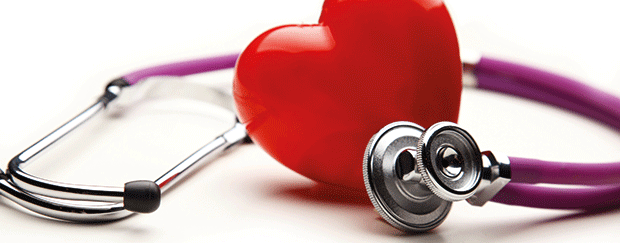
Can folic acid prevent a stroke?
Researchers from Peking University First Hospital, Capital Medical University Beijing, Nanchang University, Guangdong Provincial Hospital of Chinese Medicine, Duke University and Johns Hopkins University in the US and published in the Journal of the American College of Cardiology looked at over 10,000 Chinese men and women aged 45 to 75 who had high blood pressure in order to find out whether taking a folic acid supplement lowered the risk of stroke.
Study participants were given either blood pressure lowering medicine or the same medicine combined with folic acid. After four years the research participants were examined for the stroke risk factors higher levels of homocysteine in the blood and lower levels of platelets. In participants considered to be at higher risk 1.8% of people who took folic acid had a stroke compared with 5.6% who did not. More study is needed, but the general advice for avoiding a stroke still holds – avoid smoking, aim for a healthy weight, exercise, follow a healthy, balanced diet, and limit your alcohol intake.
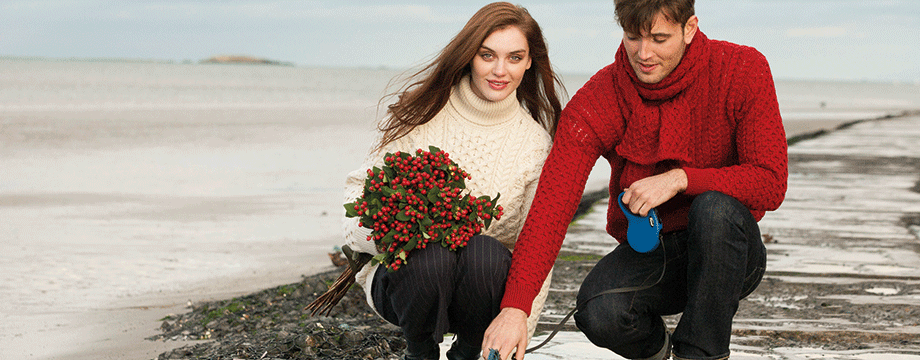
What do you think of Rude Health?
We are delighted to announce the results of our third Rude Health magazine readers survey. Thanks again for responding to our annual survey, we really appreciate your feedback.
Read some of the things you said about the magazine here...
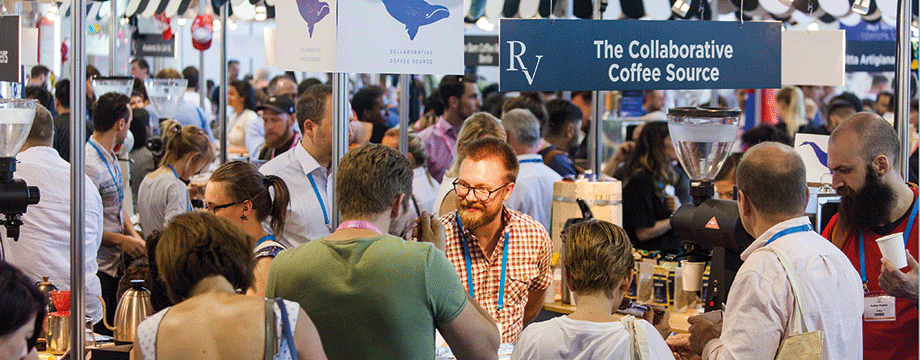
Vitality Expo
Vitality Expo 2018 is Ireland’s brand new consumer and trade natural health exhibition where you can learn about exciting new products and remedies, meet natural health suppliers, discover the latest natural health trends, and obtain tips and expert advice from the many well-known figures within the natural health industry in Ireland and beyond.
Read our show preview here...

A low fat or a low carb diet for weight-loss?
Naturopath Gemma Hurditch answers for College of Naturopathic Medicine
There is hot debate on whether a low-fat or a low-carb eating regime is the best way to trim down. Mainstream health organisations traditionally recommend the low-fat route, whilst popular culture is embracing the low-carb trend; so which is best?
Read on...
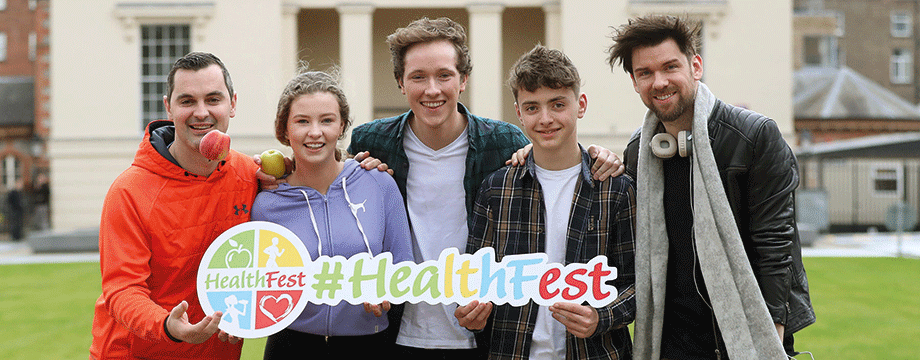
HealthFest for Ireland’s teens
Organised by the National Dairy Council and safefood, HealthFest is a free event for transition year students at the National Sports Campus in Dublin on Thursday 26 April. The full day seminar is designed to educate young people about the importance of healthy eating and physical activity in a practical, engaging and fun environment.
This year’s Healthfest will have interactive sessions with experts including leading fitness expert Karl Henry, Irish dietitian Orla Walsh, chef Adrian Martin who will demonstrate some of his favourite dishes and special guest speaker, Eoghan McDermott of 2FM who will speak about the importance of looking after mental health and wellbeing.
Diet and nutrition will be a big focus on the day, giving young people the tools and skills to understand the importance of eating well with a healthy balanced diet. During the teenage years this is even more important to support the phase of rapid growth and development.
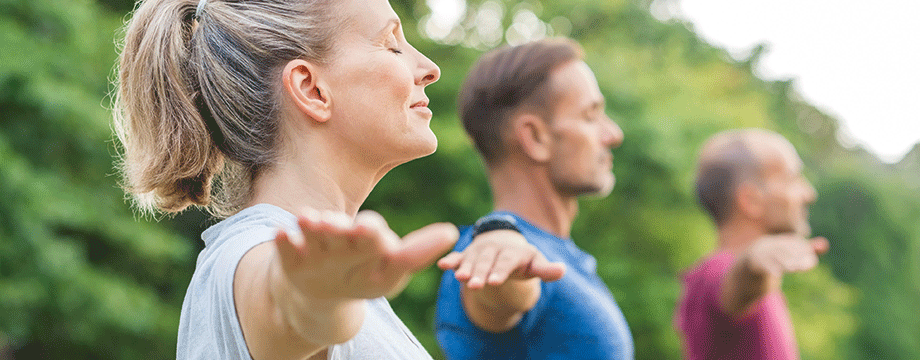
Dublin welcomes WellFest 2018
WellFest takes place at the Royal Hospital, Kilmainham, Dublin 8 on 12-13 May with headline names Davina McCall and ‘Lean in 15’ famed Joe Wicks, aka The Body Coach, plus personal trainers, nutritionists and authors.
There will be a dedicated mental fitness stage, curated by performance psychologist Gerry Hussey. Popular areas such as WellKids, WellFood and WellTalk will be returning to expanded spaces, along with the largest WellVillage market to date.
Weekend and day tickets for the festival are on sale now on www.wellfest.ie.
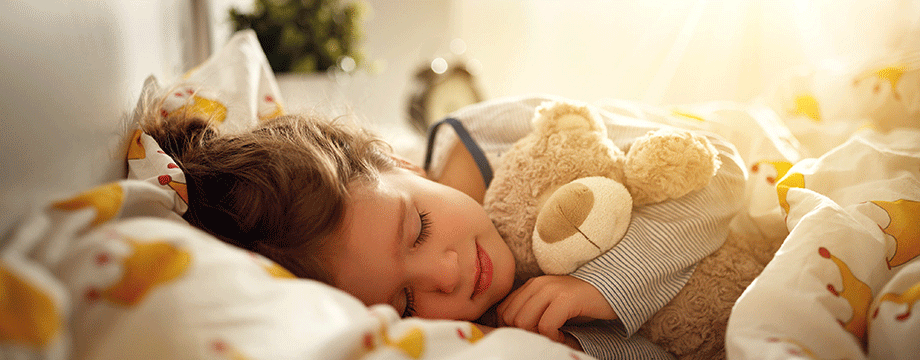
New sleep tool for young people in Ireland
The Sleep Programme is a new practical tool which aims to address poor sleep habits among young people in Ireland. It provides teachers and youth workers with the tools to support young adults to improve or maintain their sleep routine. The programme addresses areas such as stress, diet, physical activity, drug and alcohol use in young people and encourages changes to poor sleep hygiene. The resource was funded by the National Youth Council of Ireland’s (NYCI) Connected Communities programme.
‘The Sleep Programme’ is available for download from www.crosscare.ie, www.kwetb.ie and www.docchildandfamily.ie
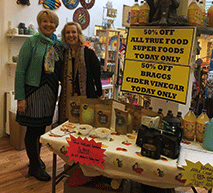
Spring into Health
Spring into Health at health store Evolv in Enniscorthy from February 26 - March 3 is promising to be a week-long natural health extravaganza that’s extra special this year due to the store celebrating its 25th anniversary. Proprietors Matt and Nuala Ronan want their customers to experience new things, and share their own fascination with all things natural and healthy.
You will be able to go into the store and find half-price kinesiology, hot stone massage, reiki, hypnotherapy, allergy testing, nutritional consultations, lymphatic massage, natural skincare facials, pH acid testing and iridology. You can ask awkward questions and find out about the benefits of the latest health products. Wander a little bit further and you are given the opportunity to taste the type of dishes that can be prepared using some of the wide array of healthy, nutritious foods available in store.
Plus there’s the chance to snap up amazing health bargains on lots of popular products from salt lamps to supplements, from fabulous foods to fantastic gifts. A detailed programme for the week is printed and available at www.evolv.ie.

Are fresh veg better than frozen?
CNM natural chef Cheryl Thomson answers: Eating fresh, living food is our evolutionary key to health! As a CNM natural chef I strive to cook and eat with the seasons, supporting local farmers and choosing organic wherever possible. However, while we all know that a wide variety of fresh fruits and vegetables are essential for good health, they may not always be available.
Read on...
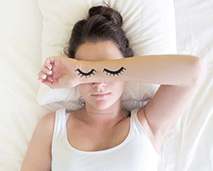
The importance of sleep
Alison Cullen, nutritionist and education manager at A. Vogel
The clocks Spring forward at the end of March which can often mean disruption to our sleeping pattern. Here, we take a look at the importance of getting a decent night’s sleep and some tips on how to achieve it.
In order for the nervous system to function well, the body needs to do its restoration work, during our hours of sleep. Unfortunately, when the appropriate restoration doesn’t take place due to a lack of sleep, the results are not very pleasant. If you don’t sleep properly you will obviously feel tired but you will also feel hungrier, be more sensitive to pain, and your immune system won’t function as effectively.
So it’s of great importance to get a decent amount of sleep. However, getting those sacred six to eight hours of slumber is sometimes easier said than done. If poor ‘sleep hygiene’ (sleeping habits) is keeping you up, try some of the following:
- Try to wind down at least half an hour before bed – have a warm bath, read a book or have a calming herbal tea.
- When you are in bed, ensure you aren’t winding your mind up with technology – especially if it’s for work!
- Eat earlier – eating just before bed can cause discomfort: not what you need when you’re trying to nod off. If you eat late, you may waken during the night as your body is digesting your food.
- Don’t be distracted – if you live in a noisy area, try ear plugs or soothing white noise. If you have a problem with light, try a blackout blind or an eye mask.
- To encourage natural sleep, you could try a valerian and hops combination. There are tinctures of the duo that are non-drowsy, meaning you will wake feeling rested, not groggy, as it encourages a natural sleep.
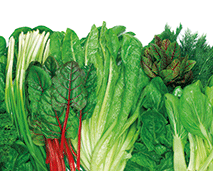
Green leafy veg linked to younger ‘memory age’
Researchers from Rush University and Tufts University, both in the US, have undertaken research into how eating green leafy vegetables could affect brain function and memory. The cohort study of 960 people recruited from the Memory and Aging Project (MAP) – more than 40 retirement communities, senior public housing units, churches and senior centres in the Chicago area – began in 1997 with data collection. In order to take part in the study participants were first tested to make sure they didn’t have dementia or memory loss. In 2004 they completed food frequency questionnaires.
The research which has been published in the journal Neurology found that eating approximately one serving a day of leafy green vegetables and foods rich in certain vitamins, such as vitamin K, was linked to slower loss of memory with ageing. The researchers worked out a ‘memory age’ for each participant and found those who ate the most leafy greens had the youngest memory age by up to approximately 10 years.
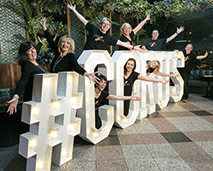
Sing for your mental health
A recent study from Oxford University looked at how people attending adult education classes grew closer over a seven-month period. The study found that people in singing groups bonded more quickly than in other classes, such as creative writing and art. Other studies have found that singing improves cognition, lowers blood pressure, releases endorphins and oxytocin, both of which decrease stress, pain and anxiety; and a joint Yale and Harvard study found that singing regularly can increase life expectancy.
Mary Lowe O’Gorman and Yvonne McDonald set up adult group singing classes CÓRus.ie seven years ago and have found it to be a life-changing experience for both themselves and their members. Classes are filled with enthusiastic singers from all walks of life who have reported improved mental and physical health, as a side effect of their weekly classes. The repertoire is based on contemporary hits and older classic hits as well as musicals. People don’t have to audition or read music to join in. Corus are based in 15 locations around Dublin and looking to expand nationwide. “We want to bring about a singing revolution in Ireland,” says Yvonne McDonald.
For more info check out www.corus.ie
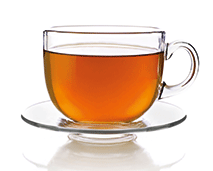
Drinking tea and the risk of glaucoma
Research from Brown University, Rhode Island, and the University of California into the link between consuming certain drinks and the risk of developing the eye condition glaucoma has been published in the peer-reviewed British Journal of Ophthalmology.
Glaucoma is a condition where pressure builds up in the eye which can damage the optic nerve. The main risk factors for glaucoma are having a family history of the condition, increasing age and being of African, Caribbean or Asian origin. Everyone should have a routine eye test which can detect glaucoma every two years. The study examined the link between drinking tea, coffee or soft drinks and the development of glaucoma. It used data from the 2005–06 US National Health and Nutrition Examination Survey (NHANES).
Over 1600 study participants took part – they had to be over 40 with certain eye test results already in place. The consumption of the different drinks was assessed by completion of a questionnaire. The research found that participants who drank more than six cups of hot tea per week were less likely to develop glaucoma compared with those who did not – in fact they had a 74% decreased risk of glaucoma.
What's in season in March and April?
Butterhead lettuce, cabbage, cucumbers, leeks, mushrooms, parsnips, rhubarb, cooking apples and mint. Peas and tomatoes are coming into season.

New RDS health show for 2018
Health Stores Ireland has announced a major consumer natural health show – Vitality Expo 2018 will be held at the RDS Dublin on September 8 and 9 in collaboration with INM Events.
Mary Wedel, chair of Health Stores Ireland told Rude Health: “The relaunch of the annual consumer/trade show, with the exciting collaboration of national media organisation INM, will give us the perfect platform to highlight the independent health food trade and our collaboration with many terrific Irish artisans.”
The show will have a festival feel, with an outdoor stage, healthy food offerings, an artisan village and range of family-friendly activities and fun. There’s something for everyone, from inspiring speakers and interactive talks, to show deals, cookery demo’s and tastings from artisan and local producers.
Oliver McCabe will be MC’ing and managing the food demonstration area. There’ll be a wealth of information to help improve family health and wellbeing, plus music, yoga and pilates sessions too.
Rude Health will be playing an integral part in the Vitality Expo event with exciting news to be announced soon. Check out vitalityexpo.ie

Keeping sugar spikes at bay
With the extra calories and added sugar that comes at this time of year, it's important to maintain a healthy blood sugar balance to prevent energy dips, spikes, fatigue, poor skin and lowered immunity.
One true superfood which can help with this is Ceylon cinnamon, used traditionally and recognised for centuries for its medicinal and healing properties.
Read on...
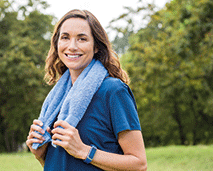
Irish fitness attitudes revealed
In a recent research study delivering a sample size of over 1,000 interviews, Irish Life Health has revealed the nation’s views on being proactive about our health. The research shows that 21% of people said cost is a major barrier in the pursuit of health and fitness management, with 59% of respondents saying that staying fit is ‘expensive’.
The research also examined how parents in Ireland are working to incorporate fitness into family life, with 84% saying they make it a priority to keep children fit and healthy all year round. However, with the colder months upon us, two thirds of parents say they struggle to get their family outside and active in winter.
The research showed that 82% of parents of school-aged children think of team sports as a good way to get children to stick with sports, although 39% say they struggle to find time for fitness themselves.

Irish workers not keen to share mental health concerns
A recent independent survey commissioned by Mojo, a men’s health and wellbeing training programme, has revealed that 60% of Irish workers are not comfortable taking sick leave if they experience mental health challenges.
The survey indicated that, whilst the stigma attached to mental health issues in Ireland is breaking down, efforts need to be made to promote a change of mindset within the workplace.
Other findings from the survey show that almost two-thirds of Irish workers are unsure if they would feel comfortable speaking to their employer if they were experiencing mental health challenges, and over 40% said they don’t know if they would receive the required support.
The survey was carried out face to face with a random selection of 300 employees in Dublin. The Mojo Programme is run by South Dublin County Partnership funded by the National Office for Suicide Prevention (NOSP).
Did you know?
Individuals with darker skin naturally produce less vitamin D, as the melanin in their skin provides more protection against UV rays. This means that they must spend longer in the sun to produce the same amount of vitamin D as those with lighter skin.
Whilst many of us live increasingly indoor lives, some individuals have particularly low sun exposure. These include:
- Elderly people who are house bound or live in care homes
- Office workers who spend most of their day inside
- People who wear covering clothing for cultural or religious reasons
- Those with a disability that prevents them from getting outside regularly
- Those who work night shifts and sleep during the day
Vitamin D deficiency can lead to ‘surface’ symptoms such as muscle weakness, fatigue and frequent coughs and colds, to ‘concealed’ symptoms such as osteoporosis and bone deformities.
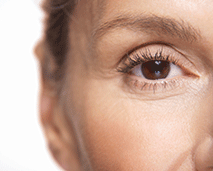
Carotenoids a boost to AMD sufferers
Research conducted over two years by a team from the Nutrition Research Centre Ireland (NRCI) at Waterford Institute of Technology (WIT) involving over 100 people diagnosed with the early stages of the most common cause of blindness has tested their reaction to a dietary supplement of carotenoids.
Results from the study are published in Investigative Ophthalmology & Visual Science (IOVS).
Participants in the study all had the early stages of age-related macular degeneration (AMD). They received supplementary meso-zeaxanthin, zeaxanthin and lutein, the three carotenoids that make up macular pigment. Improvements in vision were marked among those receiving all three carotenoids compared to those receiving only zeaxanthin and lutein. 40% of trial participants had what is deemed to be a clinically meaningful improvement in their vision after 24 months.
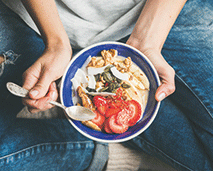
Breakfast important for your arteries
Research from medical research centres in Spain and the US has found that people who regularly skip breakfast are more likely to have hardening and thickening of the arteries.
The study was published in Journal of the American College of Cardiology. Researchers recruited 4,082 healthy workers aged 40 to 54 from the headquarters of Santander Bank in Madrid and asked them to fill in a questionnaire on their breakfast habits over 15 days.
The researchers looked at their arteries to see if they showed signs of fatty tissue build-up. Only 3% of the participants skipped breakfast; 69% had a low-energy breakfast; 28% had a high-energy breakfast. Overall, about 63% of participants showed some signs of atherosclerosis, and it was more common among people who skipped breakfast than those who ate breakfast every day.
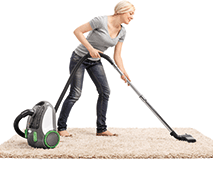
Are you house sick?
Do your hay fever symptoms continue even in the winter? According to airborne allergies expert Max Wiseberg you may have ‘house fever’. He advises:
- Make sure your house is well ventilated, avoid drying clothes on radiators and/or use a dehumidifier.
- Vacuum the house regularly using a HEPA (High Efficiency Particle Arresting) filter.
- Damp dust surfaces regularly, to reduce allergens on surfaces.
- Wash bedding very regularly to remove allergens.
- Apply an organic drug-free allergen barrier balm around your nostrils and the bones of the eyes throughout the day to trap dust, pet and mould allergens.
- Shower at night before going to bed.
- Ensure your pet is well groomed and shampooed and try to keep them out of bedrooms.
- Hose down your Christmas tree before taking it into the house to remove some of the dust and mould spores.
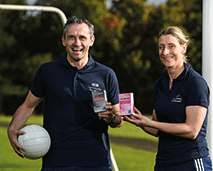
Is your supplement sports safe
Do you know what the Tested Sports Safe logo on food supplements means? It’s a quality mark for supplements that reassures the consumer that the product they are taking contains no prohibited substances.
This is all-important for athletes like current Mayo ladies GAA footballer Cora Staunton (above) and former Dublin GAA footballer Alan Brogan who have to be very careful about what they take.
Athletes are encouraged to look for the Tested Sports Safe® logo on packs in health stores and can also visit the website to check their product’s batch number and view its test results: sportssafe.org/safe-batch-checker. Tested Sports Safe® was developed by Co. Wicklow-based company, Naturalife Health.
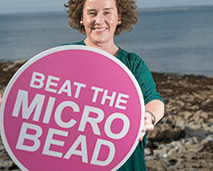
Beat the microbeads in Irish waters
Microbeads are tiny particles of plastic that are added to thousands of personal care cosmetic products such as soaps, shower gels and facial scrubs sold around the world. These microbead plastics, hardly visible to the naked eye, flow straight from the bathroom drain into the sewer system. Wastewater treatment plants are not designed to filter out microbeads and that is the main reason why they contribute to the Plastic Soup swirling around the world’s oceans. Sea animals absorb or eat microplastic beads mistaking them for plankton and the microbeads get passed along the marine food chain.
Researchers from the School of Geography and Archaeology at NUI Galway have conducted the first study that investigates microplastic pollution of marine sediments on the Irish continental shelf. The study was published recently in the international journal Scientific Reports.
This research was an NUI Galway student-led investigation by Jake Martin, a graduate of the Masters Programme in Marine and Coastal Environments: Policy and Practice within the Discipline of Geography. The study found that a shallow layer of microplastics has formed along the Irish seafloor within marine sediments and their overlaying bottom waters.
However it’s not all bad news – Irish skincare company Kinvara were recently recognised by the International campaign ‘Beat the Microbead’ for its outright ban of microbeads in all of its skincare products.
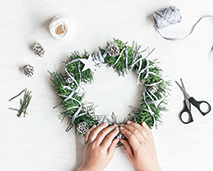
Tip for a greener Christmas
- Shop local for gifts.
- Cut down on shopping trips by getting organised.
- Regift anything you don’t want to keep.
- Make your own Christmas cards, wrapping paper and tags.
- Keep paper, bows and ribbons to use again.
- Invest in a battery charger and rechargeable batteries – it’s greener than buying batteries.
- Choose a real tree – the plastics used in the manufacture of artificial trees have a damaging environmental impact.
- Decorate with nature – if you have a holly bush cut sprigs to hang from pictures on your walls.

Worrying folic acid figures
New research from safefood has revealed that young Irish women are three times as likely to check their smartphone in the morning as they are to take a folic acid tablet. More than 80% of women who responded to the survey check their phone/social media as part of their morning routine yet only 25% of women take a folic acid tablet.
Following personal hygiene habits or eating breakfast, the most typical morning habits for women include applying make-up (56%) and picking an outfit for the day (56%) followed by preparing lunches (47%), styling hair (46%) and commuting or school runs (27%).
The safefood campaign is reminding women to take a 400 microgram folic acid supplement every day because it can potentially prevent two-thirds of Neural Tube Defects (NTDs) like spina bifida from occurring. Ireland has the highest rate of babies born with spina bifida in the EU.

Not enough sports in schools
New national research from Irish Life Health has revealed that 42% of parents in Ireland wrongly believe that their child gets enough physical activity during their school day. However, 90% of secondary schools provide less than two hours of physical education per student each week. With seven hours physical activity required weekly – as a minimum – the majority of parents (58%) admit they are finding it difficult to provide the additional five hours of physical activity beyond that provided in schools. The annual Irish Life Health Schools’ Fitness Challenge has had a huge total of 126,162 secondary school students taking part since 2012. The programme aims to help secondary school students adopt a healthier lifestyle by becoming more physically active.
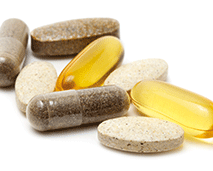
Vitamin D deficiency linked to age
Researchers from The Irish Longitudinal Study on Ageing (TILDA) at Trinity College Dublin have shown in a first-of-its-kind trial that, during the summer, one in eight older Irish people have blood levels of vitamin D below 30 nmol/L. This is viewed as close to being deficient.
In the winter, the deficiency rate increases to one in four in the same age group. The new study, which was recently published in the Journals of Gerontology: Medical Science, took into account such factors as age, economic status, and lifestyle factors. The researchers could see that vitamin D deficiency increased with age. Vitamin D comes from sunlight, and is available in foods such as oily fish, egg yolks and mushrooms.
Many people take vitamin D supplements to make sure they are getting enough of this crucial vitamin.
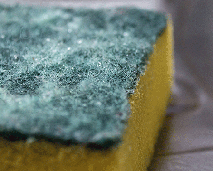
Is your kitchen sponge harbouring billions of bacteria?
Researchers from three medical research centres in Germany have recently published a study into kitchen sponges in Nature Scientific Reports.
Scientists assessed 14 different kitchen sponges using genome sequencing techniques and found billions of bacteria on the surface of the sponges. While this may sound alarming, we should bear in mind that our bodies and homes are covered in bacteria and most are harmless.
The scientists stressed the results are nothing to be alarmed about, however they found that cleaning sponges did not kill the bacteria and suggested weekly replacement instead.

Buying ‘help’ may make you happier
A study by researchers from Harvard Business School in the US, University of British Columbia in Canada, Maastricht University and Vrije Universiteit Amsterdam in The Netherlands and published in the peer-reviewed medical journal PNAS has found that spending money to free up time may make people happier.
The research involved a survey of 6,000 participants from the US, Canada, Denmark and The Netherlands. The respondents who reported spending money on cleaning, cooking, shopping and household maintenance rather than material goods reported better life satisfaction.

Ways to beat dementia
A review published in The Lancet has identified nine risk factors linked to dementia which could be modified or diminished. These are: low levels of education, midlife hearing loss, physical inactivity, high blood pressure, type 2 diabetes, obesity, smoking, depression and social isolation.
Even if added together the risk of all of these factors only accounts for 35% of the overall risk of getting dementia – the rest of the risk is due to ageing and family history. The scientists recommended switching to a Mediterranean diet, meeting recommended exercise levels, and using cognitive training to improve memory, attention and reasoning skills.
Other suggestions include encouraging people to become more socially active and continuing to support people who want to give up smoking.
Magnesium linked to depression improvement
Researchers from the University of Vermont have undertaken a study into how magnesium supplementation affects the symptoms of depression. In the clinical trial which had no placebo group, 126 adults with mild or moderate depression spent six weeks taking four 500mg tablets of magnesium chloride daily and six weeks without magnesium supplements. They also continued taking their usual depression treatment.
Researchers monitored their depression symptoms with phone calls every two weeks. Subjects were asked to rate their depression symptoms on a scale of 0-27 and on average in people taking magnesium, symptoms improved by an average of six points. The study which was published in the peer-reviewed journal PLOS One found that taking magnesium helped people whatever their gender and age. Magnesium-rich foods include spinach, pumpkin seeds, almonds, avocado, figs, bananas and dark chocolate.

Link between coffee and life expectancy
A recent study carried out by researchers from 20 academic and health institutions across Europe and published in the peer-reviewed journal Annals of Internal Medicine looked at data from people enrolled in the European Prospective Investigation into Cancer and Nutrition (EPIC) to see if there were links between coffee consumption and overall deaths.
The study included more than 450,000 people and found men who drank the highest amounts of coffee had a 12% overall reduced risk of death and women had a 7% reduced risk overall. Current guidelines recommend no more than four cups of coffee per day.
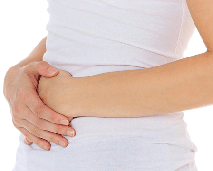
Study shows effects of IBS in life
A new study into how IBS affects the lifestyles of young men and women in Britain has found:
- 42.2 of students between 16-25 said exams cause a flare-up
- 42.9% say work pressure causes a flare-up
- 75.7% of women stated stress causes a symptom flare-up
- 67% have cancelled social outings because of a flare-up
- 40% have cancelled sports activities
The scientists recommended taking live cultures, micro-organisms found in the human body or in foods that contribute to our health and wellbeing, also known as probiotics. Probiotics are known to reduce bloating, abdominal pain and gas.
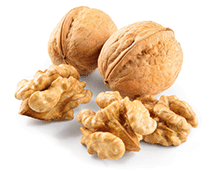
Did you know?
Research at LSU Health New Orleans School of Medicine, has found that eating walnuts can help to balance the bacteria in the gut.
Walnuts are rich in omega-3 fatty acids, alpha-linolenic acid and fibre, and they contain high levels of antioxidants too.
The study is published in The Journal of Nutritional Biochemistry.
What's in season in September & October?
In season: aubergine, broad beans, broccoli, lettuce, cabbage, carrots, cauliflower, celery, kale, marrows, mushrooms, peppers, potatoes, radish, scallions, spinach, swedes, turnips, mint, parsley, sage, thyme, cooking apples.
End of season: cucumbers, mange tout, tomatoes.
Coming into season: brussels sprouts, lollo rosso, parsnips, eating apples.
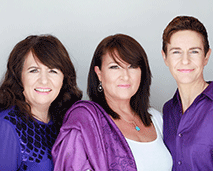
Menopause and health store humour
“Menopause is that time in your life when all hell breaks out with your hormones, when your body cannot decide whether you are a prepubescent youth and sends you pimply skin, a fertile goddess and sends you painful periods, or an old crone and sends you night sweats and hot flushes,” says Yvonne Deegan of Von’s Health Store in Limerick.
“Hormonal changes can cause you to question your sanity with damage to your confidence and self-worth, while regularly switching your tear ducts on for absolutely no good reason.”
Life coach Gaye Moore, nutritionist Yvonne Deegan and chef Ciara Brennan are tackling this taboo subject head-on in a fun, natural way to ease the physical, mental and emotional trauma of menopause. They will be holding talks in Von’s Health Store and have launched a free ebook on their website www.fookfifty.com
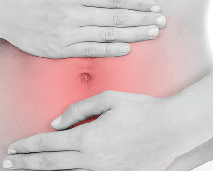
Coeliac or not?
Find out whether you are a coeliac by using the Coeliac Society of Ireland’s new free online self-assessment tool. You will be asked a number of questions relating to your current health and if they match to some of those of coeliac disease, you will be encouraged to seek a medical diagnosis and provided with supporting information.
www.isitcoeliacdisease.ie or coeliac.ie
Traveller's tummy

It’s that time of year! Dust off the suitcase, break out the bathing suit, and get the flips ready to flop. These all-important elements to a great holiday are easy to remember, but one thing we should not forget is how to keep our tummies healthy and happy as we travel abroad to foreign lands.
Read on...
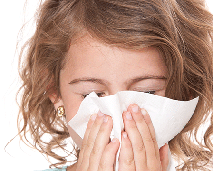
Hay fever survival tips
How to stop pollen from getting into your body:
• When indoors, close windows to stop pollen getting through.
• When going outside, tie your hair up and wear a hat to prevent pollen particles being caught in your hair.
• Wear wraparound sunglasses to prevent pollen particles coming in contact with your eyes.
• Use an organic, drug-free allergen barrier balm on your nostrils to trap pollen particles before they enter the body.
• Dry clothes indoors rather than on a clothes line outside.
• Vacuum the house regularly, especially beds and fabrics to remove pollen particles.
• If you own a pet ensure that it is well groomed and shampooed to remove pet allergens and pollen particles.
• Shower at night before sleeping to remove pollen particles from your hair and body.

Protect your eyes this summer
A survey by online lighting superstore Scotlight Direct asked 1,500 Irish people questions about their sunglasses and found that 60% have no idea whether their sunglasses have any UV protection, and one-third of Irish adults own a pair of replica sunglasses – cheaper copies of classic designer brands. This is of concern because if they don’t carry proper UV protection, you risk causing real damage to your sight.
Almost half of those interviewed (49%) believe that darker lenses provide more protection – even though that’s not actually the case. And over half (56%) don’t know whether the sunglasses they currently own offer high UV protection. Check out www.scotlightdirect.co.uk/infographics/sunglasses-health-benefits

How IBS affects Irish adults
An independent survey of 1000 people in Ireland by Silicolgel, a product used to help treat gastrointestinal disorders has found that 66.5% said that stress is causing stomachache, bloating and nausea which is affecting their ability to work, with 40% admitting to taking time off work due to digestive and bowel problems caused by stress. Nearly half of those surveyed (42.5%) admitted that digestive problems or an upset stomach have ruined a night of passion and three-fifths of people (60%) had to change and adjust their plans to cope with the challenges that these symptoms bring. Recent figures reveal that IBS affects 5-20% of the Irish population, yet it has only been diagnosed in about 5-7% of those who suffer.
For more information visit www.silicol.co.uk
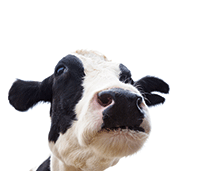
Dairy and heart disease
A new study published in the European Journal of Epidemiology into eating milk, yogurt and cheese comprises a meta-analysis of 29 cohort studies and questions the link between dairy, saturated fat and heart health. In line with a growing body of science, the study shows that dairy has a neutral or protective association on long-term heart health. The meta-analysis, based on 35 years’ worth of research, found no links between milk, total dairy, high- or low-fat dairy and coronary heart disease or cardiovascular disease.
Grow an aloe vera plant
Did you know that the inner part of the aloe vera leaf contains eight essential amino acids, enzymes, vitamins, minerals, salicylic acid, sugars, saponins and sterols? Aloe vera can be used for soothing burns including sunburn, treating minor abrasions and bruises, treating stings and bites. Either pull off a leaf and squeeze directly onto the skin, or buy a gel from your local health store.
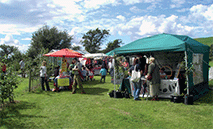
Irish Seed Savers
“The Irish Association of Health Stores are official supporters of Irish Seed Savers Association, a non-profit organisation dedicated to preserving and sharing Ireland's rare heirloom seeds and apple trees. The IAHS will be supporting Irish Seed Savers events and using our retail network to publicise and support Irish Seed Savers activities and events. Many health food stores are now stocking Seed Saver seeds.” Mary Wedel, Chair, IAHS
19-27 May is Biodiversity Week and Irish Seed Savers will be holding Blossom Week in their 20 acres of beautiful organic gardens and orchards that contain Ireland’s national heritage apple tree collection in Capparoe, Scariff, Co Clare. Visit for free.
28 May is Plant Share Sunday. “Bring your surplus seeds, plants, seedlings and shrubs to exchange or just come for a chat and a cup of tea and cake,” says Irish Seed Savers. “We will have a free guided tour of our apple blossom orchards. Gardens, orchards, cafe and shop open."
www.irishseedsavers.ie
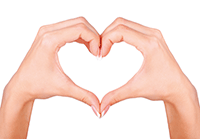
Fit for your heart
A study of over 4,500 people undertaken by the University of Wolverhampton and published in the Scandinavian Journal of Medicine and Science in Sports recently looked at factors affecting heart health including body mass index (BMI), waist to hip ratio (WHR) and waist to height (WTHR) ratio, and has found that more important than all of these is being fit.
The researchers led by Professor Alan Nevill assessed the individuals' risk of heart disease by asking them to undergo a number of tests including fasting, walking on a treadmill and their blood pressure, heart rates and oxygen intakes were measured before and after exercise. The fitter individuals had a lower risk of heart disease regardless of their other measurements.
What you think of Rude Health
We are delighted to announce the results of our third Rude Health magazine readers survey. Thanks again for responding to our annual survey, we appreciate your feedback.
Click here to read on...
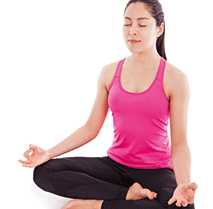
Yoga eases symptoms of depression?
A study carried out by researchers from Boston University School of Medicine, Harvard School of Medicine, Boston Medical Centre, McLean Hospital, Memorial Veterans Hospital, New York Medical College, Massachusetts General Hospital, and Columbia University and published in the Journal of Alternative and Complementary Medicine has found that doing yoga can help ease symptoms of depression.
Researchers recruited 32 people with moderate to severe depression. They were split into two groups – one group was given three 90-minute classes each week, with four 30-minute sessions at home, and the other group took part in two 90-minute classes, with three 30-minute sessions at home per week. After 12 weeks the researchers looked again at their depression scores – both groups were found to show less depressive symptoms, with the group doing more yoga gaining the most benefit. The researchers are planning more research in the future.

Screen time linked to type 2 diabetes
Researchers from the University of London and the University of Glasgow have published research in medical journal Archives of Disease in Childhood looking into how screentime affects children’s likelihood of developing type 2 diabetes later in life. The study used data collected from 2004 to 2007 on 4,500 children aged 10. They found that children who had more than three hours of screen time per day had higher levels of body fat and insulin resistance when compared to children with an hour or less of screen time per day. This data was collected before the advent of smartphones and tablets in many children’s lives.
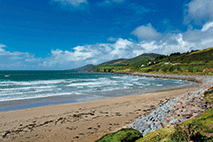
Protecting Ireland’s beaches
As an island with a rich heritage of local fishing, fabulous seafood and nutrient-dense seaweeds we know the power of the sea. Look a little deeper, however, and it’s alarming to realise that minor everyday products can have a negative effect on marine life and our coastlines.
Choosing eco-friendly beauty products is an important choice – natural versions avoid ingredients such as microbeads which cannot break down in the sea, and of the 10,000 tons of UV filters produced for sunscreens annually, about 25% of these are applied to skin and end up in the sea. These chemicals mimic the effect of oestrogen and can have a dramatic effect on aquatic life, for example turning fish into hermaphrodites. Certain sunscreens promote viral infections in coral reefs, potentially playing a devastating role in coral bleaching.
Clean Coasts is an Irish body operated by the Environmental Education Unit of An Taisce. It organises hundreds of beach clean-ups annually, removing considerable quantities of marine litter from our coastline and engages communities in the protection of Ireland’s beaches, seas and marine life. The Marine Conservation Society is a UK charity for the protection of seas, shores and wildlife. Eco-friendly cosmetics company Green People is donating 30p (or the equivalent € value) from the sale of every marine-friendly Scent Free SPF30 Sun Lotion and Children’s Scent Free SPF30 Sun Lotion to this worthy cause.
cleancoasts.org

Make your holiday more eco-friendly
Whether you are jetting off to foreign climes or enjoying a staycation here in Ireland, there are ways to make your holiday greener:
Go local – avoid chains and instead choose family-run cafes and restaurants.
Respect wildlife – do not buy souvenirs made from animal parts.
Look for responsible tour operators – check websites for info.
Take your time – don’t be in a rush to see everything. Walk or cycle and get closer to nature or make your break more intimate and enlightening.

New look Hopsack
IAHS health store The Hopsack in the Swan Centre in Rathmines has been undergoing a process of expansion and revitalisation. “This is the culmination of what we have wanted to do for over five years now,” says Finn Murray. “We have basically doubled the space by expanding into a vacant shop next door. We didn’t do it to put more products on the shelves, but to give customers and staff more room to move and a better atmosphere to the shop. We have massively increased aisle width for our customers, and dedicated a huge portion of the shop to working space for our team. Where we previously tried to cram all the elements of our business into a tiny space we're now giving each one space to flourish, so we can really begin to tell our story in food, how we're growing it, cooking it and educating about it.
“Our fresh food area and organic fruit and vegetables section is now much bigger and we can stock produce from our organic farm and cook them in the kitchen. We wanted to use our cafe area for workshops, screenings and education. It’s about community and sharing – we want to help our customers to come and learn new ideas, developing their relationship with the food they put in their mouths, and on their families' tables. Our upcoming workshops include miso making with cook/educator, Junko Hamilton which will include an amazing Japanese dinner, and a fermentation workshop with Dearbhla Reynolds of The Cultured Club.
“The back wall of the shop is where we now have a number of new innovations including a water refill station, a household product refill section and two nut butter machines where customers can grind their own nuts. We're trying to cut right down on waste, and lead the way for our customers to do the same. With ideas like this we hope to stay relevant and keep exciting ourselves and our customers for many years to come.”
www.thehopsack.ie

Teenage boys fitter than girls
According to new research into the fitness of secondary school pupils launched by Irish Life Health, boys are 42% fitter than girls in 4th year. Over a quarter of all Irish secondary schools signed up for the Irish Life Health Schools Fitness Challenge in 2016, with 22,764 students taking part.
Students experienced a significant improvement in their fitness levels after just six weeks of exercise training, with first year boys (+11%) and fourth year girls (+14%) showing the biggest improvement levels overall. The programme was overseen by Professor Niall Moyna in the Centre for Preventive Medicine, Dublin City University.
Anxiety helped by meditation
Researchers at Georgetown University Medical Center with lead author associate professor Elizabeth A. Hoge, MD recently published a study on the effects of meditation on anxiety in the journal Psychiatry Research.
Two groups of over 40 people suffering from anxiety disorder were organised with one group taking an eight-week Mindfulness-Based Stress Reduction (MBSR) course and the other group taking a stress management course that focused on eating patterns, sleep, and overall wellness. Before and after the eight week period both groups took a Trier Social Stress Test. This involved giving an impromptu speech in front of a large group of people.
The researchers found that the mindfulness meditation group were less stressed when taking the test the second time, however, the group who had taken a stress management course seemed more stressed.
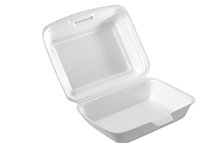
Baddies in fast food wrappers
Researchers at the Silent Spring Institute in Massachusetts have published a study in Environmental Science and Technology Letters expressing concern over PFASs in fast food wrappers. PFASs (per- and polyfluoroalkyl substances) belong to the same family as Teflon and could pose a health risk.
PFASs can stay in the body for long periods of time and have been linked to high cholesterol, insulin resistance and weight gain. Other more serious conditions have been linked with PFASs in studies of animals.
The power of acupuncture
Professor Hugh MacPherson, Professor of Acupuncture Research in the University of York’s Department of Health Sciences has published research in the National Institute for Health Research (NIHR) Journals Library on how acupuncture can be an effective treatment for chronic pain and boost the effectiveness of conventional medication.
The researchers looked at the results of 29 high quality clinical trials involving 18,000 patients diagnosed with chronic pain. The studies focused on patients treated with acupuncture and standard medical care. Some patients were treated with anti-inflammatory drugs, physiotherapy and acupuncture and some with just the drugs and physio. The results show that in the majority of cases patients who also had acupuncture found they had less pain.
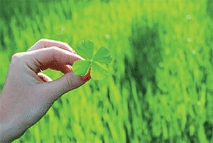
Have a greener St Patrick’s Day
It may be the one day of the year when the world goes green, but how can we make it more eco-friendly? Here are some simple tips:
Stay closer to home – there are great parades in all cities and most towns in Ireland plus other events too. Check out www.stpatricksfestival.ie
Walk to the parade – avoid the dash into town in your car and parking problems. Or take the bus. Reduce your carbon footprint.
Choose local foods for your celebration meal – sign up for a fruit and vegetable box that is delivered to your door for guaranteed fresh in-season produce. Choose Irish products in your local independent health store.
Choose recycled decorations – avoid tripping to the euro store for cheap plastic and instead make some decorations. Keep the kids busy painting posters and making shamrock shaped badges and hats out of leftover felt. Put candles in empty green bottles from beer or wine to make table lights.
Choose local beers – for less air miles and supporting the local economy.
Primary school children to grow their own
This year as part of the Sow & Grow initiative 45,000 primary school children will be able to grow runner beans, baby carrots and cress in their classrooms and teachers can apply for a growing pack, which includes, soil, growing pots, seeds and expert growing guides along with details on how to cook and eat the produce they will grow.
innocentsowandgrow.com/
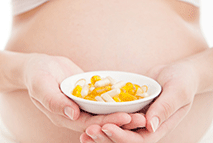
Only 1 in 3 women in Ireland take folic acid
Results from the latest survey for safefood’s folic acid campaign have revealed that while more than 95% of women are now aware of the benefits of taking folic acid, only one in three actually routinely take it. Recently published Irish research has also shown that three out of four women who attend for antenatal care have not taken folic acid supplements at the critical time, which is before they become pregnant.
Safefood wants to encourage women to take folic acid supplements and help address Ireland’s high rate of Neural Tube Defects (NTDs) like spina bifida among newborn babies.
For more information visit www.safefood.eu/folicacid
Pregnant women at risk of depression
Screening for depression should be an integral part of antenatal care plan, say researchers. Women are advised to tell their doctor or midwife how they are feeling emotionally when they are pregnant.
One in six pregnant women – or 16% of pregnant women – attending maternity services across Ireland are at probable risk of depression during their pregnancy, according to a new survey by the REDEEM research group, based in the Trinity College Institute of Neurosciences (TCIN), TCD and Irish Obstetric Services from Dublin, Cork, Limerick and Castlebar.
Ireland has the second highest birth rate in Europe, with an average of just under 68,000 births a year (2014). This means that in one year, over 11,000 women could be experiencing or at risk of depression during pregnancy, and yet screening for antenatal depression is not routine in Ireland’s maternity hospitals.
The Irish study also shows that rates of depression increase with advancing pregnancy, and that rates of depression are higher amongst women from lower socio-economic groups and with lower educational attainment.
Participants were recruited from: The National Maternity Hospital, Dublin; The Rotunda Hospital, Dublin; Cork University Hospital, Cork; Mayo General Hospital, Castlebar; University Hospital Limerick; and Community Antenatal Clinics, Tallaght, Co. Dublin.
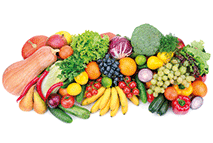
Free-from foods grow in popularity
Due to dietary or health and wellness concerns, over half of Irish consumers now avoid certain ingredients in what they eat and drink, according to new data garnered from an online survey from Nielsen who look at grocery buying trends.
Fifty-two percent eat a diet that excludes or limits consumption of some foods or ingredients. Antibiotics/hormones are the most common ingredients avoided (64%) followed by artificial additives, such as flavours and preservatives (62%) and sugar sweeteners (59%). Monosodium glutamate (MSG) and genetically-modified organisms also feature in the five most avoided.
Over one in four (27%) households contains someone who suffers from food allergies or intolerances. The most common ingredients avoided in Ireland for these reasons are eggs and lactose/dairy (both 47%), poultry (30%), gluten (28%) and grains (25%).
Sales of free-from products rose 15% in Ireland last year. A third of Irish people say their dietary choice is due to helping prevent conditions such as obesity, diabetes, high cholesterol or hypertension.
The effect of working shifts on health
A new report into the habits of people who work shifts has found more than 2 in 3 (67%) reported skipping meals on work days and almost 8 in 10 (78%) reported getting insufficient sleep. The report by safefood also found that in some employment sectors, 1 in 3 shift workers were smokers, a rate significantly higher than those in the general population.
The study also found that lack of breaks, shift patterns, poor availability of food, inadequate canteen opening times, and tiredness due to long working hours were the most common barriers reported by shift workers to leading a healthier lifestyle.
The research was lead Dr Clare Corish, Associate Professor at the School of Public Health, Physiotherapy and Sports Science, University College Dublin in partnership with Ulster University and Dublin Institute of Technology.
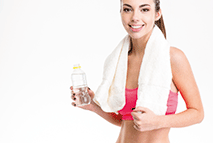
New Year revival
At this time of year everybody is planning, making changes and starting new good habits. IAHS member health stores are no exception and are rolling out a coordinated marketing strategy which customers will see reflected in their social media, Rude Health magazine, and the IAHS and Rude Health social media channels. It will also include some exciting in-store marketing and promotions.
For the next two months the themes of revival and detox will be to the fore in health food stores.
So why not take a trip to your nearest independent health food store for a consultation with well-trained and caring staff?
Watch out on Twitter and Facebook for hash-tagged threads with #revival #detox that include the keywords #IAHS and #rudehealth.
Use these search pointers to discover the wholesome and ethical solutions that independent health stores will be featuring over the coming weeks including special offers, food tastings, complimentary therapies, health blogs and in-store events.
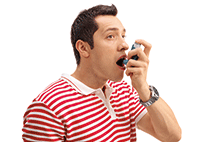
Vitamin D linked to asthma relief
A major review of seven different trials involving 1,093 people with different levels of asthma led by Professor Adrian Martineau at Queen Mary University of London for the Cochrane Library has found that people who took vitamin D supplements alongside their normal medication saw the risk of a severe asthma attack fall from 6 per cent to 3 per cent. The scientists have called for further trials.
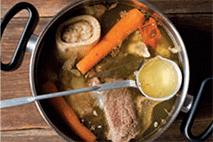
Bone broth: nourishing traditions
By nutritionist and CNM graduate Jacqueline Ryan
Bone broth – health food’s newest trend isn’t actually new at all! Our ancestors made this traditional, nourishing, easy to digest, nutrientdense food to power through tougher times. The key to nutrient-rich bone broth is in the quality of the ingredients. You can make bone broth with chicken, beef, lamb, turkey, bison, venison or fish.
Read on...

Adjust your body clock with magnesium
Find it hard to adjust to winter time? A recent report in The Journal of Orthomolecular Medicine found that when the body’s magnesium levels are too low, it makes it harder to stay asleep.
Being deficient in magnesium is linked with many health implications including migraines, anxiety, depression and extreme fatigue. A magnesium-rich bath or a few body sprays after a shower will leave you feeling relaxed as well as effectively replenishing your body’s levels.

Do you have Christmas tree syndrome?
A team of scientists from Upstate Medical University have analysed clippings from 28 Christmas trees including needles and bark, from a range of species, and found that they housed an unbelievable 53 different types of mould!
Airborne allergies expert Max Wiseberg gives these tips for avoiding Christmas Tree Syndrome categorised by sneezing, sniffling and hay fever-like symptoms:
- Hose down your tree before taking it into the house, or after getting it out of storage, as this can help remove some of the mould and spores – though it’s probably best to get someone who isn’t allergic to do this.
- Take care when you’re decorating your tree, or get someone else to, as allergens will be disturbed as you move the tree into position and move the branches to hang the decorations and position the lights.
- Put your tree up as late as possible to help minimise the risk of exposure to mould.
- Use an air purifier to help clear the air of mould particles.
- Apply an organic allergen barrier balm around your nostrils to help stop the allergens getting up your nose.
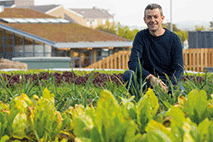
Visit GROW HQ
Grow It Yourself (GIY) Ireland has been busy setting up a brand new GROW HQ on the Dunmore Road in Waterford. The centre will consist of a national food education centre and GIY showcase where people can come to immerse themselves in the GIY lifestyle by growing, cooking and eating home-grown food. There will be a home-grown food training centre, cookery school, café, shop and training gardens plus food awareness, education and outreach programmes. The shop will stock a delicious mix of cookery books, gardening tools, seeds, plants, raised beds, accessories and kitchenware. The cafe will serve fresh, local, seasonal, unspoiled, untampered-with and almost zero food miles.
For more information check out www.giyinternational.org/grow-hq

Have a greener Christmas
Most people would admit to festive habits that are far from green. There are numerous ways to make your Christmas greener. Rude Health has some tips:
Gifts
Shop local – It may be tempting to order from the internet and large shops, but transporting goods great distances has a negative impact on the environment. Buying from local artisans and producers is a greener option.
Read on...
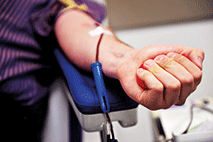
Did you know?
Only 3% of the eligible population in Ireland are active blood donors?
1 in 4 of us will need transfusions at some stage in our lives?
Blood lasts just 35 days?
The Irish Blood Transfusion Service is taking part in a global initiative with blood donor organisations across 21 countries to highlight an almost 30% international drop in people becoming blood donors compared to a decade ago. In Ireland there is a particular need for new donors as there was a 21% drop in people coming forward to donate for the first time in 2015 compared to 2010.
Visit giveblood.ie
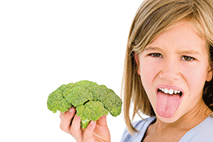
Coping with fussy eaters
In a new online poll conducted by the Irish Heart Foundation, 80% of parents admitted it was hard to get their children to eat at mealtimes, with nearly a quarter of parents having to bribe their children to eat their dinner. Here are their tips for reducing the drama at mealtimes:
It’s not a war – ‘No’ is often an attempt to get attention, so don’t panic.
Food is not a bribe – offering the promise of sweets after eating dinner sets children up to view sweets as a ‘prize’.
The Do’s and Don’ts of mealtimes – always praise your children for trying something new.
Trying (and retrying) new foods – it can take up to 10 times for children to try something new – keep offering it.
Peer pressure works – invite a friend with a big appetite to join you for dinner.
Staying calm and relaxed – keep mealtimes as relaxed as possible, and always away from the TV.
Know the triggers – look for the pattern to why your child looks for unhealthy food.

The facts: NATRUE certification
The NATRUE Label sets a high standard when it comes to defining the naturalness of cosmetic products. It helps consumers to identify natural and organic cosmetics truly worthy of that name. To date, thousands of products worldwide carry the NATRUE Label and many more are in the process of certification.

When the NATRUE Label appears on a package, you can be sure that the product it contains is not only compliant with a strict standard, but also that a reliable certification process has been carried out by independent bodies which are themselves subjected to a rigorous accreditation process with NATRUE’s partner, the International Organic Accreditation Service.
A few of the brands that are certified and carry the Natrue label are Lavera, Logona, Dr. Hauschka, Fair Squared, Weleda, Sante, Primavera, Naturalis, Irish Organics.

Khadi Amla Shampoo wins a Free-from Skincare Award 2016
Khadi Shampoo is now an award-winning natural shampoo after coming away with a silver award in the Haircare category in the Free-from Skincare Awards 2016.
And it is well deserved – this beauty of a shampoo uses natural and organic ingredients to cleanse, condition and rejuvenate the hair and scalp.
Amla is high in vitamin C, helping to add softness and shine while preventing dryness of the scalp.
It is also a source of essential fatty acids that serve to keep the hair follicles strong and nourish the hair from root to tip, and ylang-ylang essential oil helps to balance, soothe and maintain a healthy scalp.
Give this winner a try sometime.
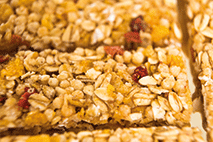
Recurring ear infections and child development
By nutritionist and CNM graduate Louise Quinlan. Louise specialises in holistic children’s health.
Children are continuously being exposed to bacteria, viruses, fungi and parasites. A strong immune system allows their natural defences to be able to fight these invaders and ward off illnesses.
When a child gets an ear infection, wax build-up is their body’s attempt at blocking the attacker. Ear infections at a young age can affect a child’s development of good speech and language as they are trying to process and listen through the wax in the ear.
Read on...
New vitamin D study
A recent study at the University of Manchester led by Professor Lesley Rhodes looked at the vitamin D levels of 130 12-15-year-olds at six schools in greater Manchester.
It assessed their exposure to sunlight and the amount of vitamin D they were getting through food. The teenagers kept records of their exposure to the sun and diet and wore sun-sensitive badges.
The study found that 16% of the test group had very low vitamin D levels in at least one season of the year. Nearly 25% failed to reach the level many experts recommend at the end of summer (when levels are normally at their peak), rising to nearly 75% in the winter.
These figures are backed up by figures from the Irish Osteoporosis Society who say that in Ireland 74% of adults and 88% of primary school children, have less than half of the recommended daily amount of vitamin D. Limited amounts of vitamin D can be found in oily fish, eggs and fortified cereals, but for many people it is sensible to take a supplement, especially as we head into winter.
More info at www.irishosteoporosis.ie

Sitting is bad for your health
A study carried out by researchers from the Norwegian School of Sports Sciences, University of Cambridge, University of Queensland, Oslo University Hospital, Swinburne University of Technology in Melbourne, Sydney University and Harvard Medical School and published in The Lancet looked at research into how sitting for long periods can increase your chance of dying earlier.
Previous studies that included information on sitting time, exercise and mortality were examined by the researchers who found that at least an hour of moderate exercise per day is needed to offset the risk of sitting down for most of the day.
People who sat for more than eight hours a day and were not active were 59% more likely to have died during the study follow-up than people who exercised and sat for less than four hours.
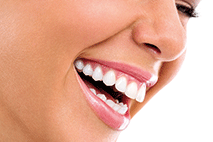
Dried fruit not bad for teeth
A new review of scientific literature undertaken by registered nutritionist Dr Michele Sadler in the International Journal of Food Sciences and Nutrition has looked at whether eating dried fruit can cause problems with dental health.
Dr Sadler highlights a number of reasons why eating dried fruit to which no sugars are added during the drying process might be a positive for dental health. Prunes contain relatively high levels of sorbitol, and a health claim authorised for use in the EU suggests that this, when used in place of sugar, can help maintain tooth mineral content.
In addition, the chewy texture of dried fruits and their delicious taste might help to promote the flow of saliva, which neutralises the negative effects of acid produced by bacteria. The review also discusses the possibility that polyphenols in dried fruit might provide anti-bacterial benefits and help to fight harmful oral bacteria present in the mouth.
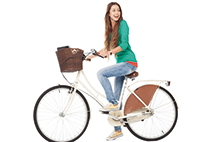
Get on your bike
A new study by researchers at the London School of Hygiene and Tropical Medicine and published in Lancet: Diabetes-Endocrinology has found that people who cycle to work typically have a lower BMI than those who walk and take other transport options. The study compared the BMI and body fat percentage of 150,000 UK men and women aged 40-69 with their normal mode of transport.
The categories were: car only, car and public transport, public transport only, car and a mixture of all other methods, public transport and walking, cycling or both, walking only, cycling only, cycling and walking. This information was cross-referenced with BMI and percentage body fat. People who cycled to work every day had a BMI about 1.7kg less than those who mainly drove to work. All methods of commuting had a lower body fat percentage than ‘car and public transport’.
Cycling to work has the added advantage of being easy to fit into your routine – and it’s much cheaper than the gym!
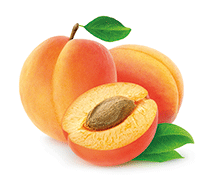
Apricot kernels pose health risk
By all means enjoy apricots, but don’t eat the raw kernel says the EFSA (European Food Safety Authority).
naturally-occurring compound called amygdalin is present in apricot kernels and converts to cyanide after eating.
Cyanide poisoning can cause nausea, fever, headaches, insomnia, thirst, lethargy, joint and muscle aches and pains, and falling blood pressure. In extreme cases it is fatal.
Based on the amounts of amygdalin typically present in raw apricot kernels, EFSA’s experts estimate that adults could safely consume one large or three small apricot kernels (370mg), without exceeding the ARfD (Acute Reference Dose).
For toddlers the amount would be 60mg which is about half of one small kernel. But safest of all would be not to eat the kernel at all.

Green music festival
This year's Electric Picnic runs from 2-4 September in the lush grounds of Stradbally Hall in Co. Laois and as well as top musical acts will feature Global Green, a pop-up ecovillage featuring cultural creatives, activists, artists, musicians, foodies, hackers, social entrepreneurs and slam poets under the Cultivate dome.
All food is sourced from within a 50-mile radius of Cloughjordan ecovillage where sustainability collective Cultivate is based. You can meet the farmers who have nurtured the soil and cultivated the vegetables, the seed-savers, the craft baker, the cooks and young food entrepreneurs.
www.electricpicnic.ie
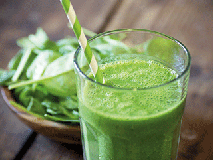
Immune boosting smoothie
By Aisling O’Kelly, Naturopathic Nutritional Therapy graduate at the College of Naturopathic Medicine
One thing everyone strives for is a healthy immune system. Eating our green vegetables is one of the best ways to do this. The good thing is, green veggies are both low in fat and calories, while being high in antioxidants, protein, fibre, calcium, iron and minerals.
Read on...
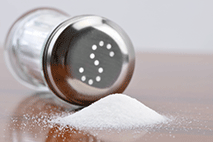
Not all salt is bad
A large worldwide study published recently in The Lancet and involving more than 130,000 people from 49 countries has found that low-salt diets may actually increase the risk of cardiovascular disease (CVD) and death compared to average salt consumption.
The study was undertaken by researchers at the Population Health Research Institute (PHRI) of McMaster University and Hamilton Health Sciences in Canada.
Professor Martin O’Donnell, a co-author on the study and an associate professor at NUI Galway said “This study … questions the appropriateness of current guidelines that recommend low sodium intake in the entire population. Until definitive trials are completed, an approach that recommends salt in moderation… appears more in-line with current evidence.”
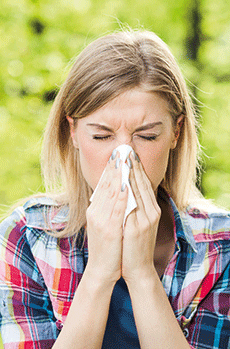
Help for hay fever sufferers
For the 20% of people in Ireland who suffer from hay fever the increased pollen count in the summer can mean misery and discomfort. Here Rude Health gives you some top tips for coping with hay fever:
Be forewarned – check www.met.ie for the next day’s pollen forecast.
Stop pollen – with a barrier cream applied around your nostrils.
Don’t mow your lawn – ask someone else to do it for you.
Hot wash – sheets, pillow cases and duvet covers every week.
Hoover it – regular vacuuming will help keep pollen levels low.
Close up – keep windows and doors closed to help keep pollen out.
Cut out dairy – avoiding mucus-forming foods can make a difference.
Ask for health store help – there is a whole range of natural products that may help:
Eyebright – for itchy eyes and general eye irritation
Quercertin – a natural anti-histamine.
Tinctures that can help hay fever include chamomile, echinacea and elderflower.
Eat honey – unfiltered raw local honey contains pollen grains which can help.
Foods to relieve your PMS symptoms
By CNM Naturopathic Nutritionist Karla Bohan. Karla specialises in weight management and sports nutrition.
Pre-menstrual syndrome and menstruation have been associated with symptoms that can leave you feeling miserable.
These are caused by changes in hormone levels and may include: fluid retention, bloating, abdominal pain, mood swings, irritability, headaches, breast tenderness, food cravings, and appetite changes.
Read on...

What you think of Rude Health
We are delighted to announce the results of our third Rude Health magazine reader survey. Thanks again for responding to our annual survey, we appreciate your feedback. We asked you for your ages and found that the majority of you, 58%, are aged between 31 and 50; 20% are 51-6, 21% are aged 18-30. 92% of you are female.
The majority of you at 48% are professionals with 25% home makers and 12% doing clerical work. Social media is popular with 69% involved in Facebook and 27% Twitter.
You, our readers are, not surprisingly, regular shoppers in Irish health stores with 29% spending €31-€60 per month, 16% spending more than €60 and 35% spending €21-30 on natural products.
Their local health store is where 93% of you pick up your copy of the magazine and 25% of you read it online. The magazine has 57,250 readers.
In terms of which features of Rude Health magazine are most valued by readers, 65% said that articles on nutrition are their main interest, 39% consider beauty features to be important, 59% like home cooking and baking, 31% enjoy outdoor exercise and fitness, 37% like to read about natural parenting. Celebrity interviews also rated highly as did competitions.
Some of the great things you said about the magazine:
“I like the information on new products and recommendations from shop staff on products they like.”
“I like alternative therapies, exercise and healthy food so it ticks all the boxes for me.”
“I like to pass it on to a few friends and they have been inspired to become a bit more eco and natural.”
“It makes me aware of products in health shops that I wouldn’t normally find out about.”
Speaking of competitions, congratulations to Liz O’Connell from Galway (pictured above) who wins a €200 Australian Bush Flower goodies hamper as part of Rude Health magazine’s reader survey 2015.
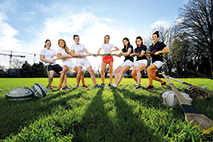
Irish women and PMS
A survey undertaken by Cleanmarine for Women has found that 42% of women find that PMS symptoms prevent them from participating in their usual weekly exercise.
The survey also found that a whopping 90% of Irish women felt that PMS prevented them from being their very best self.
Symptoms suffered included anxiety, bloating, breast tenderness, fatigue and irritability with one-third of those who suffer from PMS having to take a minimum of one day off work over the past 12 months due to the severity of their symptoms.
Cleanmarine for Women is a natural and effective long-term solution for ladies affected by PMS containing Omega 3 Krill Oil, Soy Isoflavones plus Vitamins B1, B2, B6 and D3.
The dangers of energy drinks
A new report by safefood into energy drinks in Ireland has found a massive increase in the number of products on sale and some brands containing up to 16tsp of sugar. Males aged 15-24 were the highest consumers of energy drinks (64%) and over half of those who consumed energy drinks (54%) consumed them at least once a week or more frequently.
Dr Cliodhna Foley-Nolan, Director, Human Health & Nutrition, safefood commented “A typical small 250ml can has sugar levels of 6tsp per can which is equivalent to a full chocolate bar. Safefood’s position continues to be that these drinks are not recommended as a mixer for alcoholic beverages, not suitable for children under 16 or for rehydration purposes following sport.”
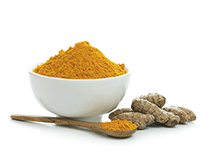
Did you know?
Turmeric is derived from the underground stems of the plant curcuma longa, a member of the ginger family. It is responsible for the yellow colour of Indian curry and American mustard.
Curcumin, which has powerful antioxidant and anti-inflammatory properties, is the most active constituent of turmeric.
For thousands of years turmeric has been prized as a natural remedy for arthritis and it has been shown to work very well in modern studies. The whole turmeric root contains hundreds of phytonutrients, not only curcuminoids – its properties are anti-oxidant, anti-inflammatory, anti-arthritic, anti-depressant, anti-ageing, anti-diabetic, anti-microbial, wound-healing and memory-enhancing.
Turmeric thins the blood and is the herb of choice for inflammation and digestive disorders.
Apart from adding turmeric to your food – it’s great in stews, soups and cooked in rice – you can now buy curcumin extracts.
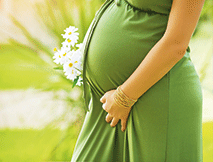
How to have a green pregnancy
To avoid exposing your precious unborn baby (and yourself) to unnecessary environmental hazards why not consider these tips?
- Drink filtered water
- Wash or peel all your fruit and vegetables before eating
- Choose organic food where possible
- Heat up food in crockery rather than plastic boxes
- Choose natural toiletries and cosmetics
- Clean your home with natural cleaning products
- Limit the amount of time you spend on the computer or mobile phone
- Avoid places with smoky or polluted air
- Walk outside in green spaces when you can
Green politics
The 2016 general election brought some welcome results for green activists in Ireland. After five years with no green TDs in the Dáil, Green Party leader Eamon Ryan topped the poll in Dublin Bay South and deputy leader Catherine Martin was elected in Dublin Rathdown.
Let’s see whether they can influence the incoming government.
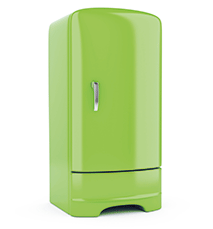
Get fridge-wise
How you refrigerate your food can make a big difference to the amount of electricity you use, affecting your electricity bills, and how much food you end up throwing away. So why not follow these simple tips:
- Keep your fruit and vegetables in the fridge, to avoid them going off quicker and having to be thrown out.
- Once opened, wrap up cheese, ham etc really well in foil or plastic wrap or put them in a sealed container in the fridge to prevent them drying out and getting spoiled.
- Wrap herbs in baking paper and then in cling film and store in the fridge – they will last longer. That’s what the Italians do with basil.
- Keep bread in a bread bin with a lid – storing it in the fridge just makes it go hard.
- Use your freezer more – if you are unlikely to eat leftovers within a couple of days store them in an airtight box and freeze for later.
- Check your freezer setting – many fridges are just not cold enough to keep food fresh. It needs to be set at below 5°C.
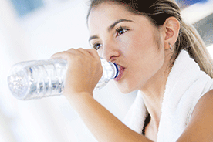
What our bodies need after exercise
By Norma Carroll, Nutritional Therapy graduate of CNM
Good nutrition is vital for optimal sports performance and maintaining peak physical and mental health. Adequate recovery from exercise is important to maintain consistent athletic training, and to prevent athlete burnout or injury. What we eat after exercise can have an impact on muscle recovery and energy levels. It can also impact future performance.
Read on...
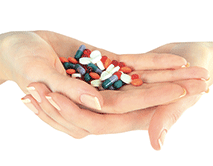
Irish women agree beauty comes from within
According to an independent survey by Perfectil carried out by iReach 92% of Irish women agree that nutrition is central to achieving optimal skin, hair and nail health and 84% of men agreed.
While 48% of adults said they take a targeted supplement, 52% admit that they have never taken a supplement for their hair, nails or skin. Not surprisingly women are twice as likely as men to take a beauty supplement, with 60% saying they have taken a supplement compared to just 36% of men. The survey shows that 18-34-year-olds are the biggest cohort when it comes to taking beauty supplements.
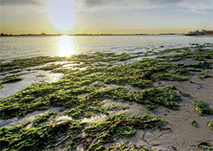
New food standards for seaweed
An international review of research studies into seaweed for human food was published recently in the peer-reviewed scientific journal Phycologia. The scientists looked at the dietary and health benefits of more than 30 species of seaweed, including the common brown wrack (such as Fucus or Bladderwrack, and Carragheen or Irish Moss), which are abundant around our Atlantic shores.
The scientists called for standards to be implemented and said “Rigid controls need to be in place to ensure the health, safety, consistency and traceability of commercial products containing seaweed”.
During the past few years, the Seaweed Health Foundation has been working with seaweed producers and the Biodynamic Association to develop a new international standard for Nutritious Food Seaweed. For the first time, the standard seeks to ensure that consumers will have the nutritional profile of seaweed products, together with adequate data to satisfy themselves of their total quality and safety.
From provenance and selection through to processing and packaging, the standard will include environmental sustainability and food safety criteria enabling seaweed products to comply with food and health regulations and to succeed in global markets.
The new Nutritious Food Seaweed Standard will embrace artisan collection and drying, mechanical wild harvesting and processing, as well as modern cultivation technologies. The first producer of human food seaweed where the new standard is being applied is Seagreens®.
For more info www.seaweedhealthfoundation.org.uk
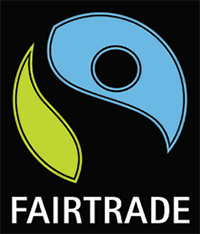
20 years of Fairtrade in Ireland
20 years ago the first Fairtrade-certified product was created in partnership with Bewley’s and Fairtrade Ireland. Bewley’s sourced Fairtrade-certified coffee directly from farmers in Costa Rica.
When you buy products with the Fairtrade Mark, you support farmers and workers as they work to improve their lives and their communities. The Mark means that the Fairtrade ingredients in the product have been produced by small-scale farmer organisations or plantations that meet Fairtrade social, economic and environmental standards. The standards include protection of workers’ rights and the environment, payment of the Fairtrade Minimum Price and a Fairtrade Premium to invest in business or community projects.
Fairtrade works to benefit small-scale farmers and workers, who are amongst the most marginalised groups globally, through trade to enable them to maintain their livelihoods and reach their potential.
For certain products, such as coffee, cocoa, cotton and rice, Fairtrade only certifies small-scale farmer organisations. Working through democratic organisations of small-scale farmers, Fairtrade offers rural families the stability of income which enables them to plan for the future. For products such as bananas, tea and flowers, Fairtrade also certifies plantations that employ large numbers of workers on estates. Ensuring decent working conditions and strong worker rights is central to Fairtrade’s work.
During Fairtrade Fortnight (29 February to 13 March) look out for and support any Fairtrade breakfasts in your community and drop into your local health store which may be holding talks and events.
Read our Fairtrade Fortnight feature here...

Protecting your circadian rhythm from the influence of technology
By Nutritional Therapist Alan Flanagan, graduate of CNM
Your circadian rhythm is an internal mechanism which regulates your sleep-wake cycles, and the physiological functions that occur around that 24-hour cycle, influenced by the hormone melatonin.
Read on...
Irish dental habits revealed
A new survey has revealed that nearly half of Irish adults are ‘too tired’ to stick to their daily dental regime. In the study undertaken by healthcare company GSK almost half (49%) of all adults questioned said that they have gone to bed at night without brushing their teeth. Other reasons for skipping parts of their regime included forgetfulness (40%), laziness (36%), and running late for work (12%).
The survey of 500 Irish adults found that 49% of Irish people are embarrassed by their smile; 51% said this is because they are embarrassed by the colour of their teeth, while 28% said they were embarrassed because their teeth looked 'wonky'.
Cost was revealed as the biggest reason why people delayed trips to their dentist with 38% saying that they cannot afford it. A further 21% admitted they have delayed their dental checkups as they are genuinely afraid of the dentist or suffer from ‘dental fear’. Visit www.LoveYourMouth.co.uk to find out how you can improve your oral health.
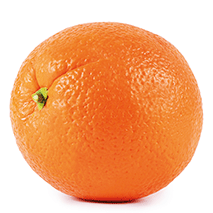
Did you know?
Cellulite plagues thousands of women in Ireland, leaving many feeling self-conscious about exposing their bodies and often feeling lost as to how to rid themselves of pesky lumps and bumps.
Many social myths surround the causes of cellulite, but cellulite can happen to anyone, regardless of shape or size. The exact cause of cellulite is not yet known, although because it is more predominant in women it is thought to be partly due to hormonal changes. However, genetics, inflammation and to some degree lifestyle may also be a factor. The appearance of cellulite is due to a weakening of the connective tissue beneath the dermis.
This allows the underlying fatty tissue to protrude through, giving the puckered, dimpled appearance which most of us detest and are on a constant quest to eradicate!
Many do not realise the benefits which can be gained by strengthening our skin tissue and preventing the breakthrough of these fatty build-ups beneath our skin. Collagen is the substance which gives our skin elasticity, firmness and tone, and its production is directly affected by vitamin C. A recent study conducted by Princeton Consumer Research showed that Altrient C, the world’s first liposomal vitamin C gel supplement, increased skin elasticity and firmness by 61% in just 12 weeks.
www.abundanceandhealth.co.uk
Apple shapes more unhealthy
Researchers from the Mayo Clinic in the US and the University of Ottawa in Canada have undertaken a major new observation study tracking more than 15,000 adults to look at the effect of body size on mortality. The study was published in Annals of Internal Medicine.
Researchers looked at body mass index (BMI), which assesses overall body weight and waist-to-hip ratio (WHR), which is the result of dividing the circumference of the waist by the circumference of the hips to provide a measurement of abdominal (belly) fat.
The researchers found that people with a normal BMI but a large WHR were at a higher risk of dying when they tracked them in following years compared to people who had a smaller WHR. However, only a small number of people were found to be in this high-risk category.
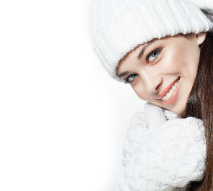
Boosting energy through the winter months
By nutritional therapist Honor Geraghty, graduate of CNM
There are times when all of us feel the need for an extra boost of energy, maybe more so during the winter months. The shorter days can make it more difficult to exercise, and people are more likely to choose stodgy type foods - these combined can contribute to dips in energy levels and lower moods. The answer is not to turn to stimulants (such as tea/coffee/sugar), these will only give you a temporary lift followed swiftly by a sudden crash.
Read on...
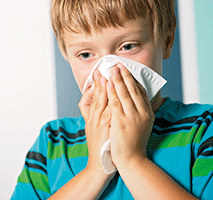
Link between probiotics and cold prevention in children
A new consumer survey of 1,000 parents of primary school age children in the UK has found that two-thirds of children took days off school due to the common cold last year. More than 50% of those who went to the doctor were prescribed antibiotics, despite new guidance from NICE (the National Institute for Health and Care Excellence) that doctors should tell patients when antibiotics are inappropriate and discuss other treatment options.
In a related study 69 healthy children aged 3–6 years attending preschool in Slovakia were recruited into a double-blind, randomised, placebo-controlled pilot study undertaken by the Bratislava Medical School and commissioned by ProVen Probiotics and published in the European Journal of Clinical Nutrition September 2015.
Fifty seven of the children received daily either one Fit for School chewable tablet containing the Lab4 probiotic consortium and 50mg vitamin C or an identical looking placebo tablet. The Fit for School tablets were shown to be consistently effective in reducing the occurrence and duration of sore throats, coughs and colds amongst primary school children.
For more see www.provenprobiotics.co.uk
Unsaturated fats still the best
Researchers from Harvard Medical School and the Wellness Institute at Cleveland Clinic have conducted an observational study of more than 100,000 individuals to look into how much saturated and unsaturated fats they consumed and how this affected heart health.
The individuals were asked what type of oil they used for frying and baking, and if they used any margarine during the past year. There were then follow-ups several years later to observe heart health. The researchers concluded unsaturated fats such as those from vegetable oils, nuts and seeds and high-quality carbohydrates, such as wholegrains, can be used to replace saturated fats to reduce the risk of heart disease.
They did, however, have some concerns that when people decrease their consumption of saturated fats they appear to increase their intake of low quality carbohydrates containing added sugars. The study was published in the Journal of the American College of Cardiology.
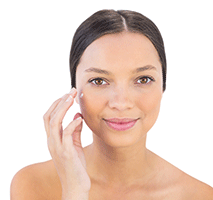
Did you know?
The mineral silica which contains the element silicon is the second most abundant element in the earth’s crust and is found in plants, animals and most living organisms. Silicon is essential to all living beings for developmental, structural and functional requirements, is essential for the production of collagen and unfortunately levels decline as we age.
Food sources of silicon include bananas, leafy greens and grains, however many of us do not get enough from our usual diet and supplementation may be necessary. Now supplement manufacturers have developed silica supplements designed to aid in maintaining a youthful complexion by replenishing the body’s stores of silica, whilst also revitalising skin and strengthening and promoting hair and nail growth. A real way of boosting beauty from the inside.
See www.qsilica.co.uk
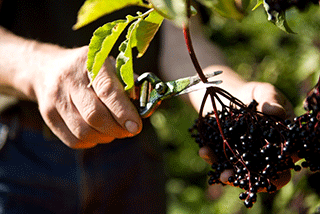
Studies show elderberry works
September and back-to-school time usually mean that the cough, colds and 'flu season are just around the corner. But an effective way to help deal with the sniffles – and one of Europe's oldest traditional remedies – is elderberry, studies have shown.
A team from the University of Giessen in Germany conducted an in vitro study on the two major viruses – Influenza A and B – in 2010 as well as on four bacteria that cause upper respiratory infections. Findings of a second, human study were published in July this year. Both concluded that "elderberry liquid extract is active against human pathogenic bacteria as well as influenza viruses."
Elderberry research has shown that it boosts immunity by increasing the production of vital proteins in immune cells. These proteins are released when our bodies come under attack, and provide a co-ordinated response to oncoming illness.
Read our feature "Beat those bugs" here
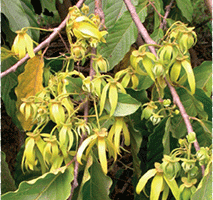
Did you know?
Madagascar is not just where the ring-tailed lemur comes from, it is also a major producer of organic spices and oils. In 1979 Jean- Claude Pichot from France, a distiller of wild and organic plants started working there. His company Golgemma joined the Bio equitable (fair trade) Association in 2004.
Working with subsistence farmers in Madagascar, Pichot found that once they had cash crops they stopped growing their own food, so if crops failed or prices collapsed they were worse off than before. This led him to an understanding of the need for a more complex and close relationship with his producers and in co-operation with local businesses, he started a fair trade operation producing spices, vanilla and essential oils. They also grow rice and support micro credit schemes for local producers and crafts people.
Since 2010 they have been certified by Ecocert both for organic status and for the ESR – Fair trade, Solidarity and Responsibility Standard. The oils produced include clove bud, fresh ginger, lemongrass, vetivert, ylang ylang and a mellow patchouli, essential oils used for perfumery, aromatherapy and flavourings. Irish company Atlantic Aromatics sell these oils under their oil label.
Plant sterols lower cholesterol
New research undertaken in the Department of Internal Medicine at Comenius University Bratislava by scientists Sabaka P, Caprnda M, Balaz D, Komornikova A, Gaspar L and Dukat A and presented at the 83rd European Atherosclerosis Society Congress in Glasgow has shown that plant sterols taken in tablet form are an effective treatment in cholesterol management. It has been shown that consuming plant sterols in a dosage five times higher than the average dietary level contributes to a significant decrease in the blood LDL ‘bad’ cholesterol level.
The three month study with 93 participants (41 men, 52 women) showed positive results when taking one Zerochol tablet, twice daily (1.6g plant sterols daily): 12% reduction in total cholesterol and 17% reduction in LDL cholesterol. Zerochol contains natural plant sterols, which are naturally-occurring substances found in plants. There are no secondary side effects and no known interaction with medications. Plant sterols do not interfere with cholesterol-lowering medications.
Find out more at: www.zerochol.ie/register
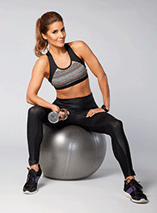
Star tip
As it is Irish Heart month this September Rude Health magazine asked TV presenter Amanda Byram for her favourite health snack. “I am a big fan of working out! Rope skipping is free and a brilliant HIIT (High Intensity Interval Training) exercise. It gets your heart working and will maximise fat and calorie burn. Postworkout I always love to snack on seeds. They are nutritious, healthy and great for building lean muscle as well as looking after your heart.”
See www.9BAR.com and www.irishheart.ie
Seaweed shown to improve iodine levels
Independent research at Glasgow University organised by the Seaweed Health Foundation and published in the British Journal of Nutrition has revealed that low-level seaweed supplementation improves iodine levels in iodine-insufficient women with no adverse effect on thyroid function. Combet E. et al. monitored the iodine levels of women taking dried granules of Seagreens wild wrack seaweed and noted a 60% average improvement in their iodine uptake.
Iodine is a mineral that contributes to normal thyroid, nervous system and cognitive function, the normal growth of children, normal energy-yielding metabolism, and the maintenance of skin. Although obtainable from natural fish, meat and dairy products, certain sea vegetables are the ideal source.
For more information www.seaweedhealthfoundation.org.uk and www.seagreens.co.uk.
New hope for hair loss
A new clinical paper published in the leading peer-reviewed Journal of Applied Cosmetology is the result of 28 years of leading peer-reviewed scientific testing and research across multiple continents and the consolidation of 56 studies into the influence of specific proteoglycans in the treatment of hair ageing over that time.
The study has concluded that a unique active ingredient in hair loss product Nourkrin is the key to helping reverse the process of hair loss. This ingredient, Marilex, has been proven to reverse the process of hair loss through stimulating dormant follicles back into the growth phase.
For more visit www.nourkrin.com.
Irish workers want bosses to respect health
86% of respondents in a One4all survey of 1,000 workers said that maintaining a healthy workforce is not a top priority for their boss.
Almost four in 10 workers (38%) say that they have regularly felt stressed because of work in the past year. Employees also rate wellness programmes highly and 72% of employees said that they would be more likely to stick with a company that cared about their health.
Other findings in the research show that in the recovering economy Ireland’s workers can’t switch off, with over four in 10 workers regularly working through lunch. Check out www.bikes4work.ie
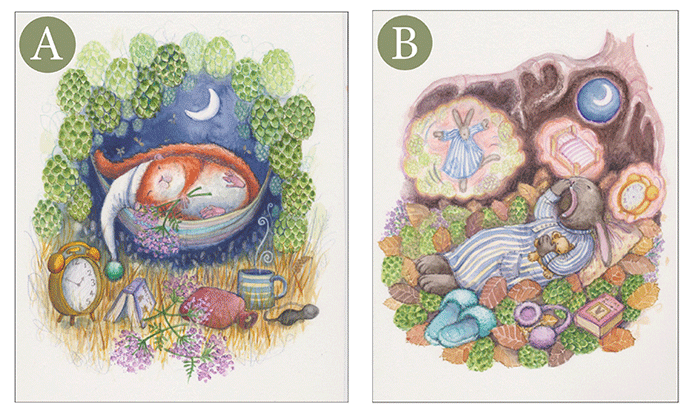
Sleep caption competition winners announced
Earlier this year, Rude Health magazine teamed up with A.Vogel, creators of Dormeasan Sleep Valerian-Hops oral drops to launch a fun competition.
Based on the theme of sleep, the competition, run jointly with our sister title Your Healthy Living, introduced readers to Valerian the dormouse and Hops the bunny, and invited you to come up with a fun caption based on their images.
We were delighted with the number of entries we received and the creativity of the captions you came up with. Overall winner was Laura from Bristol who scooped the €340 prize, but two Rude Health readers took €70 runner-up prizes.
Aisling from Dublin's caption was: "A dormouse named Valerian (a committed vegetarian), peacefully drifted asleep, sound and deep"; Colette from County Limerick's entry was "Hops the bunny, his days are full and sunny, thanks to A.Vogel which keeps him running".
Congratulations to our winner and runners-up, and thank you to all our readers who entered the competition!
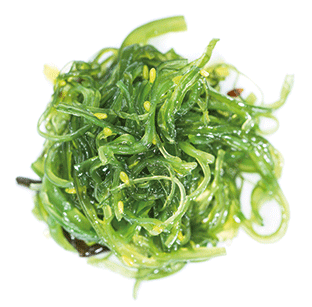
Get the lowdown on seaweed
The nutritional properties of seaweed and the various ways it's beneficial for our health are well known, and this September will see the third annual Seaweed for Health event taking place.
Attendance at the event, which is the leading national public seaweed event in the British Isles, has grown each year, and this year's will feature talks, exhibits, demonstrations and much more.
The venue is the Royal Botanic Gardens, Edinburgh, the dates 5th and 6th September, from midday to 4pm.
For more information, visit www.rbge.org.uk/whats-on
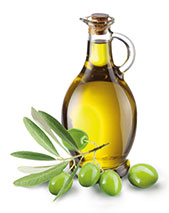
Mediterranean diet tops again
A study of older adults in Spain published online by JAMA Internal Medicine has found that adding antioxidant-rich extra virgin olive oil or mixed nuts to the plant-based Mediterranean diet can improve cognitive function linked to a lower risk of dementia.
Emilio Ros, M.D., Ph.D., of the Institut d'Investigacions Biomediques August Pi Sunyer, Hospital Clinic, Barcelona, and Ciber Fisiopatología de la Obesidad y Nutrición (CIBEROBN), Instituto de Salud Carlos III, Madrid, and co-authors compared a Mediterranean diet supplemented with olive oil or nuts with a low-fat control diet.
The randomised clinical trial resulted in 37 cases of mild cognitive impairment: 17 (13.4 percent) in the Mediterranean diet plus olive oil group; eight (7.1 percent) in the Mediterranean diet plus nuts group; and 12 (12.6 percent) in the low-fat control group. No dementia cases were documented in patients who completed the study follow-up.
Researchers stated that more research is needed.
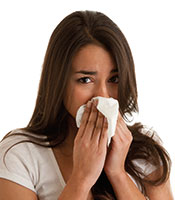
Probiotic link to hay fever?
Researchers from the University School of Medicine in Nashville, USA have analysed the results of 23 trials into the effect of probiotic supplements on allergic rhinitis, a common symptom of hay fever.
Their research found that when combined with other treatments probiotics were beneficial in 17 of the 23 studies, but more research is still needed.
The research conclusions were published in the peer-reviewed medical journal International Forum of Allergy and Rhinology.
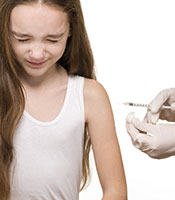
Child vaccination in Ireland
According to a new GSK survey 99% of parents in Ireland vaccinate their children against all diseases recommended to them. However, just 44% said they are aware of which diseases their children are vaccinated against.
Nearly a third (31%) mistakenly thought that Meningitis B was currently covered by the national immunisation programme, while some parents thought their child had been immunised against rotavirus (12%) and seasonal influenza (10%).
Furthermore, 60% were not aware that tetanus, and Hepatitis B were included in the programme. One third of parents (35%) say they are not well-informed on how vaccines work, however 87% say they are aware that not vaccinating your children puts others at risk.
Friends help your health
New research from Brigham Young University published in Perspectives on Psychological Science has revealed that loneliness and social isolation are just as much a threat to living to a ripe old age as obesity. In the study scientists led by Julianne Holt-Lunstad analysed data from a number of health studies with more than 3 million participants. Co-author of the study Tim Smith said: “With loneliness on the rise, we are predicting a possible loneliness epidemic in the future.”
The study authors suggested that online communication and texting lacks emotional depth and keeping in touch with others in person is better for our health, although technology does help us to communicate with people far away.
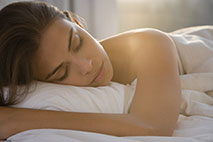
CBT an aid to better sleep?
Researchers from Northumbria University, Newcastle University and the University of Pittsburgh in the US have conducted a randomised controlled trial to examine the use of a single session of cognitive behavioural therapy (CBT) for insomnia. CBT is a therapy where a therapist will talk to a person and examine the way they think. The study was published in the peer-reviewed medical journal, Sleep.
The study recruited 40 adults with short-term insomnia and either gave them a session of CBT or not. They were asked to keep a sleep diary which was assessed after four weeks. The study shows that 60% of the group who had CBT experienced some improvement in insomnia compared with 15% of the group that did not.
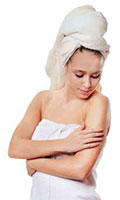
Magnesium best as oil
What do the main superfoods such as blueberries, nuts, seafood, dark green vegetables, fish and dark chocolate to name a few have in common?
They all contain a vital mineral many of us are deficient in – magnesium.
Magnesium is vital for the proper working of nerves and muscles. It is essential for heart health and helps control blood pressure and blood sugar. Deficiency leads to problems such as migraine, irritability, anxiety, extreme fatigue, insomnia, irregular heartbeat and lack of concentration.
A clinical trial by Cardiff University showed how well magnesium is absorbed through the skin using magnesium in oil form compared to oral supplements. So it seems rubbing oil into your skin after a shower is an easy way to boost your magnesium levels.
Irish fertility study yields results
Wexford-based nutritional supplement manufacturer Pillar Healthcare has got together with fertility specialist ReproMed Ireland for Europe’s first-ever clinical study on the impact of nutritional supplements on male and female fertility.
The study, led by ReproMed director Declan Keane took three months and involved 20 Irish couples who have been unable to conceive taking nutritional supplement preConceive over a 90-day period with tests before and after.
Independent analysis of the findings showed that more than eight out of 10 Irish men showed improvements in their sperm motility as well as reduced cell damage to their sperm. Results were presented to the Association of Clinical Embryologists in Birmingham.
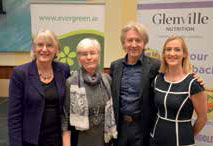
Experts talk to popular Evergreen event in Dublin
Hundreds of people turned up at the Radisson Blu hotel in Dublin on a Sunday in March for an event organised by Evergreen Healthfood Stores. At the event there were seminars from two of the UK’s leading natural healthcare experts.
Dr Marilyn Glenville spoke to a large crowd of both men and women about improving their physical and mental health through good diet and nutrition.
Author and expert Patrick Holford came on after lunch and spoke for two hours to a captivated audience about beating stress and fatigue. He spoke about supplements that could help balance blood sugar, maintain energy and improve sleep.
PMS study finds relief in krill oil
A new open-label Irish pilot study has examined the effectiveness of a krill oil supplement with added vitamins and phytonutrients on the symptoms of PMS.
Undertaken by Michael P Wakeman at the University of Birmingham and published in Nutrition and Dietary Supplements, the study was conducted with 29 Irish women who suffered from common PMS symptoms including anxiety, bloating, mood swings, breast tenderness, skin outbreaks, food cravings, fatigue, forgetfulness, insomnia and headaches.
The study revealed an overall 44% improvement in symptoms reported by the women who took the supplement, which includes omega 3 fatty acids, rosemary oil, soy isoflavones, vitamin D3 and B vitamins, for a three month period and then completed a self-assessment questionnaire. A larger placebo-controlled trial is now planned.
For more information see www.cleanmarine.ie/womens
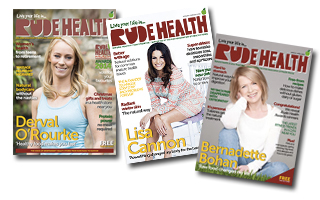
What you think of Rude Health
We are delighted to announce the results of our second Rude Health magazine readers survey. We asked our readers for their ages and found that the majority, 50%, are aged between 31 and 50; 20% are 51-60 and 13% over 60. The majority at 33% are professionals with 19% home makers and 16% doing clerical work.
Social media is popular with 64% involved in Facebook, 29% Twitter, 21% using Pinterest and 16% Google. Our readers are, not surprisingly, regular shoppers in Irish health stores with 33% spending €31-€60 per month, 26% spending more than €60 and 23% spending €21-30 on natural products and a whopping 56% visiting their local health store every week.
Their local health store is where 86% of Rude Health readers pick up their copy of the magazine with 7% of copies being passed on from family and friends, and 6% reading it online. The majority of readers at 30% read every issue of the magazine and 53% pass on their copy to others.
Over 21% of copies of Rude Health are read by four people, 15% by three people and 40% are read by two people, meaning that the magazine has 57,250 readers. In terms of which features of Rude Health magazine are most valued by readers, 43% said that articles on improving your health are essential, 23% like news and 23% enjoy green living pages. 36% of readers said they think research and reviews are important and 31% consider beauty features (looks) to be important. Celebrity interviews also rated highly as did competitions.
Speaking of competitions, congratulations to Lucy Robus from Coolaney who wins a fabulous Strandhill, Co Sligo experience for two worth €325.
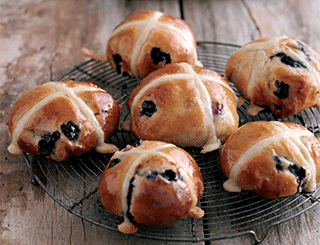
Beat the bloat this Easter
If Easter Sunday family lunch leaves you feeling bloated and uncomfortable you are not alone. During the Easter holidays we are inclined to eat more sugary, fatty and rich foods – with research suggesting that the average adult ploughs their way through 6,000 calories on Easter Sunday alone.
It's hardly surprising that many people suffer from digestive issues - such as indigestion, bloating and wind - at this time of year...
Read on...
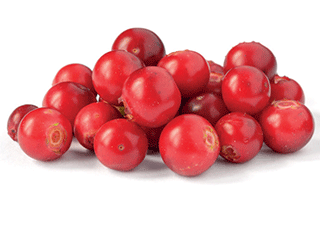
Bilberries help prevent inflammation
Eating bilberries can reduce the adverse effects of a high-fat diet, according to a recent study at the University of Eastern Finland in Kuopio published in Plos One.
For the first time, bilberries were shown to have beneficial effects on both blood pressure and inflammatory responses linked to nutrition. The study focused on the health effects of bilberries on mice that were fed a high-fat diet for a period of three months. Some of the mice were fed either 5% or 10% of freeze-dried bilberries in their diet.
The researchers assessed the effects of the diets by looking at inflammatory cell and cytokine levels, systolic blood pressure, glucose tolerance, insulin sensitivity and weight gain. Mice on the high-fat diet experienced significant weight gain and detrimental changes in glucose and lipid metabolism, inflammation factors and blood pressure. Bilberries reduced the inflammatory effects of the high-fat diet and also prevented elevated blood pressure caused by the diet.
Bilberries are the first wild berries to ripen in Ireland and traditionally celebrated on Fraughan Sunday, the last Sunday in July, as part of the pre-Christian Celtic festival of Lughnasa.
They are found where heather grows on mountain slopes, hillsides and heaths.
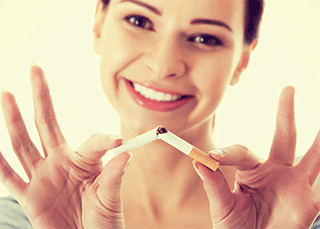
Still better to quit smoking
It is still healthier to give up smoking and gain a few pounds than keep smoking to keep your weight down - these are the findings of a recent study at the Health Examination Center of Moriguchi City in Osaka, Japan and presented at the American Heart Association's Scientific Sessions 2014.
The study found that people who put on more than 2 kgs/4lbs 6 oz after quitting smoking were still 26% less at risk of death compared to smokers. The study compared the deaths of 2,803 Japanese smokers with 1,305 Japanese adults who stopped smoking. The people who no longer smoked were split up into 362 people who did not put on weight after stopping smoking; 458 who gained no more than 2kg and 485 who gained more than 2kg.
People who stopped smoking and did not put on weight had a 34% lower risk of dying; those who put on 2kg or less had a 49% lower risk and those who put on more than 2kg had a 26% lower risk of death.
Oregano, the wonder herb
A study published in Experimental and Toxicologic Pathology has found that oil of oregano produces positive results against colitis, an inflammation in the gastrointestinal system.
The research suggests that oil of oregano, extracted from only two specific species of plant, has health properties that help to kill bacteria, helping to among other things, heal bee stings, athlete’s foot and nappy rash.
Oil of oregano also contains calcium, zinc, boron, vitamins A, C, and E, potassium and iron. In order to ensure the effectiveness of oregano oil you need to make sure it contains at least 70% of its active ingredient carvacrol.
Oil of oregano is sold as an oil or as tablets. Avoid if you are allergic to oregano, thyme, basil, mint or sage. It’s also a good idea to take an iron supplement as it can reduce iron in the body, so should be avoided by pregnant women.
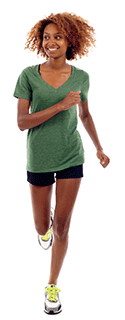
Is jogging good for you?
A study was carried out by researchers from Frederiksberg Hospital in Denmark and other research centres in Denmark and the US, funded by the Danish Heart Foundation and published in the Journal of the American College of Cardiology has studied the habits and health of 1,500 healthy joggers and healthy non-joggers taking part in the Copenhagen City Heart study.
Over a period of two years, they were studied to assess their risk of illness and death. Joggers were categorised as light, moderate or strenuous joggers. When the researchers analysed their jogging and how many died, they found that the joggers least likely to die were those light joggers who jogged up to three times a week – they were less likely to die than sedentary non-joggers.
But those joggers who ran more than three times a week, categorised as strenuous joggers, had the same risk of death as non-joggers.
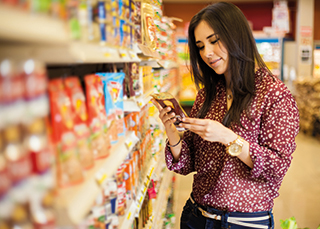
Better labelling of allergens
Great news for people who have coeliac disease and need to avoid foods containing gluten and for others with sensitivities to certain foods.
The new EU Food Information for Consumers Regulation, which came into force in December 2014, now requires food businesses to provide information on ingredients which are allergens.
This means that restaurants, cafés, deli counters, bakeries and sandwich bars will all need to inform customers if any cereals containing gluten (wheat, barley, rye and oats), crustaceans, eggs, fish, peanuts, soybeans, milk, nuts, celery (and celeriac), mustard, sesame, sulphur dioxide, lupin and molluscs are included in the ingredients in the food they serve.
If the food is not packaged, this can be communicated to customers in writing on menus or verbally through explanations by staff.
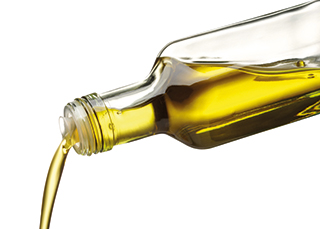
Olive oil a heart winner
A recent study led by Dr Bill Mullen of the Institute of Cardiovascular and Medical Sciences at Glasgow University has revealed that consuming olive oil could cut the risk of heart issues after about six weeks.
Scientists measured how taking about four teaspoons of olive oil per day in a group of 69 men and women who didn’t normally take the oil reduced scores for coronary artery disease (CAD) when using a CAD scoring system.
Olive oil contains healthy polyunsaturates with omega 6 fats. The report was published in The American Journal of Clinical Nutrition.
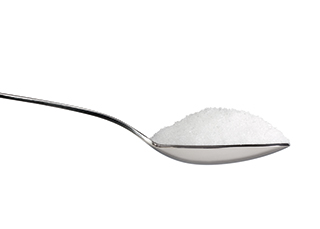
Too much sugar is stressful
We know that consuming too much sugar can lead to weight gain but a new study has revealed that it can lead to depression and stress too.
The study led by lead author Constance Harrell of Emory University in Atlanta, US involved teenage and adult rats being given a normal diet or one high in fructose, a form of sugar.
After 10 weeks the rats were put into stressful situations and the scientists measured their reaction. They found that the rats on the fructose diet showed more stressful behaviour. The scientists found that too much sugar stimulates pathways in the brain which in turn affect its response to stress, and if developed in teenage years can lead to increased susceptibility to stress. Stress carries its own heath risks – increased risk of heart issues, immune system suppression and elevated blood pressure.
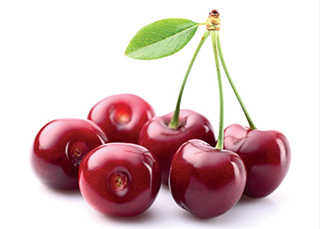
Cherry concentrate eases gout
According to new research from Northumbria University researchers, drinking Montmorency cherry concentrate significantly helps to reduce the effects of the painful condition gout. The study, published in The Journal of Functional Foods, found that after drinking a Montmorency cherry concentrate, uric acid levels in the body significantly reduced in just a few hours.
Gout occurs when excess uric acid, a naturally-occurring substance found in the body, crystallises in the joints. It is an extremely painful condition that can be debilitating for sufferers. Tart Montmorency cherries are proven to be extremely rich in a number of plant compounds that possess anti-inflammatory and antioxidant properties.
According to Dr Glyn Howatson, “This is an exciting first step to applying this intervention to a clinical population that suffer from gout. While the condition can be managed with pharmacological agents, more and more people are increasingly reluctant to use them because of potential side effects and are keen to use natural interventions.”
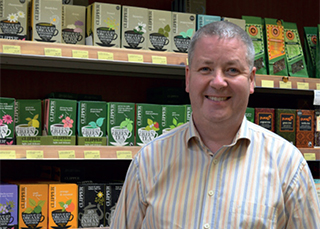
Only Natural on the web
Independent health store Only Natural, which has been open for almost 30 years in Wexford town, has recently launched a new website www.onlynatural.ie. It provides useful content and valuable rewards for customers through a blog, loyalty scheme and monthly newsletter.
Loyalty card holders can avail themselves of exclusive monthly offers notified in advance through the newsletter. The newsletter keeps all those interested in natural health up to speed on developments in the world of complementary medicine and also highlights new product introductions, interviews with in-store therapists and monthly events centered around particular ailments. A popular feature is a monthly recipe.
Gerald Colfer, Owner Only Natural says, “we run a myriad of events in store every month and encourage our customers to engage with us online as well as in-store so that we can keep them notified of events and offers that are of interest to them.”
IAHS Annual Training Awards
Since its formation in 1986, the Irish Association of Health Stores has recognised the need for a professional and ethical approach to health food retailing, and in conjunction with the Health Food Institute, UK, administers two key training programs each year, the Certificate and the Diploma Courses in Healthfood Retailing. In April 2014, eight Diploma & 17 Certificate candidates sat an invigilated exam.
The Andrew Cape Memorial Award for the Highest Achiever in the Certificate in Healthfood Retailing exam goes to Catherine Weld, Organico, Bantry. The Andrew Cape Memorial Award for the Highest Achiever in the Diploma in Healthfood Retailing exam goes to Sandi Zavidic, of Evergreen, Mainguard St, Galway. Congratulations!

Natural help for infant colic
A randomised controlled trial published in the Journal of Paediatrics and Child Health has revealed that a seven-strain probiotic and prebiotic mixture could significantly improve symptoms in infants suffering from colic, without any reported side-effects.
The study involved infants aged two weeks to four months who had been diagnosed with colic. Infants who took the probiotic saw a significant improvement in symptoms and in some cases symptoms had completely resolved. Average daily crying time was reduced by at least half for 82.6% of infants in the probiotic group after seven days. Furthermore, 39% experienced a resolution of symptoms.
For more information visit www.bio-kult.com
Ancient grain, the key to better health
KAMUT® brand khorasan wheat is an ancient grain that has not been adulterated by modern farming methods and is always organically grown. As it has never been genetically modified, it contains a different kind of gluten that’s more easily digestible. It can be enjoyed by many people who have sensitivity to modern wheats.
An IFAA study in the USA (International Food Allergy Association) reveals that most of the people who were tested, and who were non-coeliac but sensitive to modern wheat, had no difficulty eating KAMUT® khorasan products. Recent research published in the British Journal of Nutrition (March 2014) showed that patients experienced a ‘significant decrease’ in the severity of IBS symptoms after replacing modern wheat with KAMUT® brand khorasan wheat. This research is the most recent in a long line of sponsored studies into KAMUT® brand khorasan wheat that started in 2000. Some sponsored studies are published and others still going on.
A study is currently working on the progression of symptoms of chronic heart disease while another is looking into diabetes and how both of these are affected by eating KAMUT® brand grain. Visit www.kamut.com for more details.
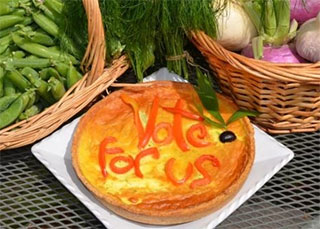
Irish health stores shortlisted for prestigious awards
Irish health stores made a strong showing in the 2014 Irish Times Best Shops in Ireland awards, nominated and voted for by customers.
Shortlisted stores in the Best Artisan/Greengrocer category included Select Stores, Dalkey; Evergreen Fruit & Veg, 34 Wexford Street, Dublin 2 and The Happy Pear in Greystones. Category winner was Ardkeen Quality Food Store, Dunmore Road, Waterford.
The awards were judged by Simon Pratt, MD of Avoca; independent retail consultant Eddie Shanahan; Robert Doherty of AIB Merchant Services; fashion columnists Sonya Lennon and Brendan Courtney, and journalist Alanna Gallagher.
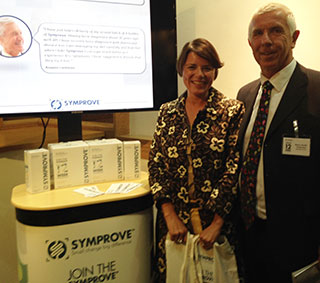
The probiotic that arrives, survives and thrives
Two separate scientific trials on probiotics have given a boost to Symprove in results released this week.
UCL School of Pharmacy's Dr Simon Gainsford conducted a test to find out three things: did the probiotics tested arrive in the gut in the numbers promised on the label; did they survive in the stomach; and did they thrive in the gut. Symprove passed all three tests with flying colours.
In a separate study, Dr Guy Sissons at King's College carried out a double-blind, placebo-controlled clinical trial featuring 186 IBS sufferers. Once again, Symprove was shown to give proven effects on pain, bloating and general IBS symptoms.
Symprove has been rebranded, with new packaging and a loyalty scheme offering free four packs when customers purchase eight packs, making the 12-week course more affordable and encouraging customers to complete the course.
For more information, visit www.symprove.com
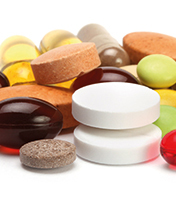
Fight threat to tax supplements
Did you know that Irish Revenue is threatening to apply VAT at 23% to many food supplements?
The Irish Association of Health Stores has initiated a campaign to have this policy overturned and is asking all health-conscious people to make their objections heard by immediately writing to or emailing their local Fine Gael TD or Minister Michael Noonan.
This issue has grabbed the imagination of IAHS customers nationwide, with many having approached TDs personally and reporting back some really positive responses. The word is spreading, so keep the pressure on!
Independent health stores in Ireland play a key part in frontline and primary healthcare by:
- providing free advice and guidance to the public in relation to making dietary and lifestyle changes for promoting sustainable health
- helping thousands of people annually deal with minor self-limiting ailments
- reducing the pressure on our public healthcare system, by relieving demand on already hard-pressed GP services and A&E departments
- Read more on this campaign at irishhealthstores.com/news-events/iahs-campaign-keep-health-tax-free/
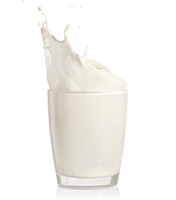
UK to get wider access to raw milk
Following a review of the current raw milk regulations, the UK Food Safety Authority has proposed exploring the scope for wider access to raw milk, including limited sales from vending machines in shops.
At the moment UK residents are only permitted to buy raw milk directly from farmers, but an FSA public consultation revealed a real enthusiasm for better access to raw milk.
A decision on the matter is expected in December this year.

Irish office workers find it hard to fit in exercise
A recent survey of 500 office workers by Viking has found that almost one-third do not exercise on a regular basis, with most claiming that they are too busy or do not have time to stretch their legs during a normal working day.
The survey also found that just 36% of people make an effort to eat healthy food at work, with the vast majority settling for a sandwich at their desk or a canteen lunch. Men are most likely to buy lunch at work, while over half of women bring their own lunch to work. When it comes to snacking, over 60% choose biscuits, chocolates, sweets or crisps over nuts or fruit.
Of those surveyed, 73% of males claim to exercise regularly with over half exercising more than 2-3 times per week, while 70% of females claim to get regular exercise, just 45% are exercising more than 2-3 times per week.
While many office workers do make an effort to be healthy, the survey shows that a lot of people are simply not getting the exercise they need. Keeping active boosts your physical and mental health – as well as your productivity at work.
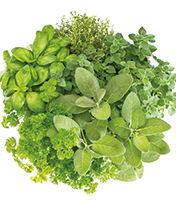
Herb power
New research published in the Journal of Agricultural and Food Chemistry (JAFC) by scientists from the University of Illinois at Urbana-Champaign (UIC) and the US Department of Agriculture (USDA) has revealed that both greenhouse grown and commercial dried versions of the herbs rosemary, oregano and marjoram can have an effect on helping the body to control insulin levels, a common problem for people who suffer from diabetes.
The scientists stressed that more research needs to be undertaken, but there is no harm in adding these herbs to your cooking.
Probiotics bring down blood pressure in new study
Scientists from the Griffith University School of Medicine and Griffith Heart Institute in Queensland, Australia led by Jing Sun have published the results of a study into the role of probiotics on blood pressure levels in the journal Hypertension.
The study involved over 550 people taking a probiotic or eating a probiotic-rich food for over two months – average systolic blood pressure levels dropped by 3.56 millimeters of mercury (mm Hg), while diastolic levels dropped by 2.38 mm Hg.
The researchers recommend consuming more than 100 billion colony-forming units of probiotics every day in the form of yogurt or kefir.
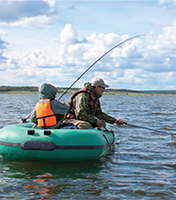
Water safety first
Sadly, every year in Ireland, adults and children have accidents in water whether it’s swimming pools, paddling pools, lakes, rivers or the sea. Water Babies and Irish Water Safety, the statutory body established to promote water safety in Ireland have this advice:
- Parents must keep an eye on their children at all times – they can be easily distracted chatting to other parents, reading a newspaper or talking on the phone.
- Supervising adults should be in arm's reach of children under five so that if a child slips underwater, they can be pulled to safety immediately.
- The adult watching must be able to swim and not afraid to jump in the water.
- Make sure there is a qualified lifeguard in attendance before you or your children enter a public swimming pool.
- Save the local emergency numbers on your mobile phone.
- Do not swim at beaches with large waves, a powerful undercurrent or no lifeguards.
- Stay sober – Drinking can impair your supervision and swimming skills, especially when combined with the heat.
- When boating or fishing make sure everybody wears a lifejacket that is age- and size-specific and has a correctly fitting crotch strap.
Water Babies operate classes in Dublin, Meath, Kildare, Louth, Galway, Sligo, Waterford, Wexford, Tipperary, Kilkenny and Wexford.
www.waterbabies.ie
www.iws.ie
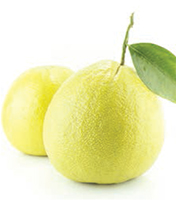
Bergamot oranges aid heart health
Research published online in the journal Advances in Biological Chemistry has shown that the juice of the bitter-tasting flesh of the Bergamot orange could be a powerful aid to heart health.
The study chose 107 patients enrolled at the San Raffaele IRCCS, Rome and University of Catanzaro, Italy who had either metabolic syndrome (several risk factors for Type 2 diabetes and heart disease) or Non-Alcoholic Fatty Liver Disease (NAFLD). Half the volunteers took a dummy tablet and the rest took 650mg of Bergamot juice extract twice a day for 120 days.
Volunteers who took the supplement saw levels of harmful LDL cholesterol fall significantly, while the amount of beneficial HDL cholesterol increased.
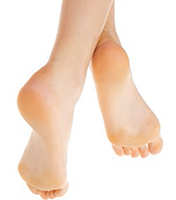
Survey on Irish foot hygiene results
Let’s Nail It, a survey of 1000 Irish people commissioned by Canespro™ spotlighting nail hygiene, has led to some alarming revelations about the nation’s toenail hygiene habits. The study discovered that 61% of both men and women share nail tools while over a quarter of adults (28%) had no idea that nail fungus infections are highly contagious. Podiatrist Michael Hannan said: “it is worrying that so many Irish men and women don’t see any problem with sharing nail tools. The good news is that fungal infections are preventable.”
Just follow these simple steps for fungus-free feet:
- Watch out for a discolouration in the toenail, or a thickening, crumbling appearance with white and brown discolouration. If you see a change in texture or colour, get it checked out by a qualified chiropodist/podiatrist.
- Wash and dry between your toes right after you shower or bath. Keep toenails short and make sure to thoroughly clean and disinfect nail clippers after use.
- Tights, runners, synthetic shoes are optimal environments for fungus to develop, so be sure to alternate days wearing tights or shoes and let them air out overnight.
- Sprinkle anti-fungal foot powder on your feet and in your shoes, and change your socks right after you exercise to ensure your feet are as clean and dry as possible.
New Vitamin D research
The study of more than 17,000 patients by Chinese scientists has found strong vitamin D levels improved recovery rates for some cancer sufferers. Published in the Endocrine Society’s Journal of Clinical Endocrinology & Metabolism, the research looked at 25 separate studies that measured vitamin D levels in cancer patients at the time of diagnosis. Anyone interested in getting their vitamin D levels tested can buy a Vitamin D Home Test Kit from www.betteryou.uk.com.
The tests which cost £25 are sent from Ireland in a special envelope to Sandwell and West Birmingham NHS Trust who test for vitamin D in the blood using liquid chromatography mass spectrometry.
Keep up to date with all the latest news from Rude Health Magazine – join us on Facebook and Twitter